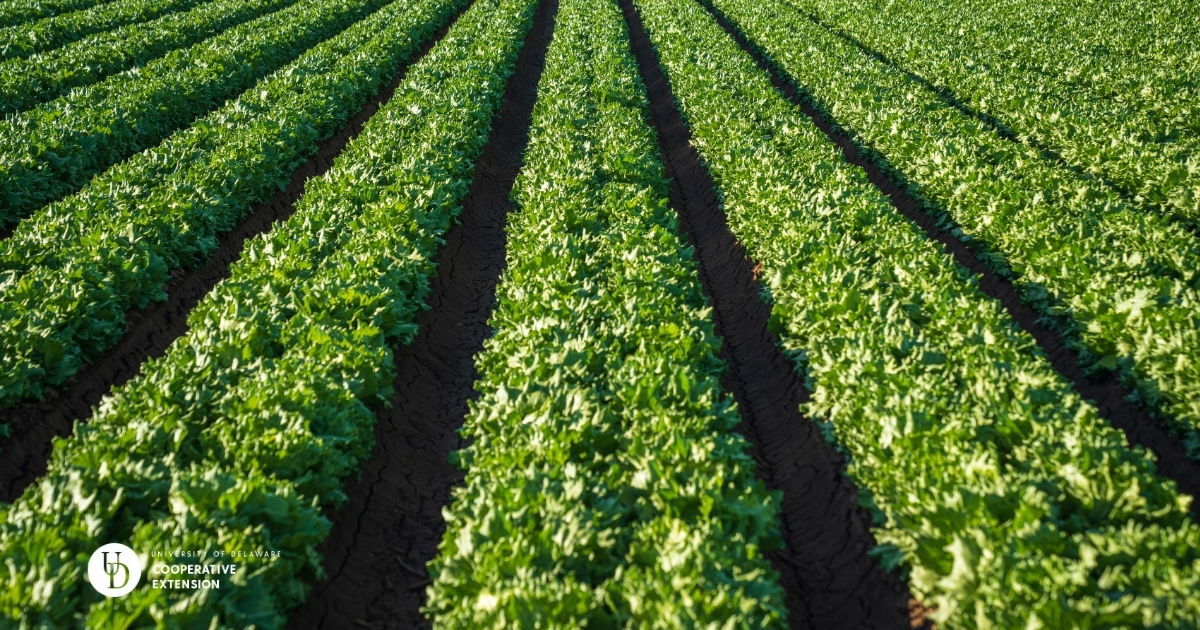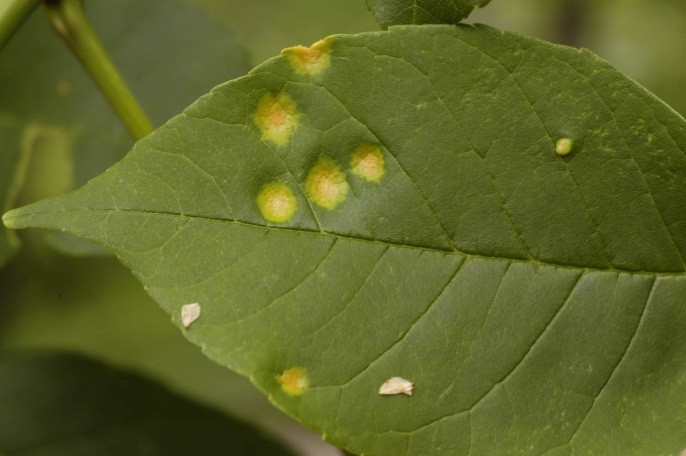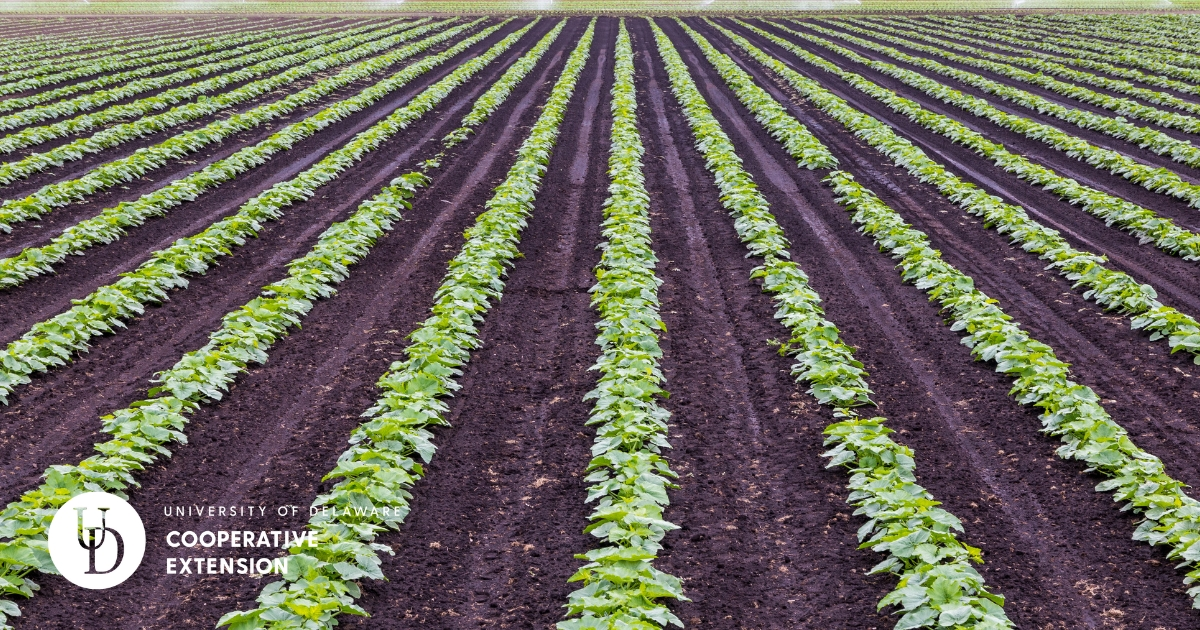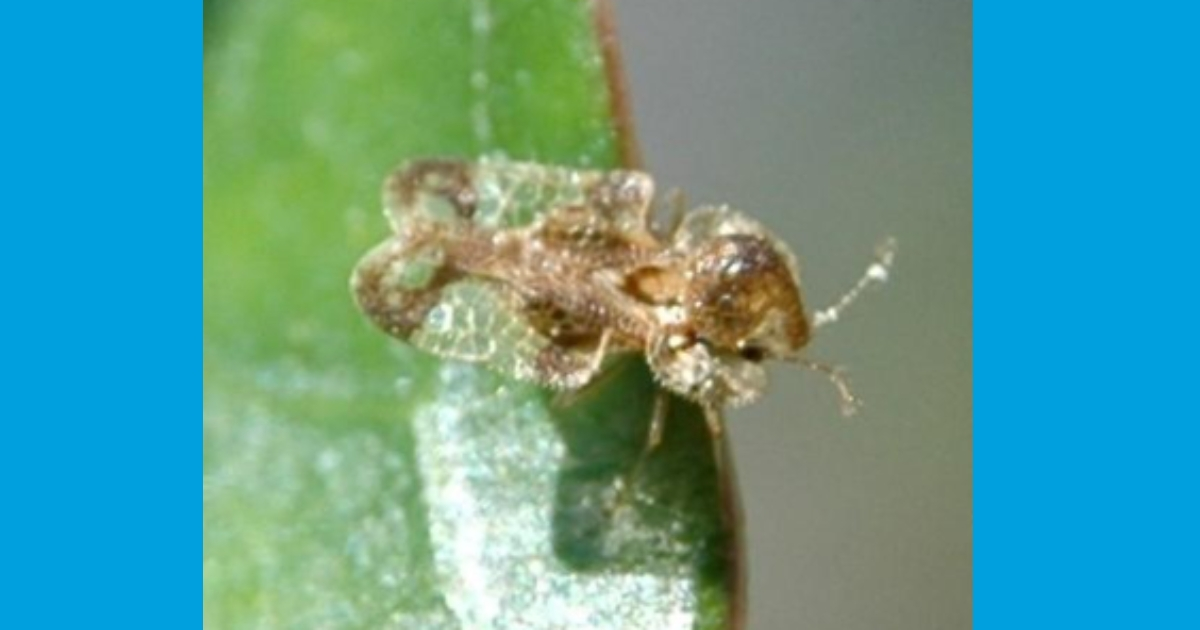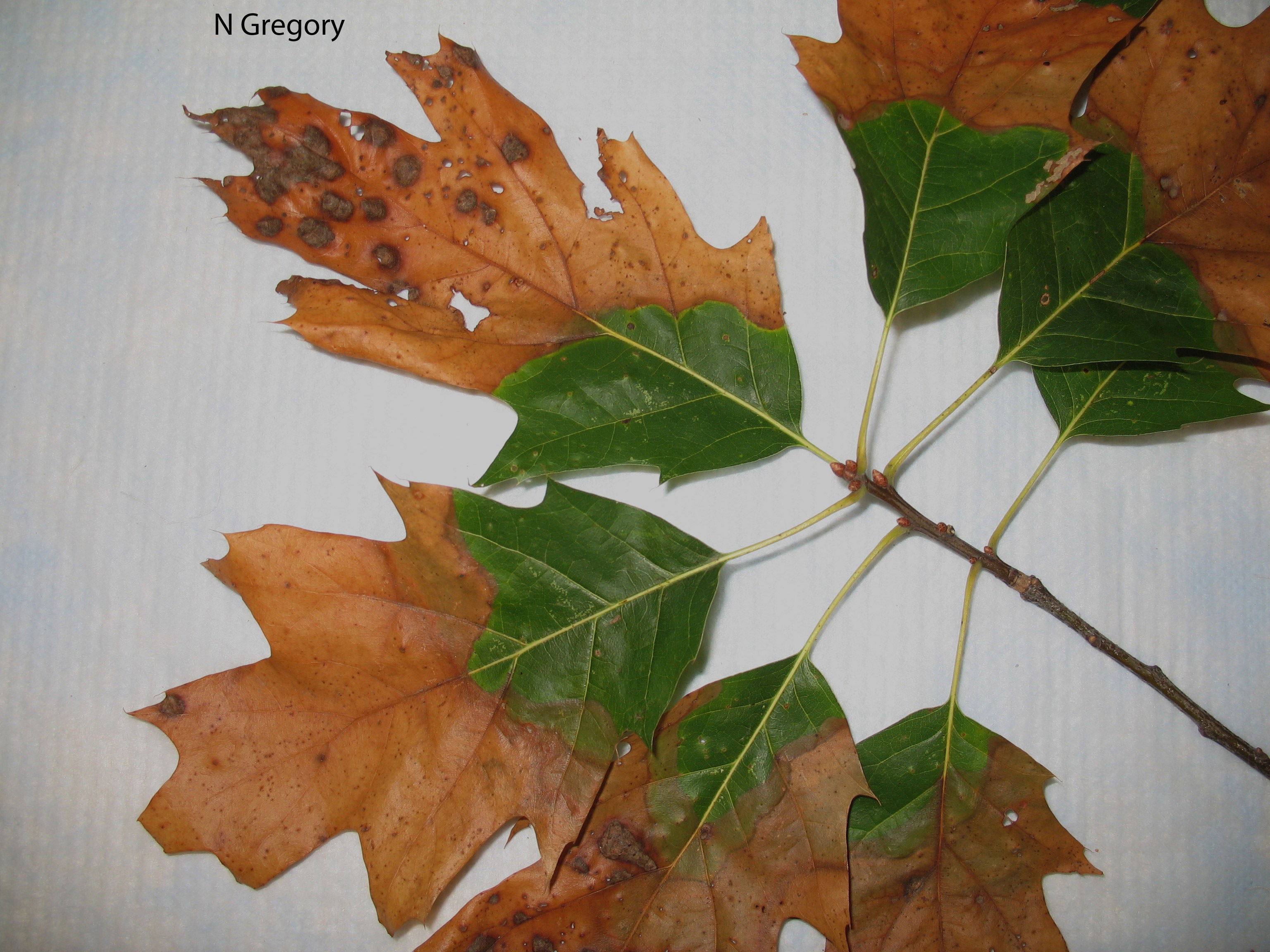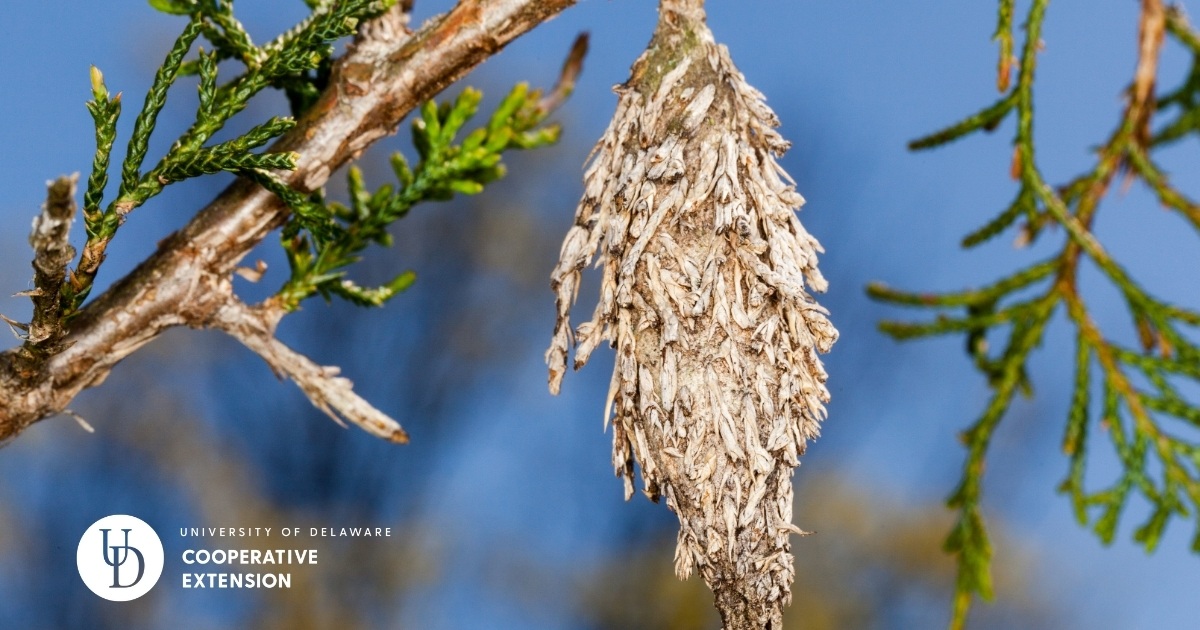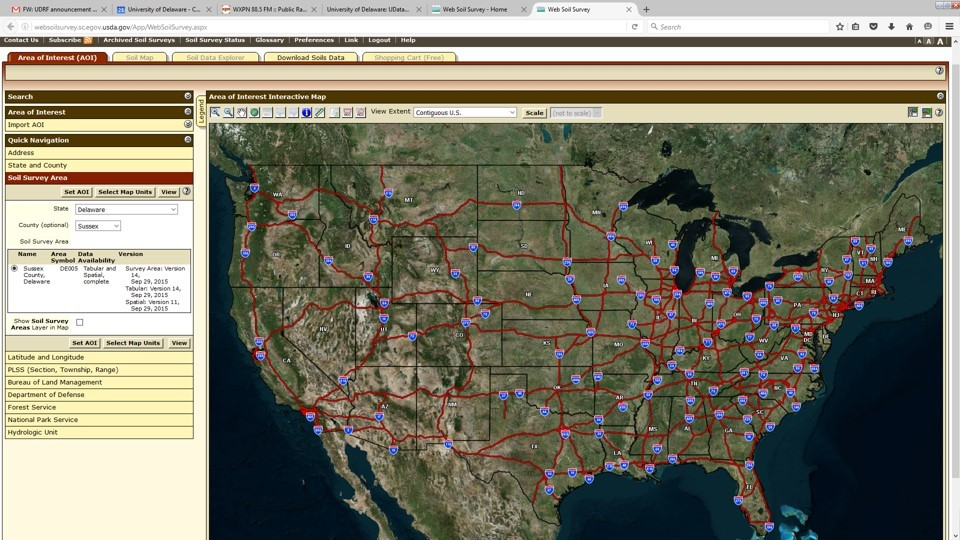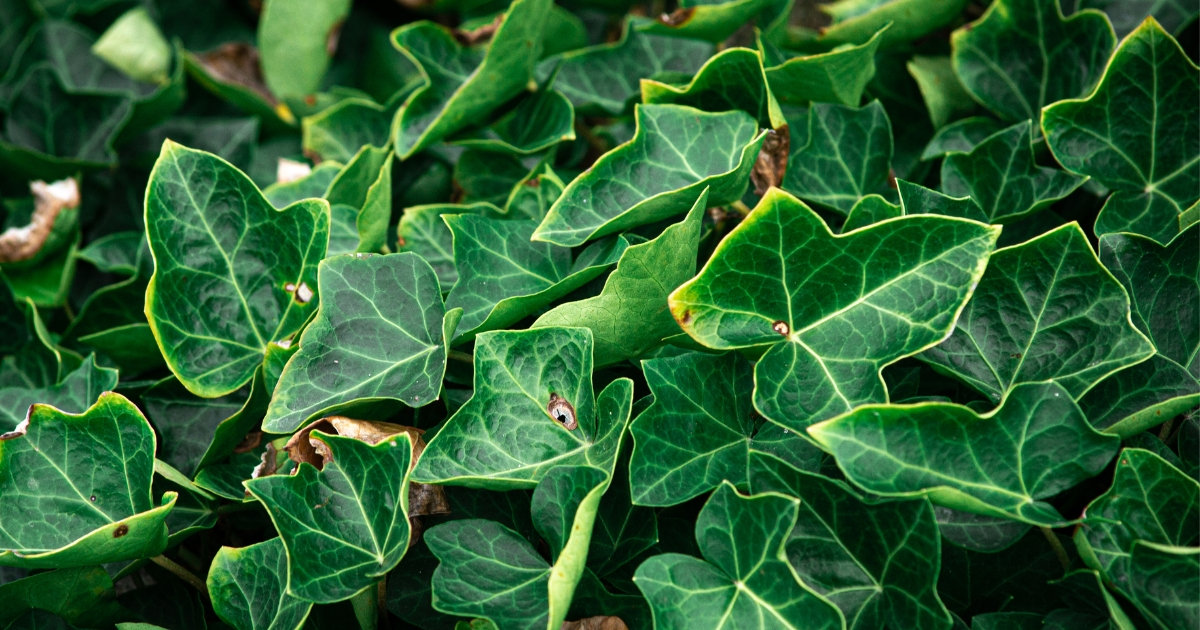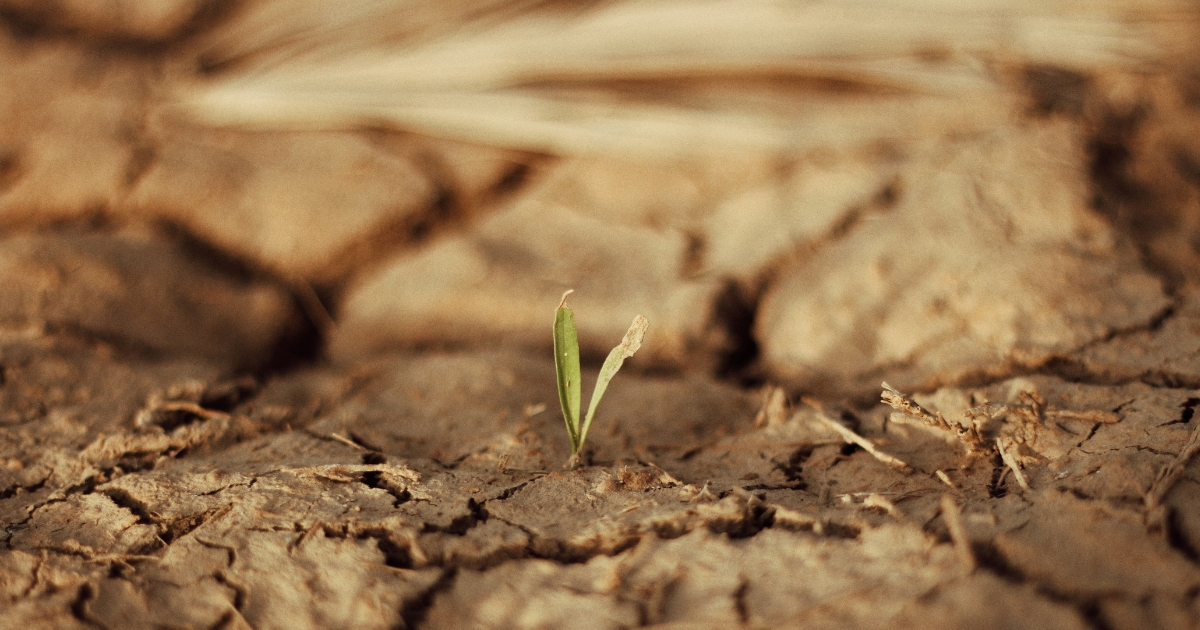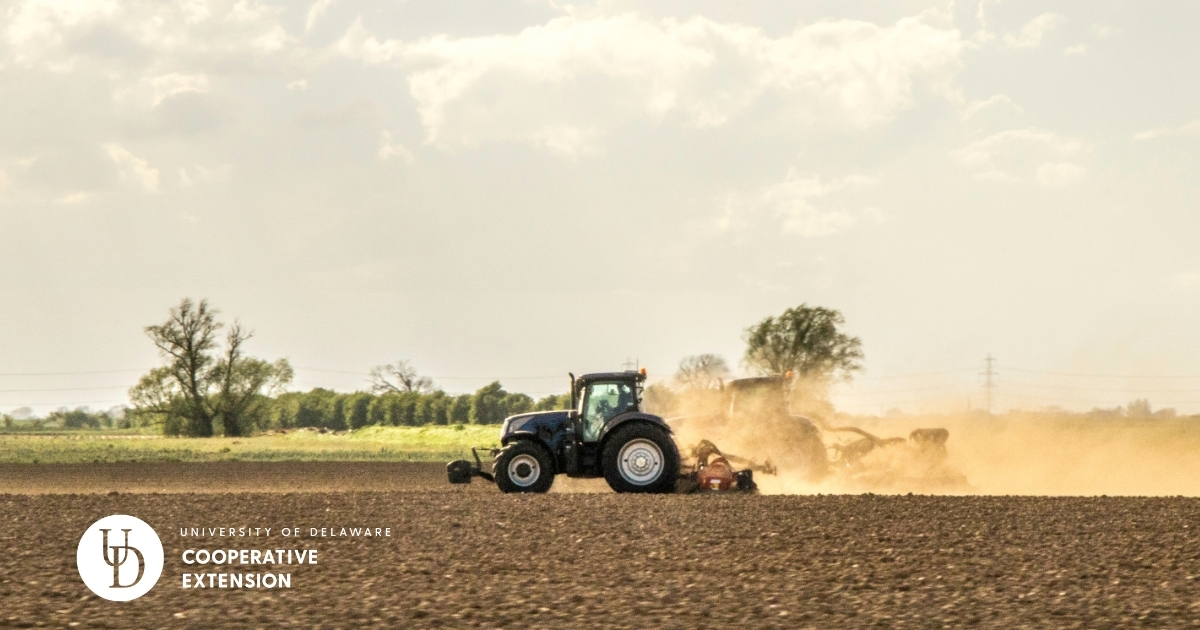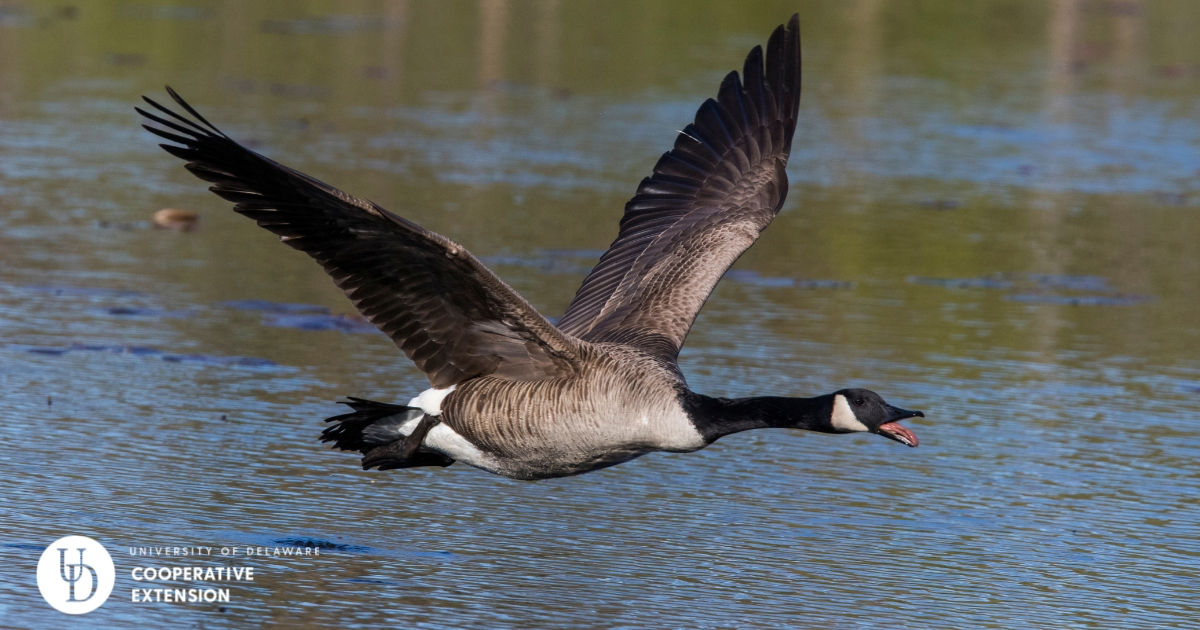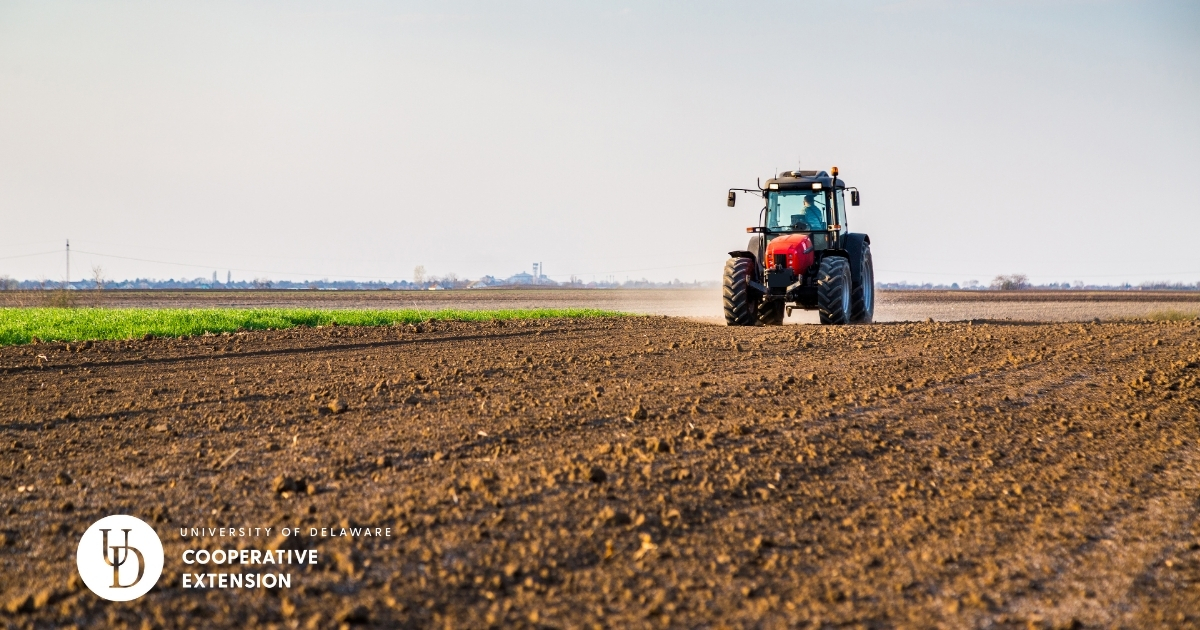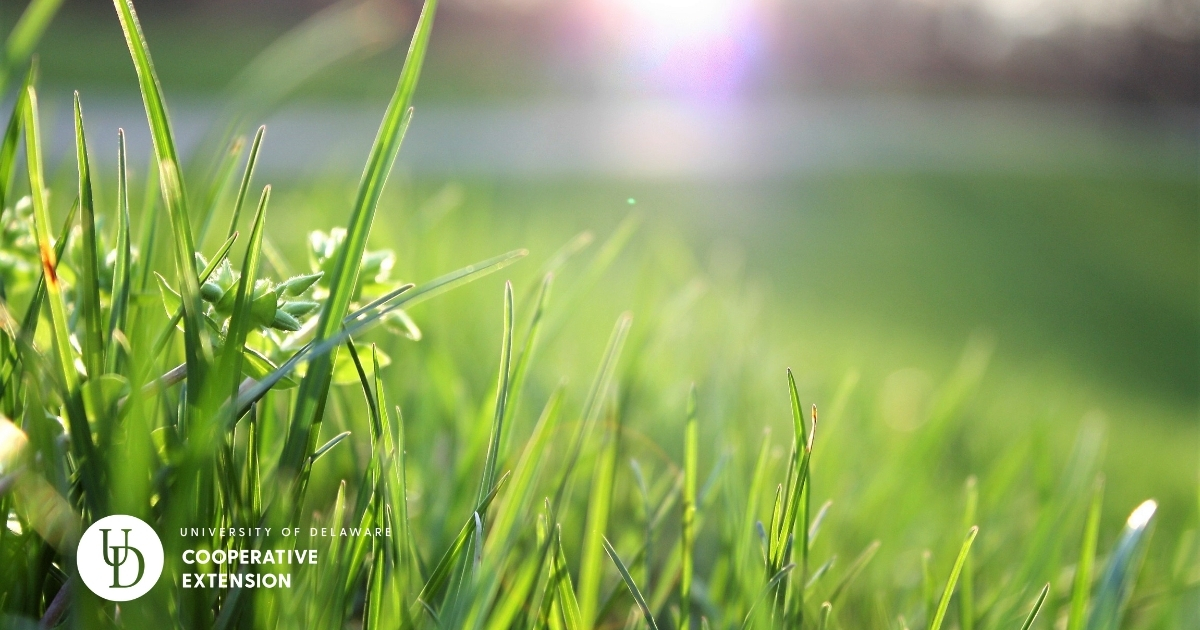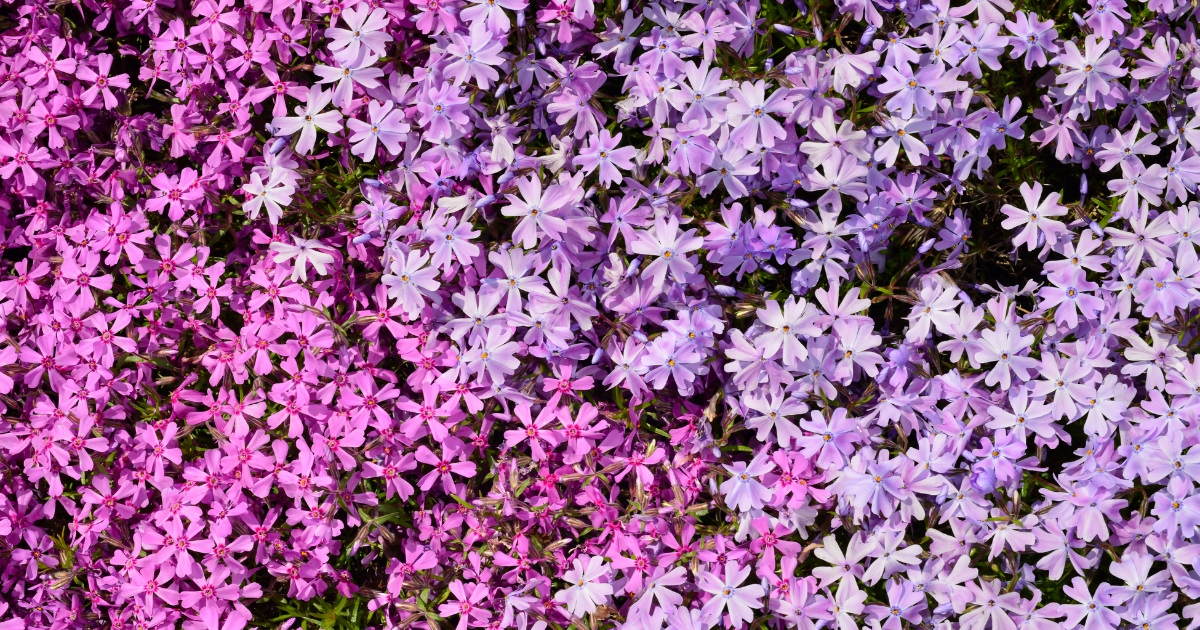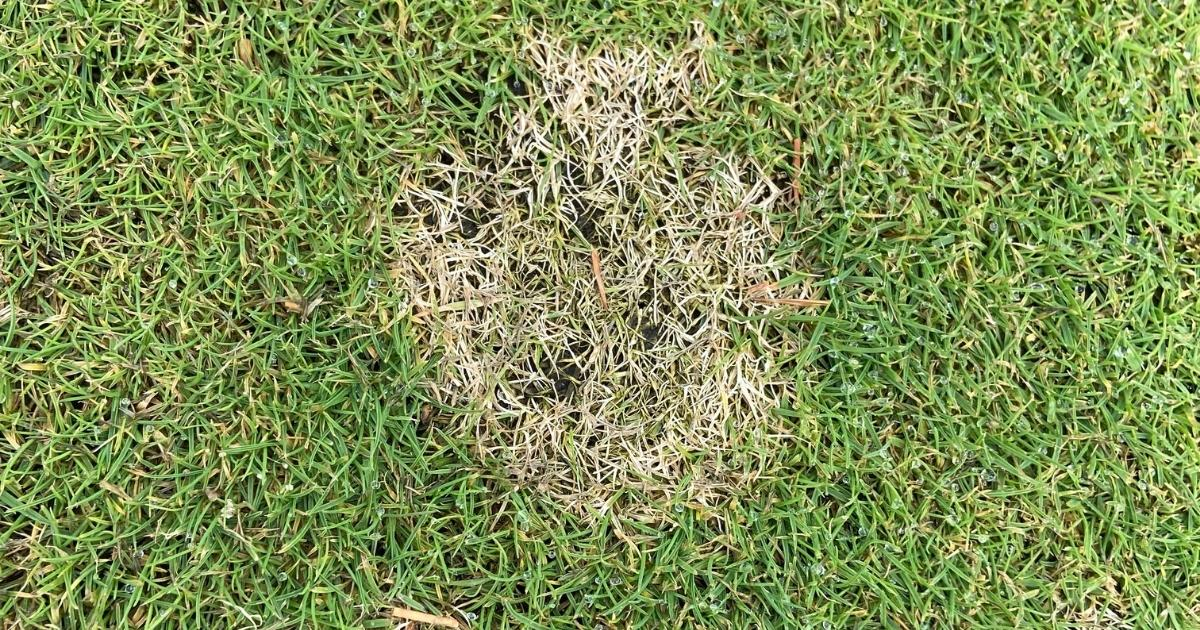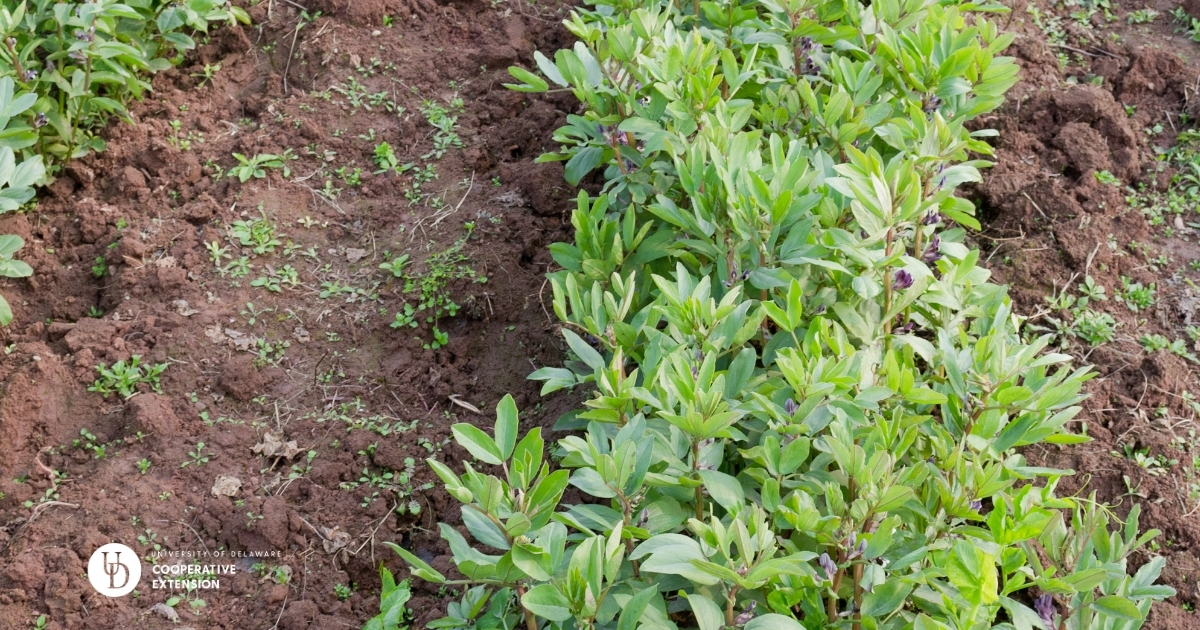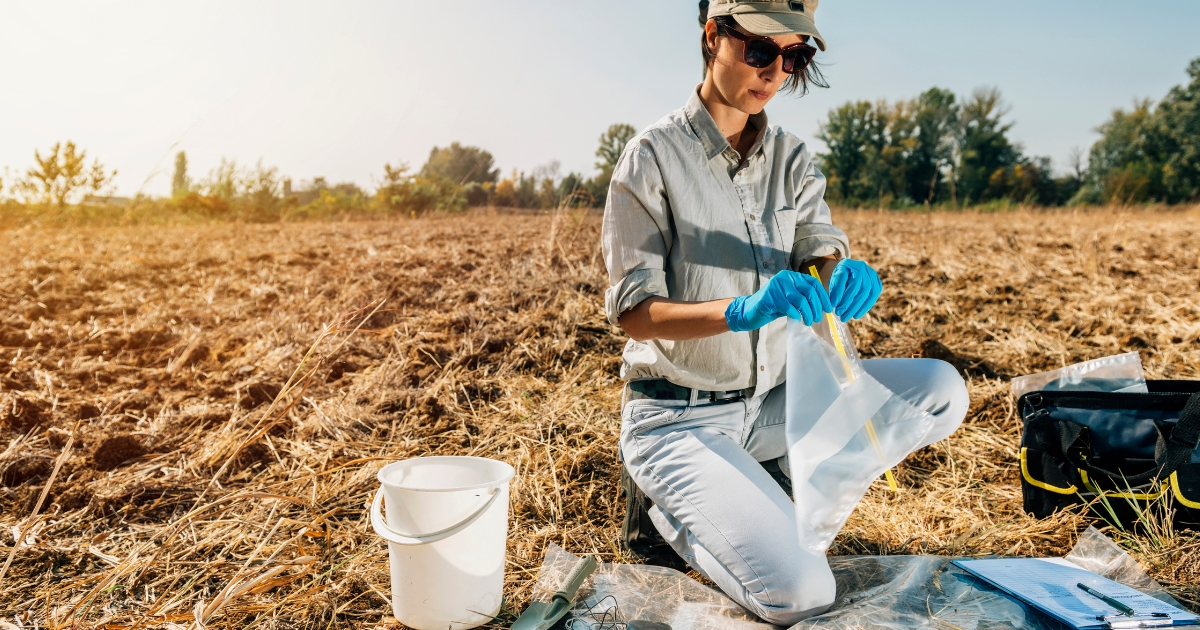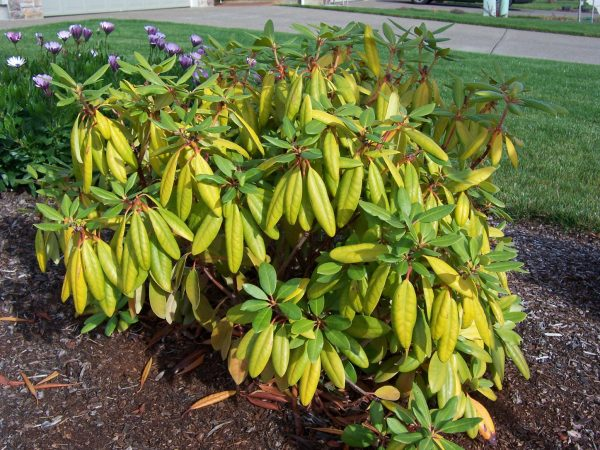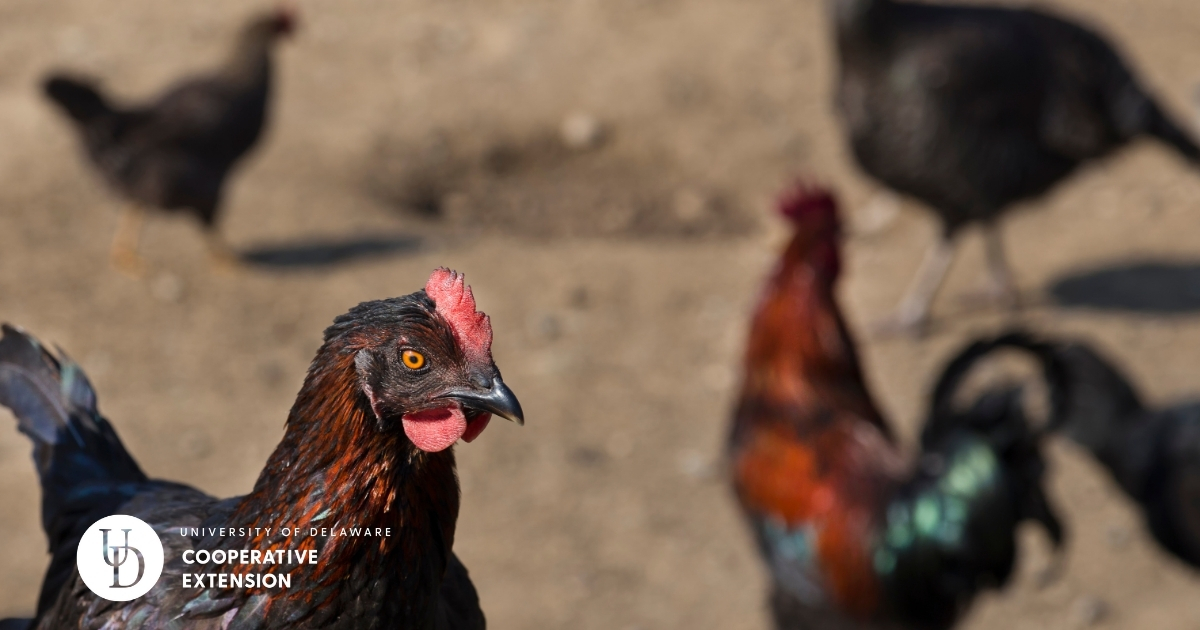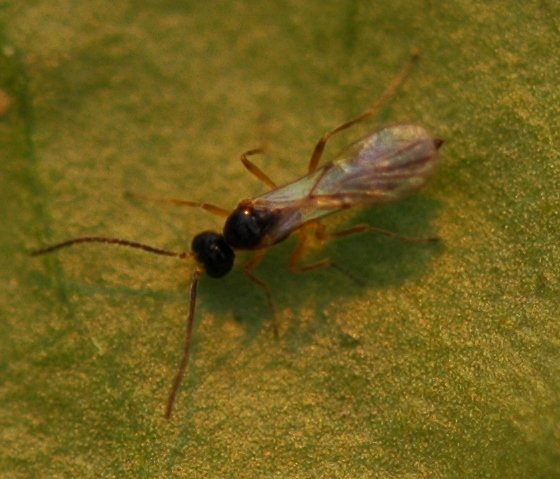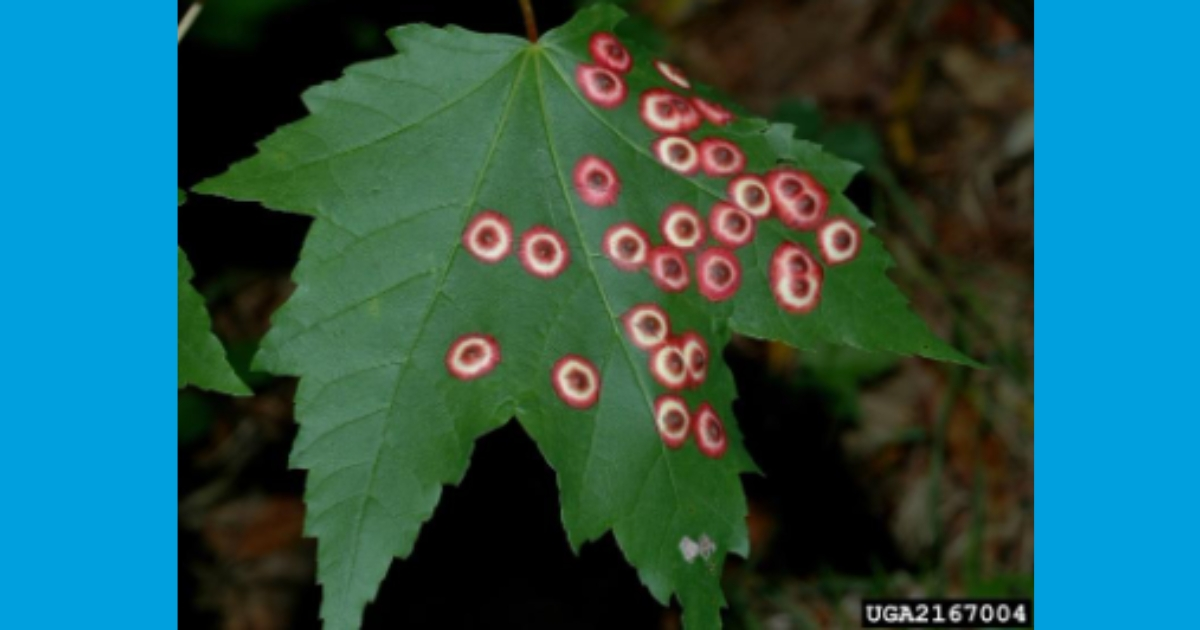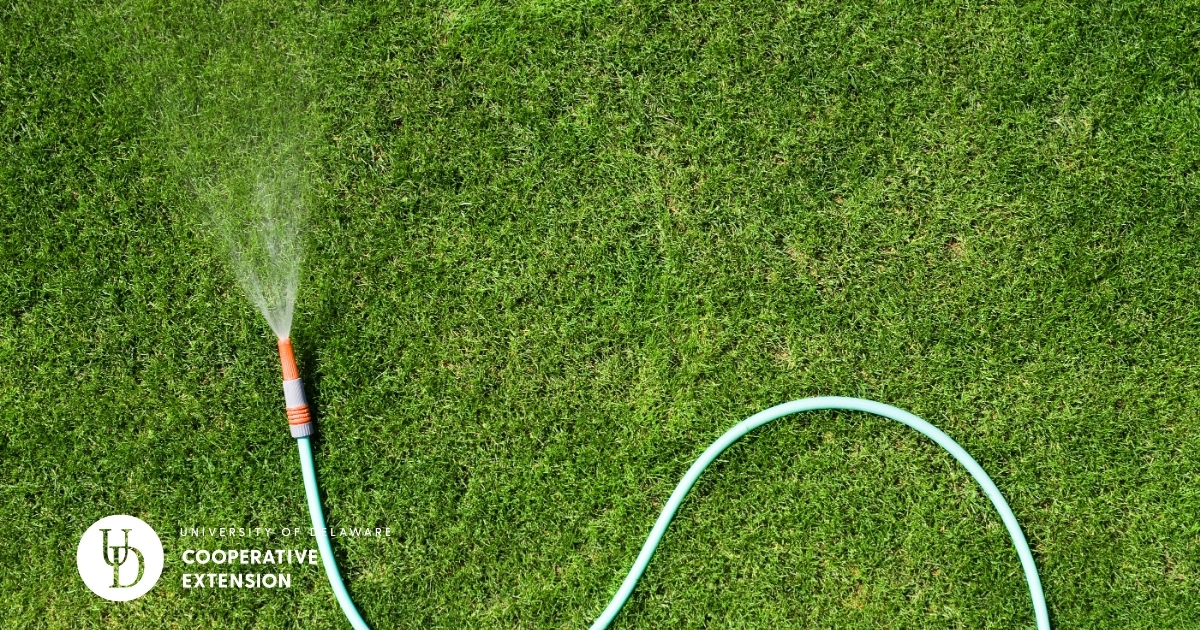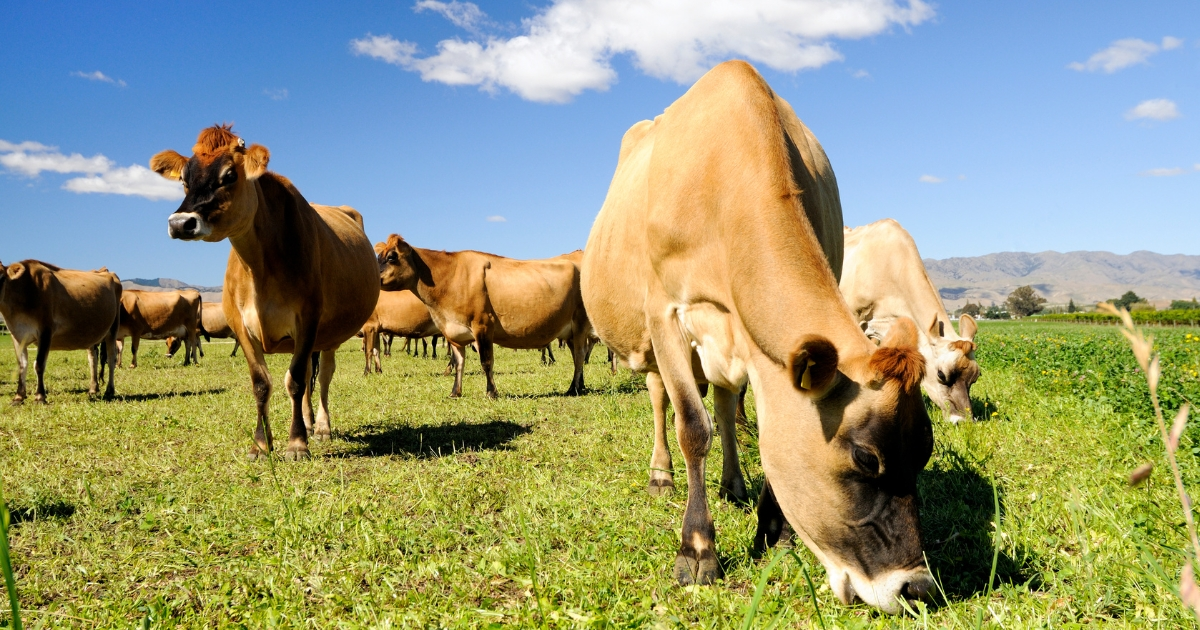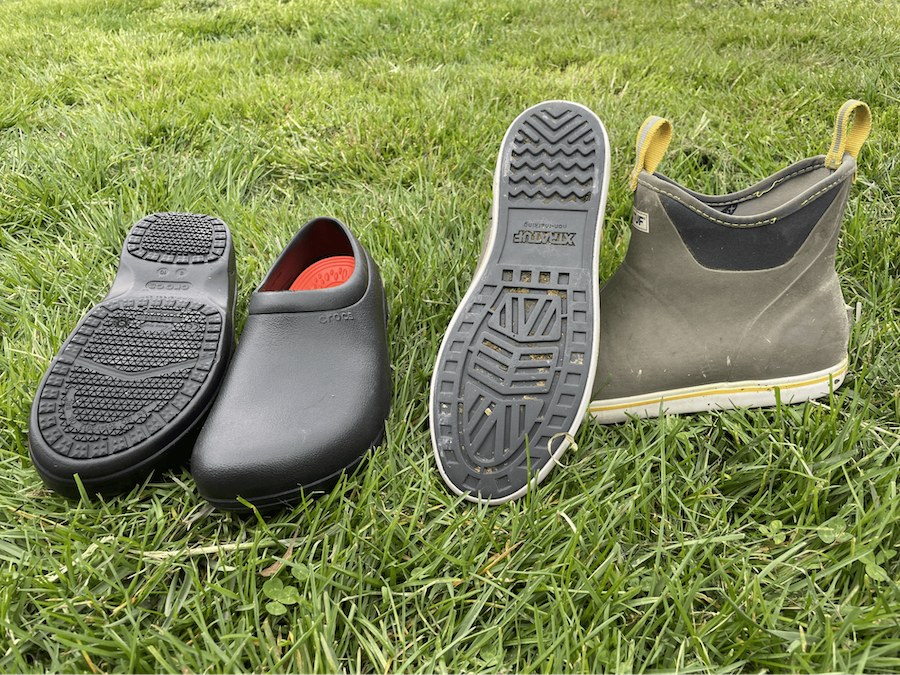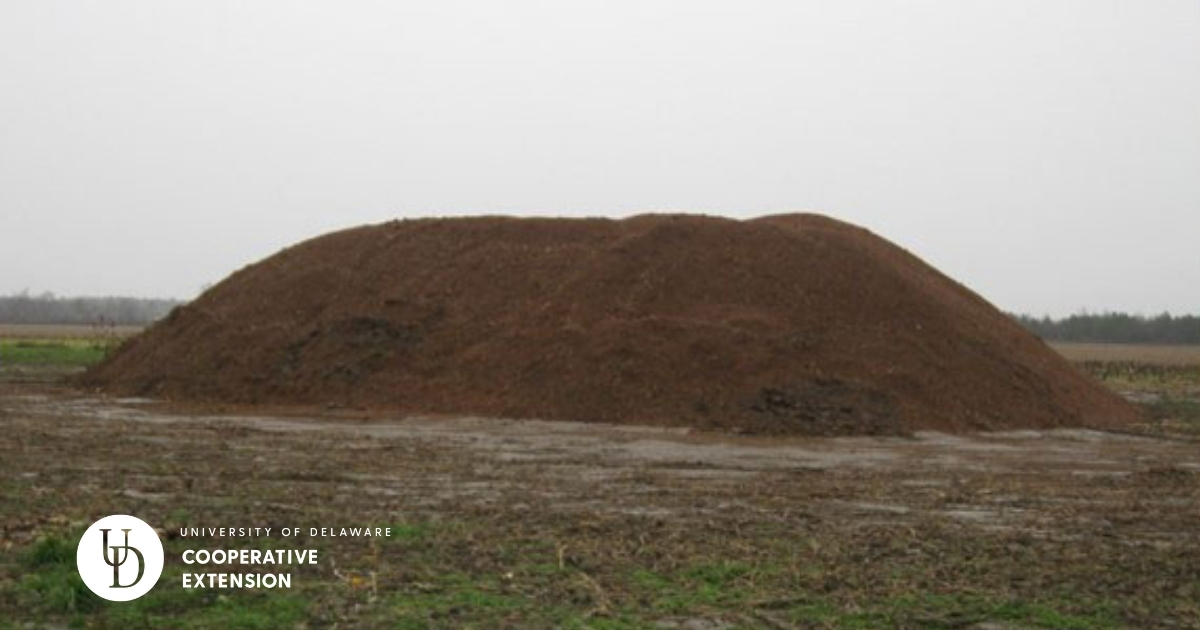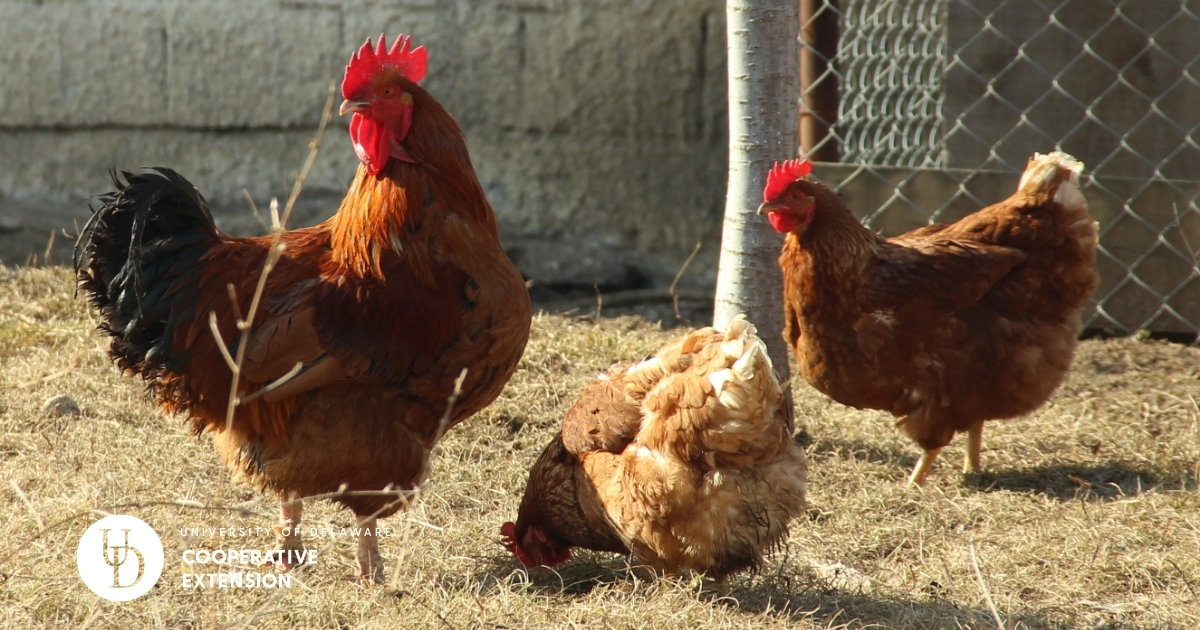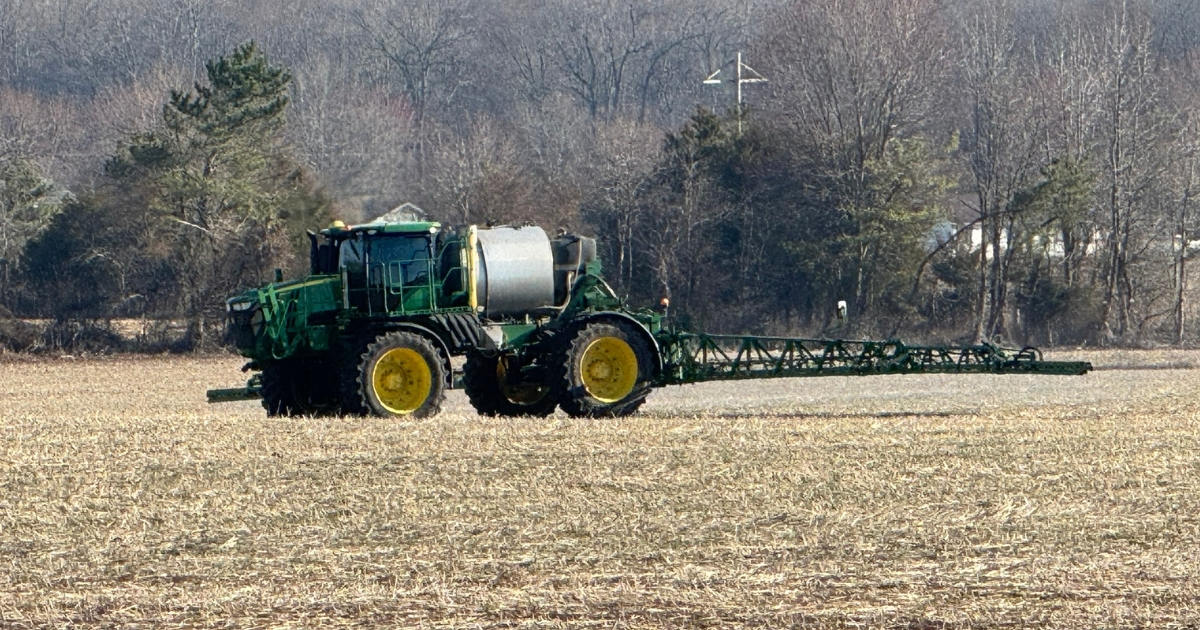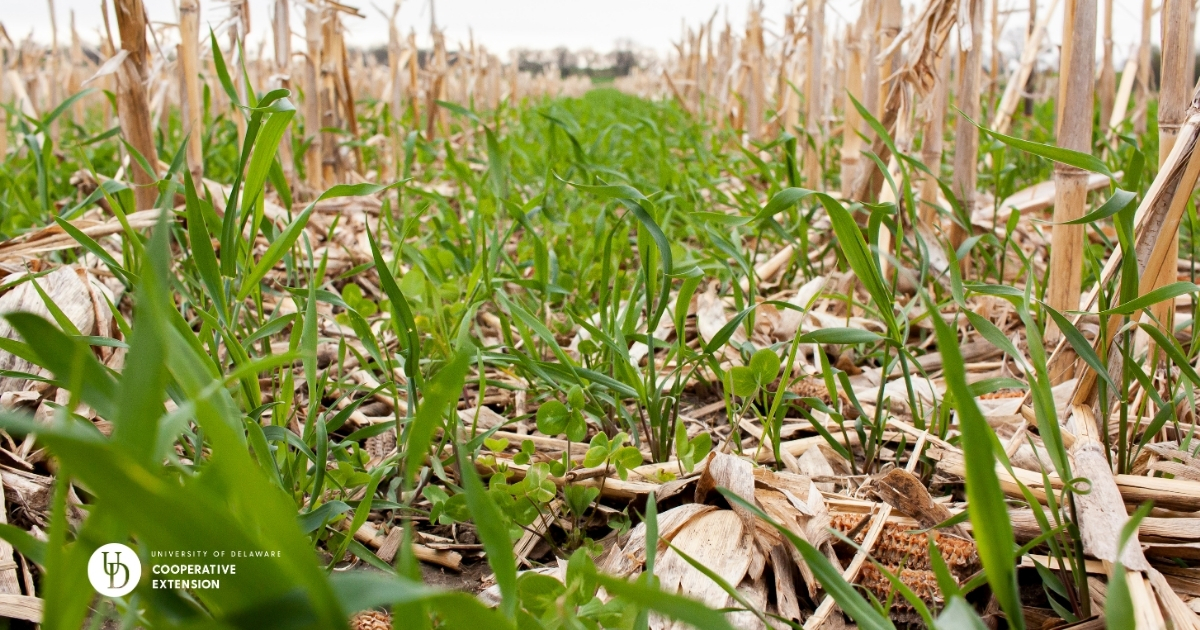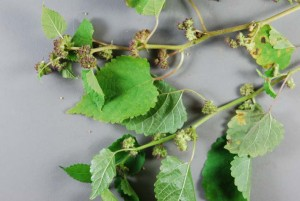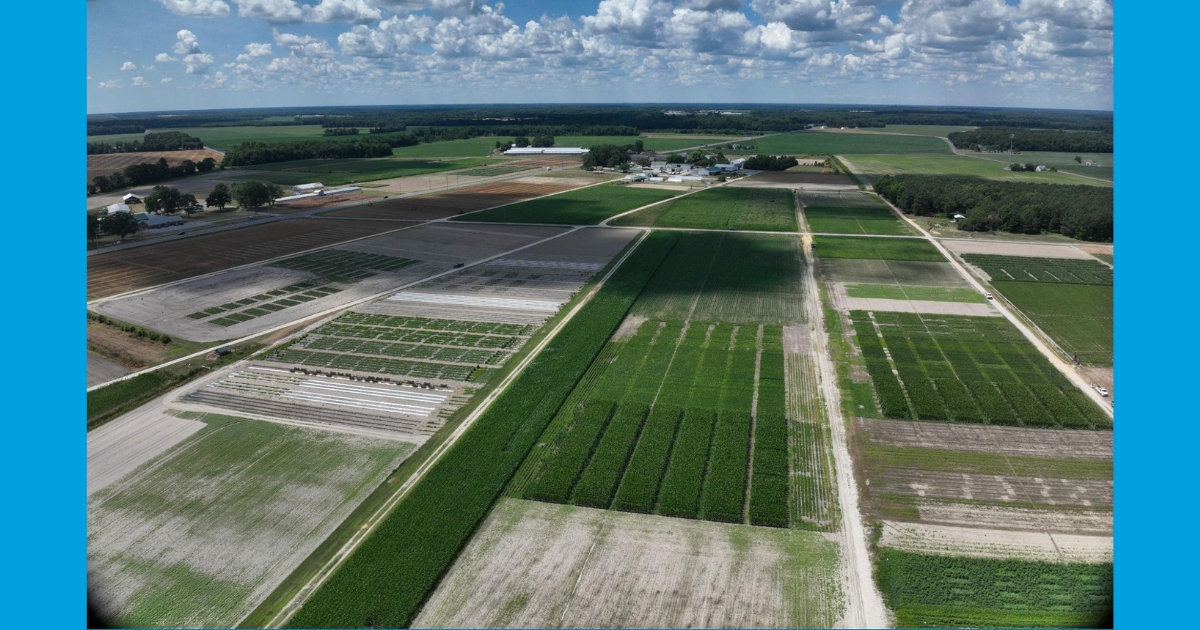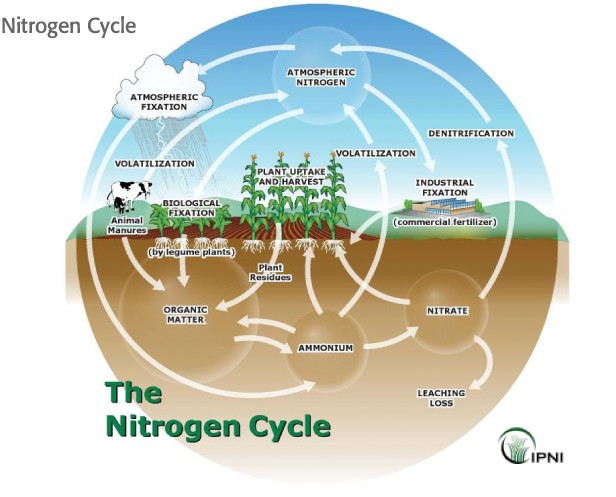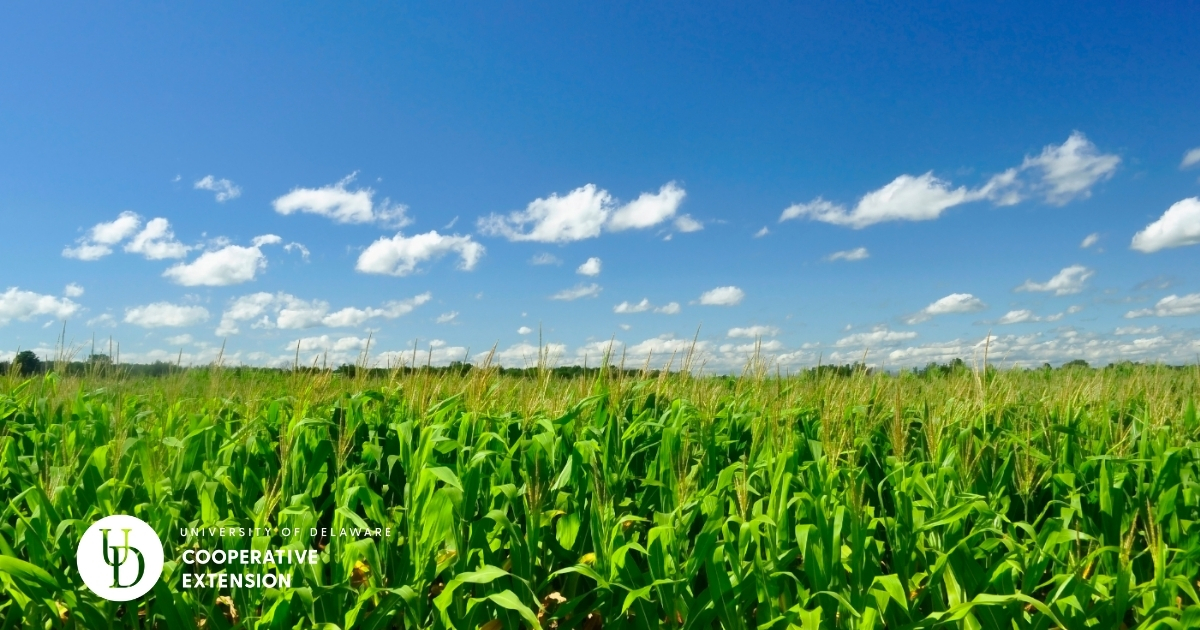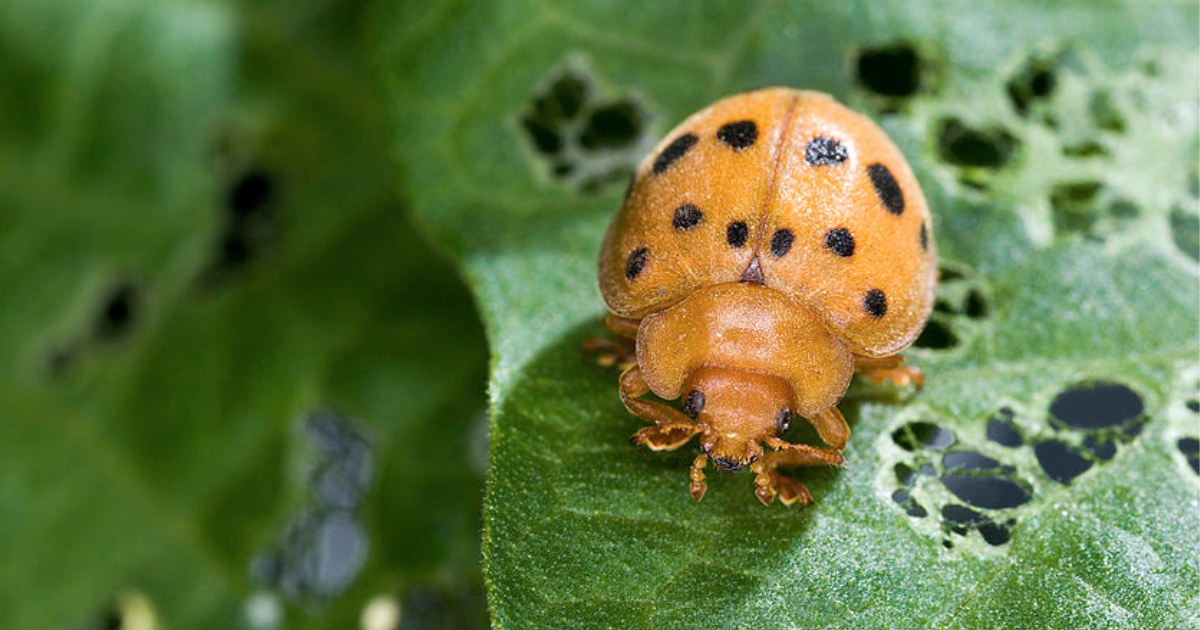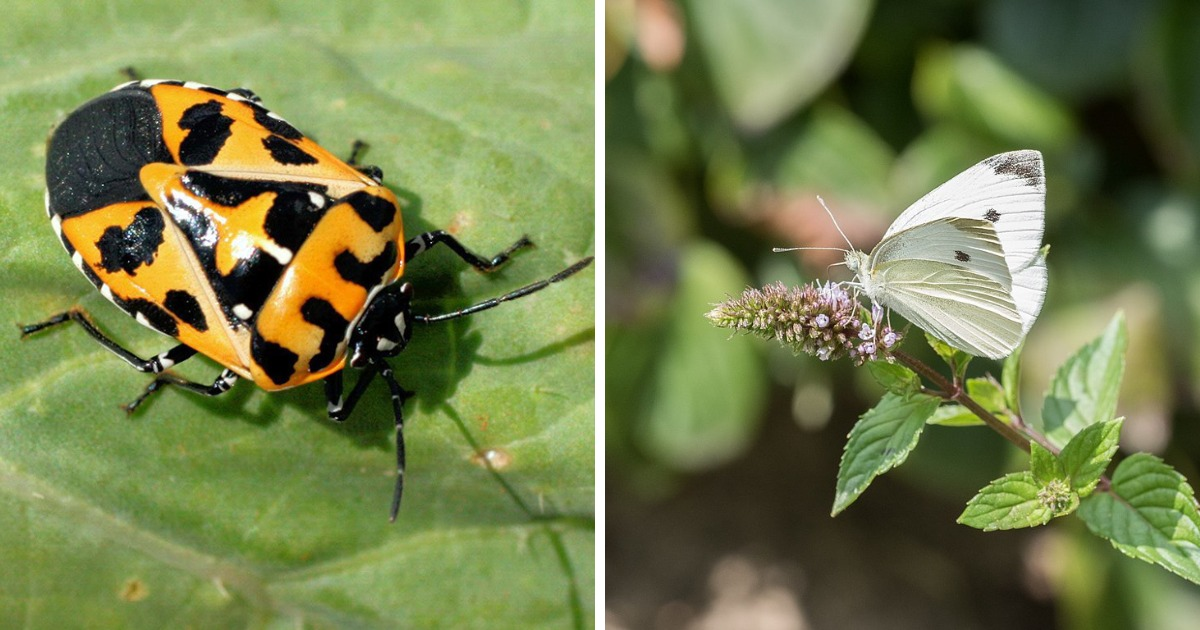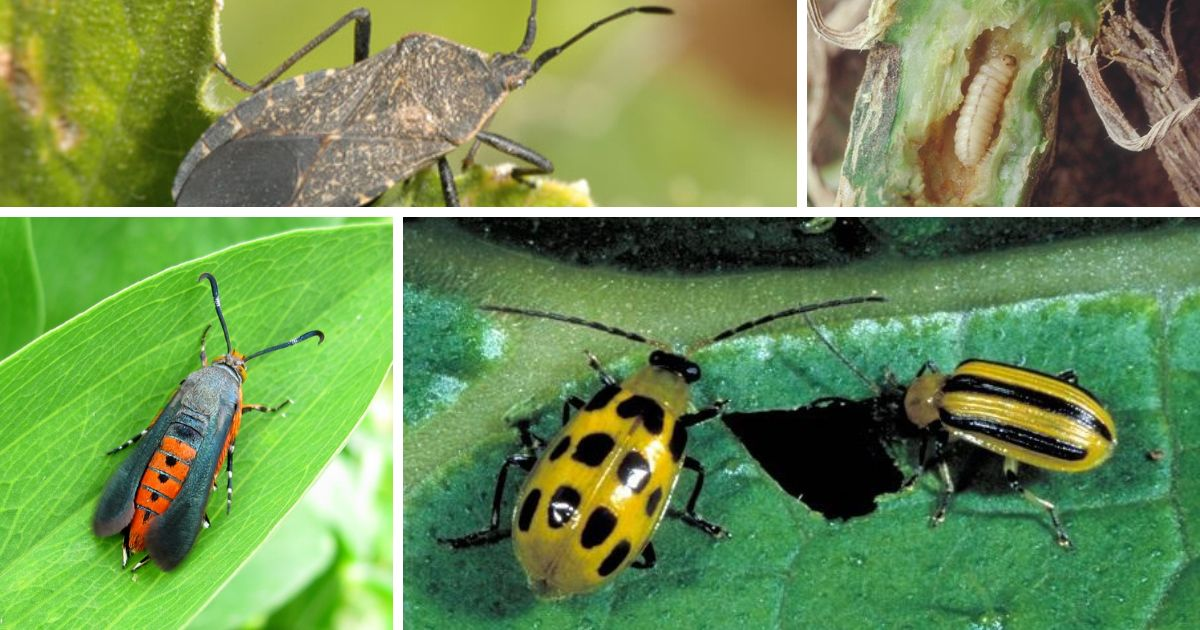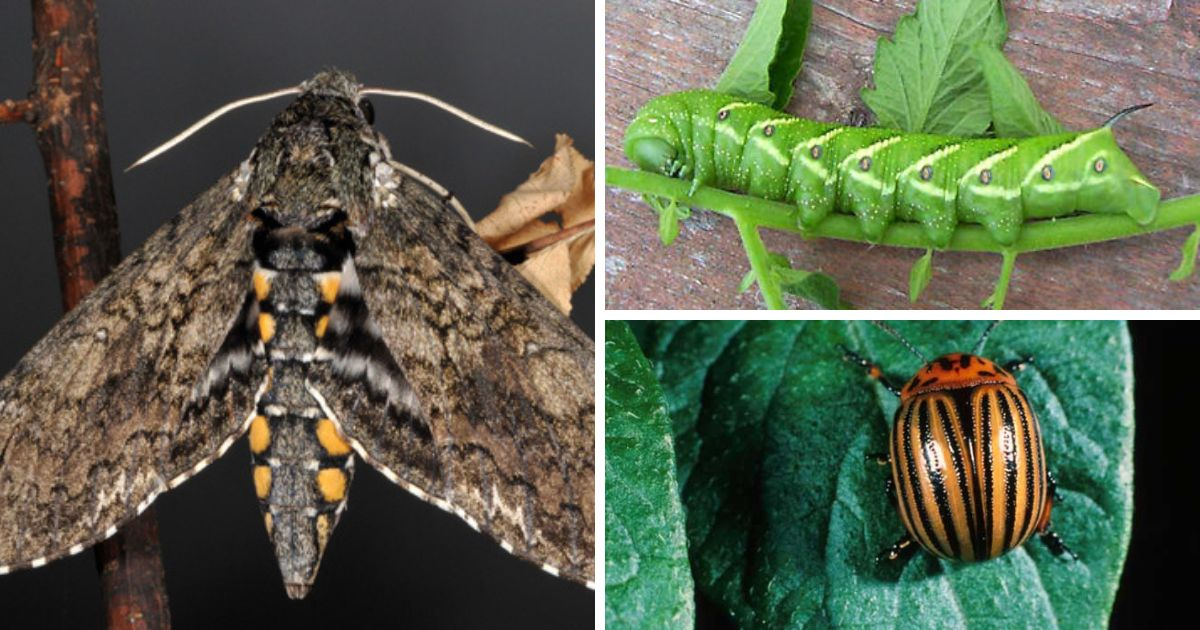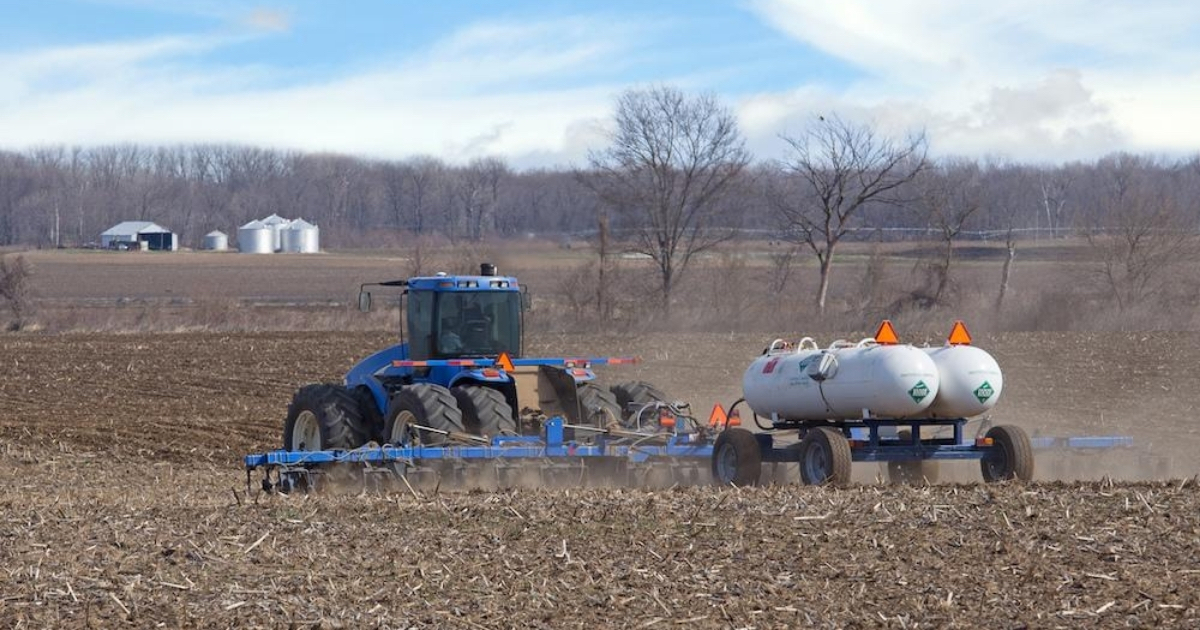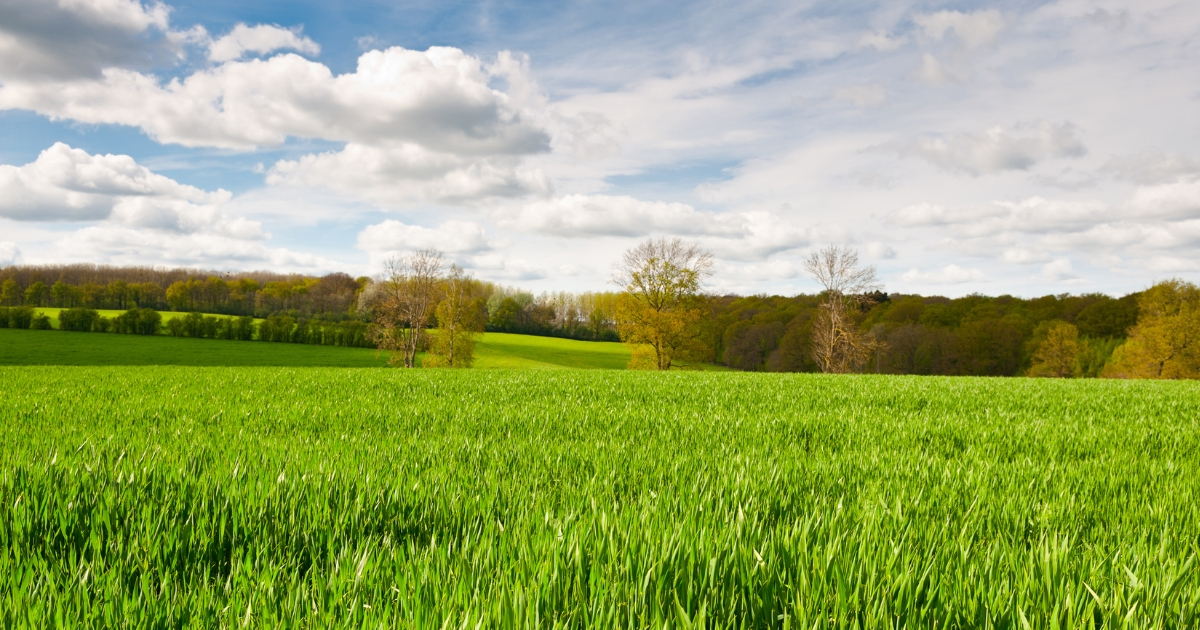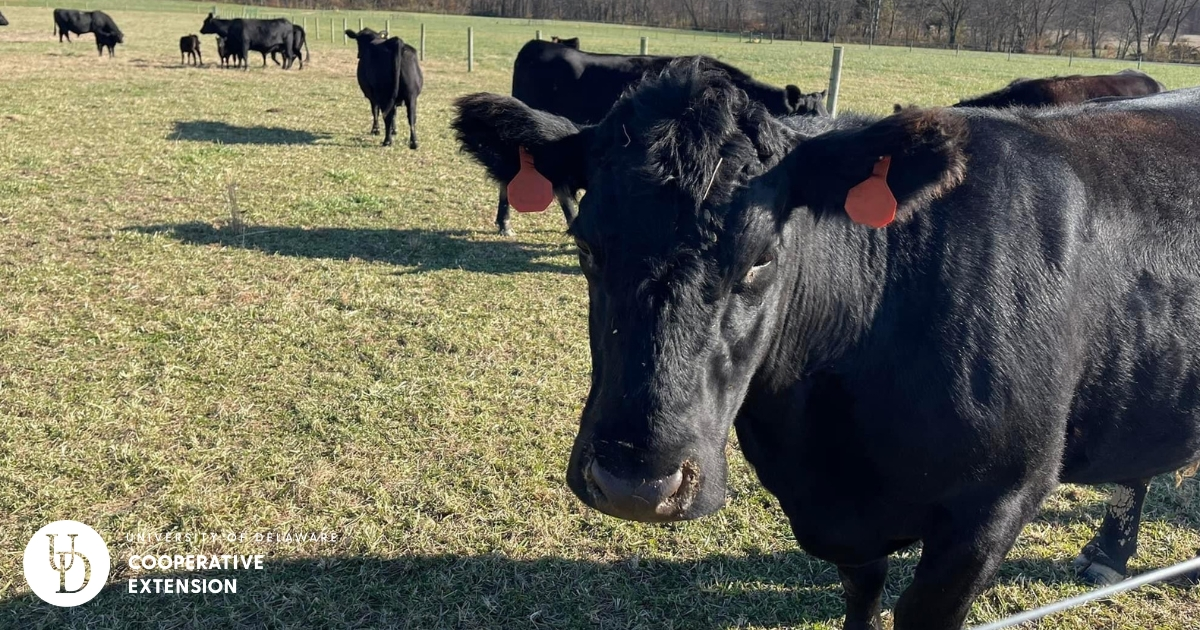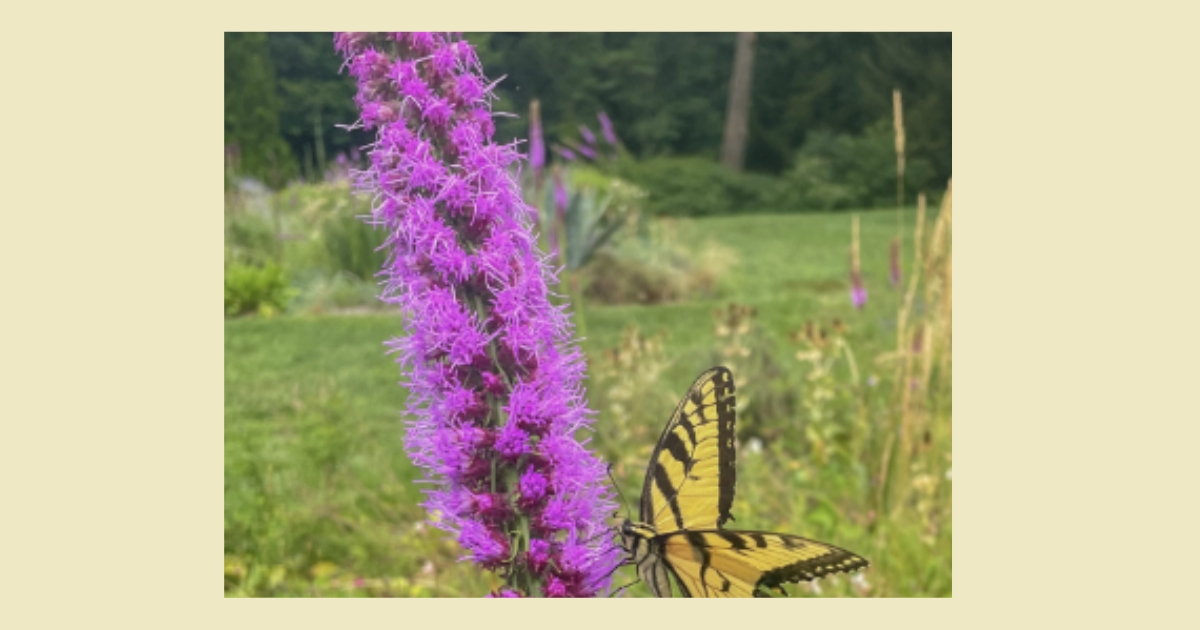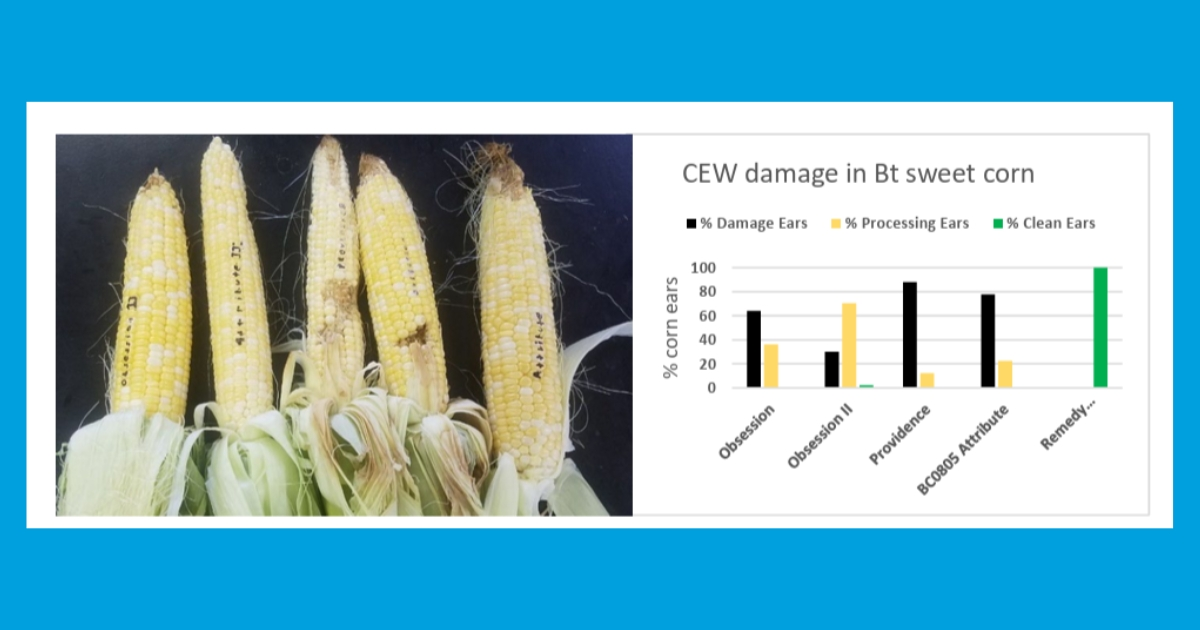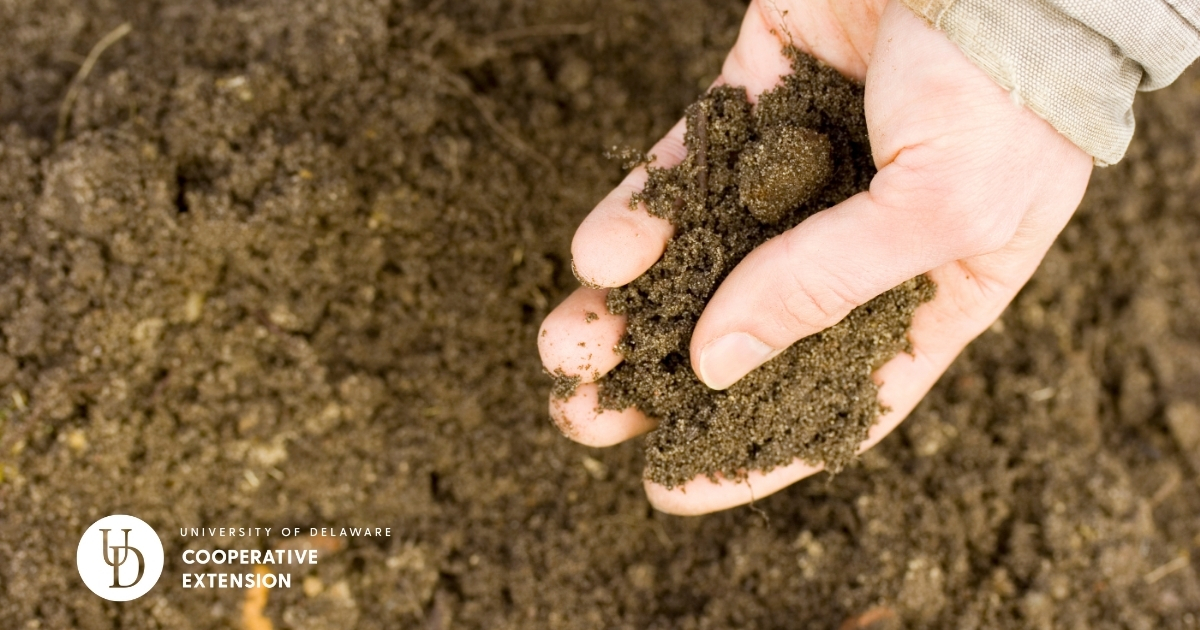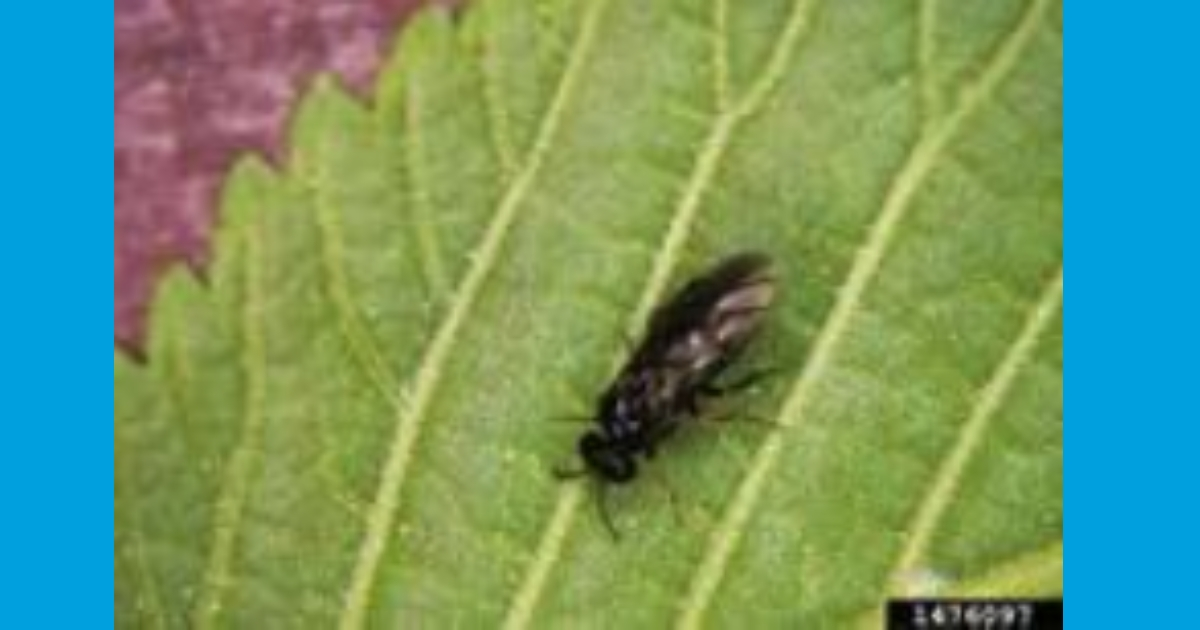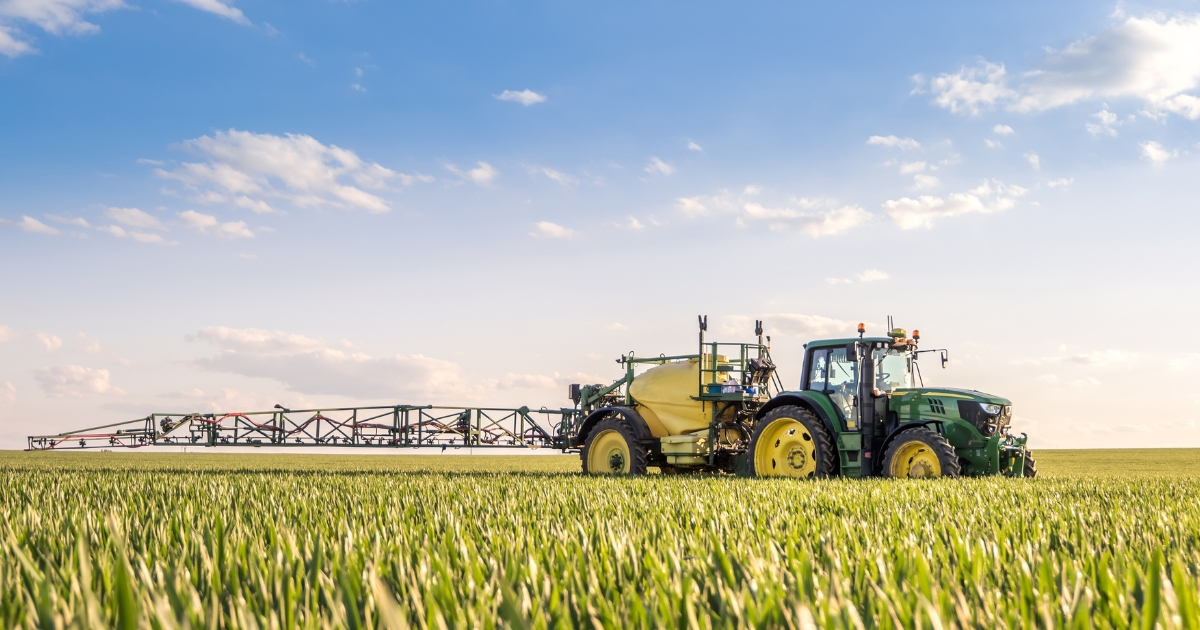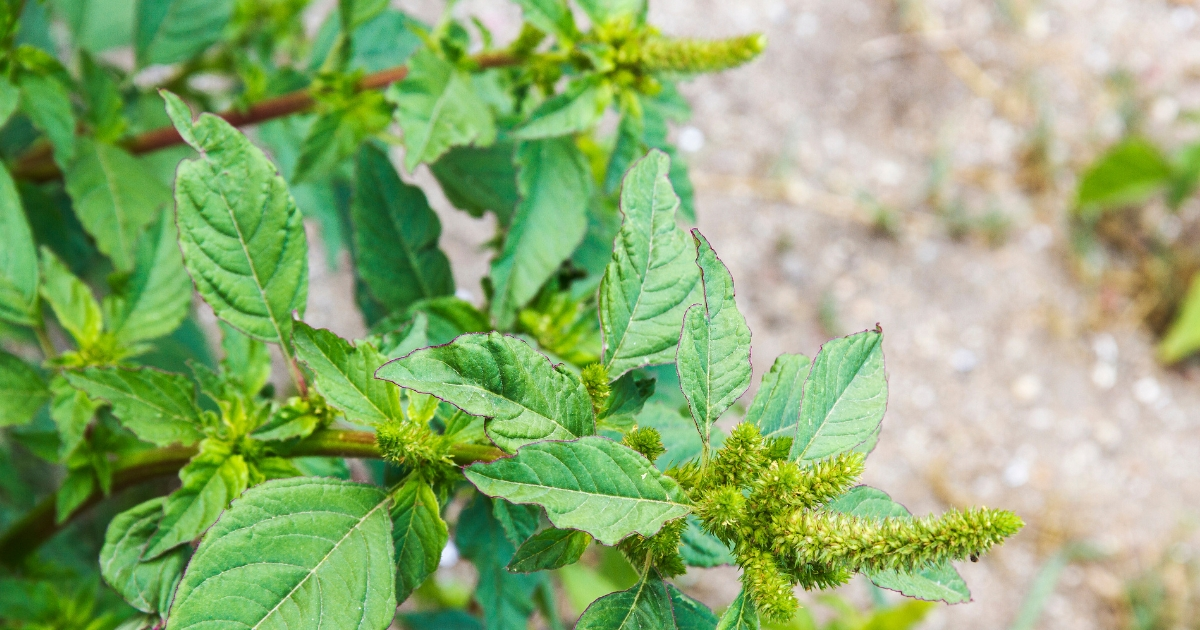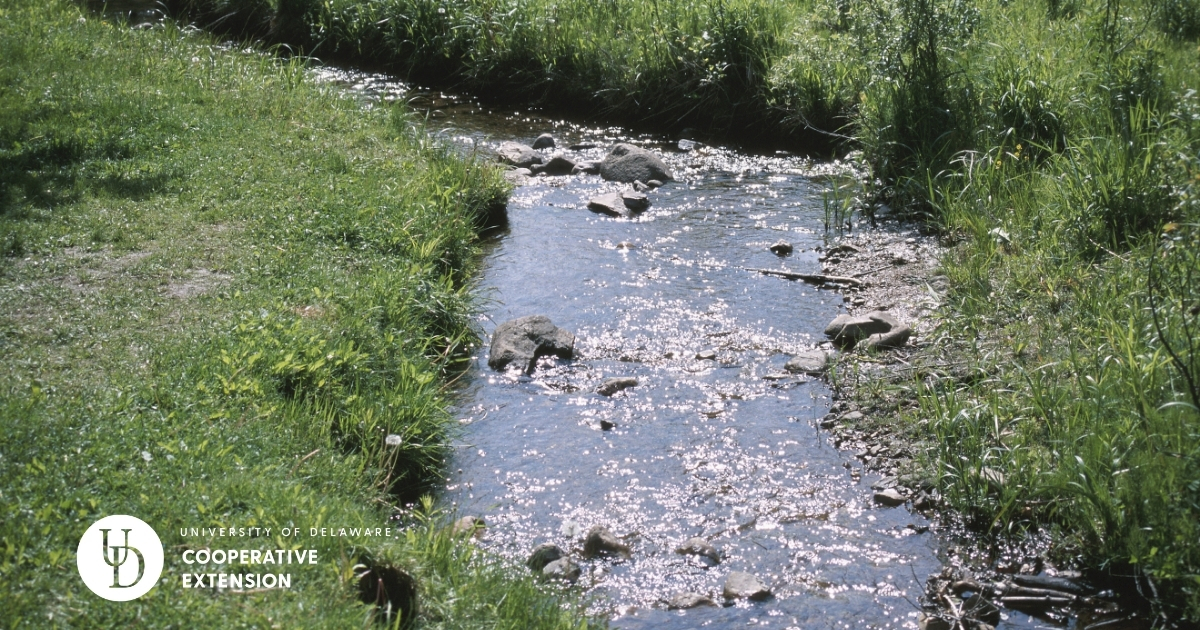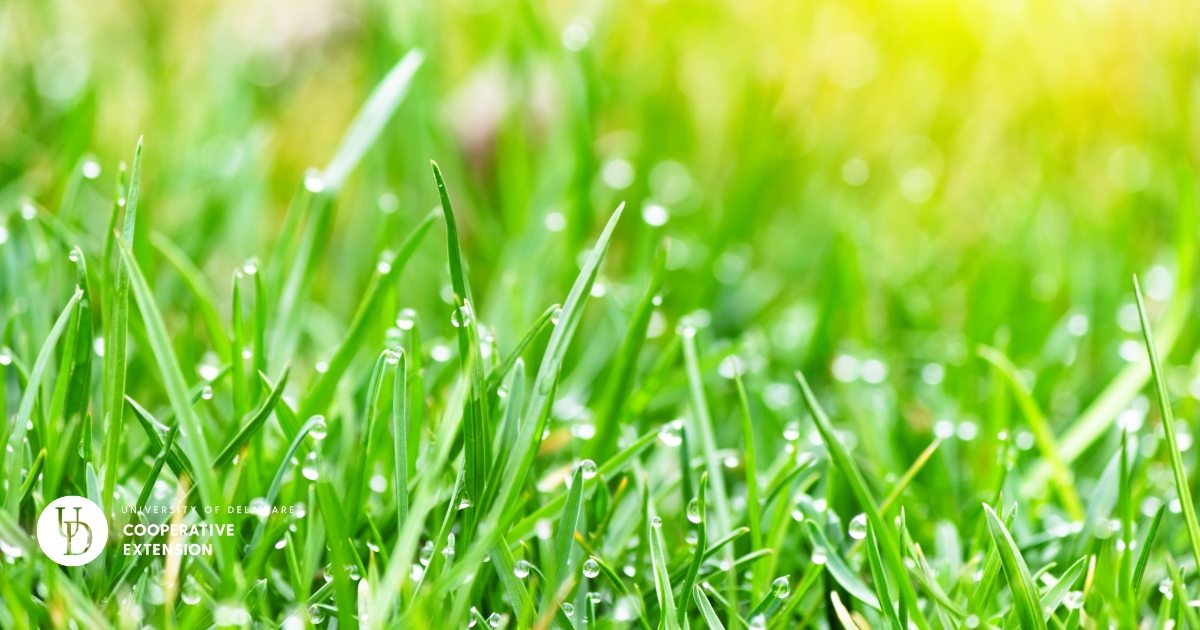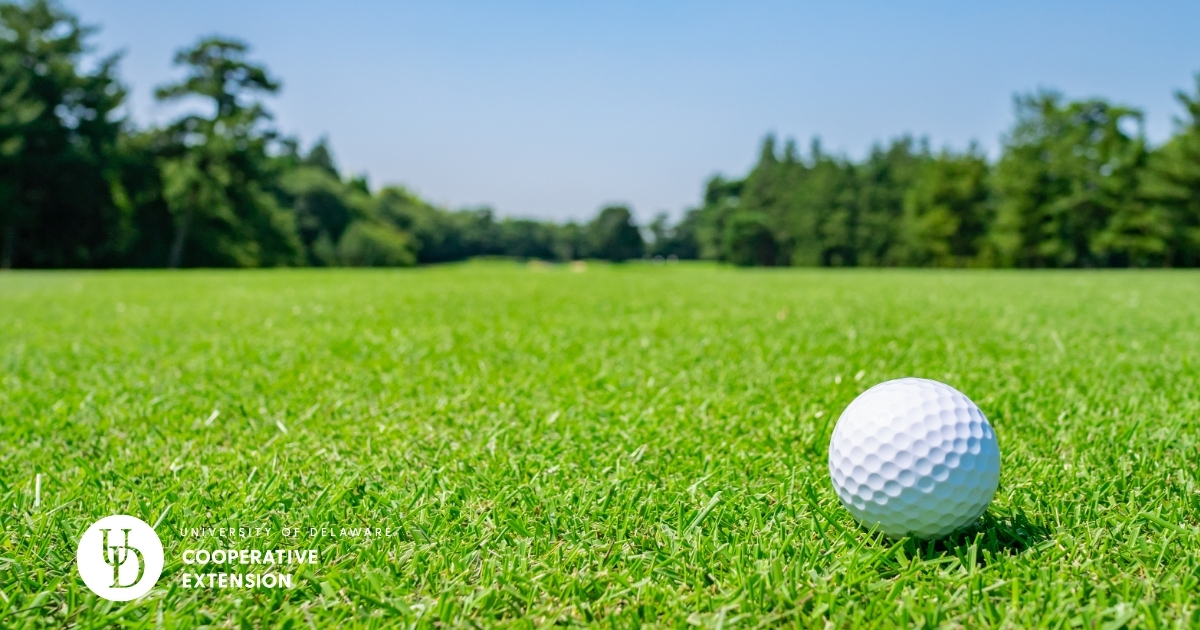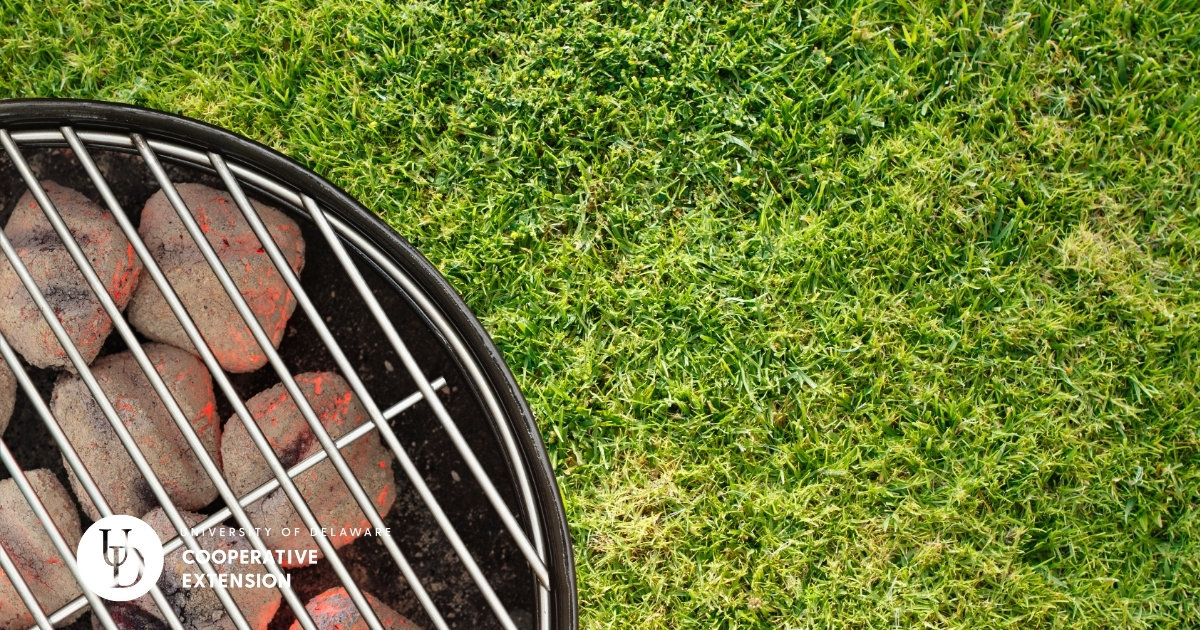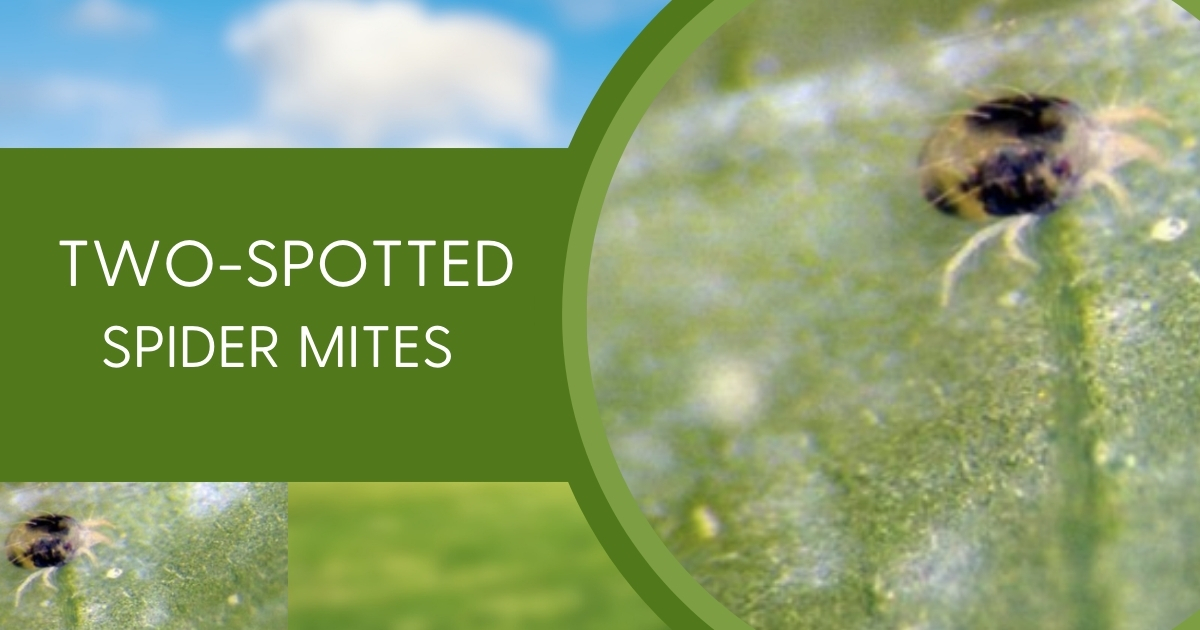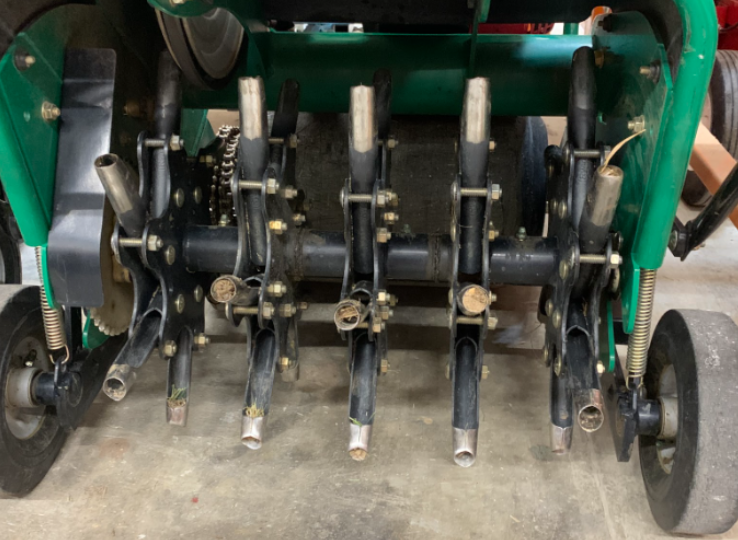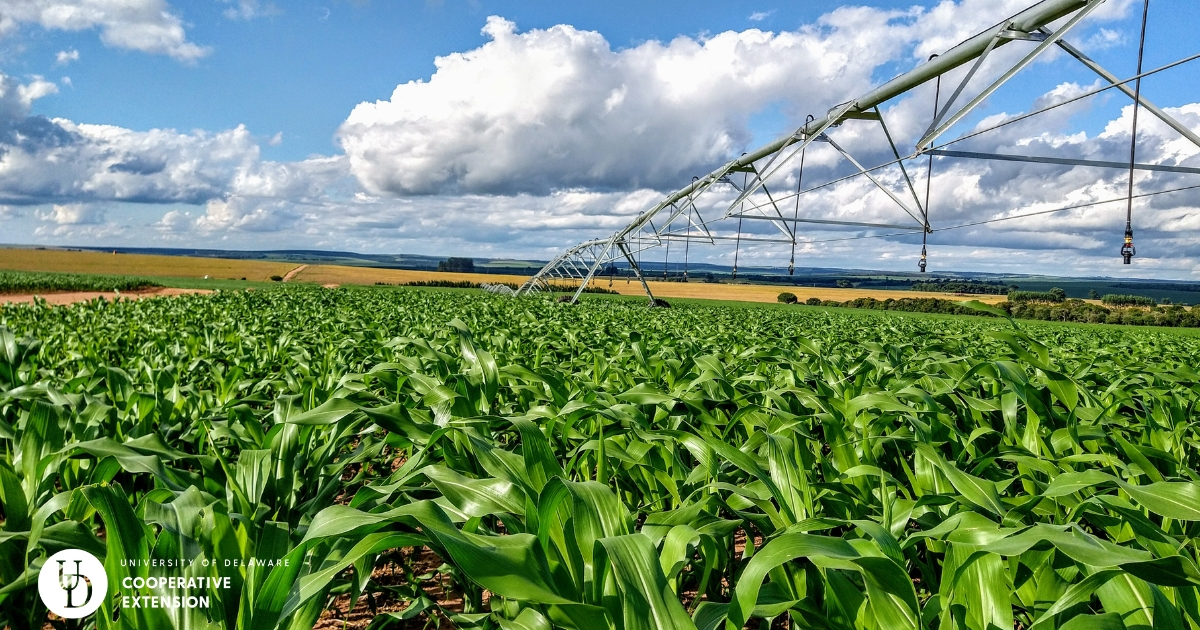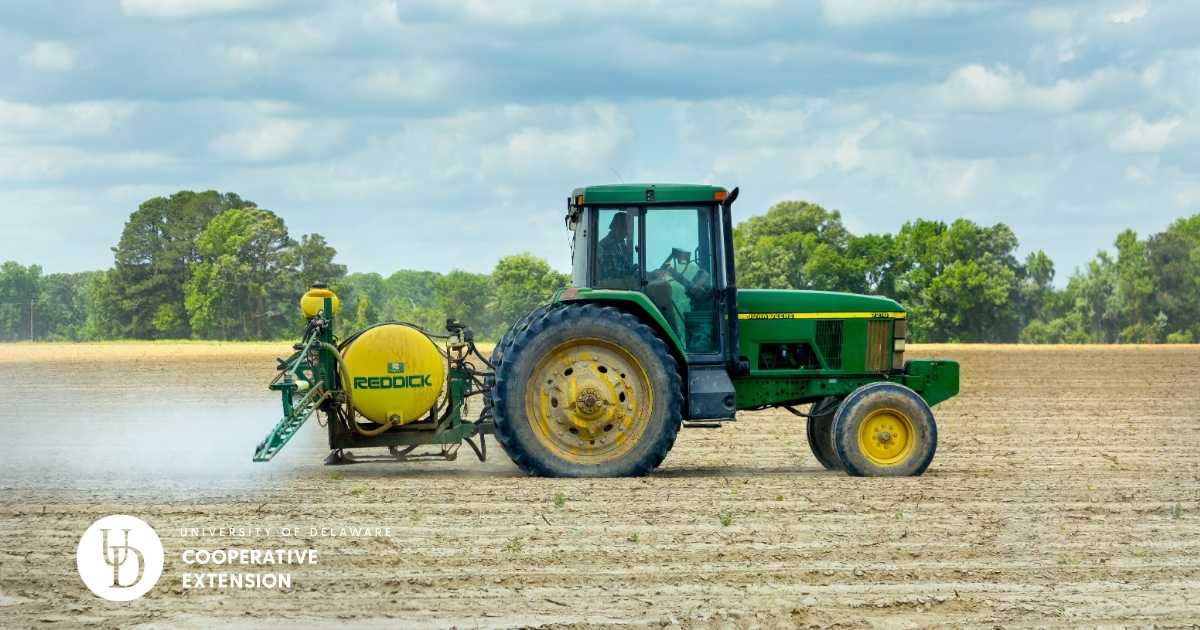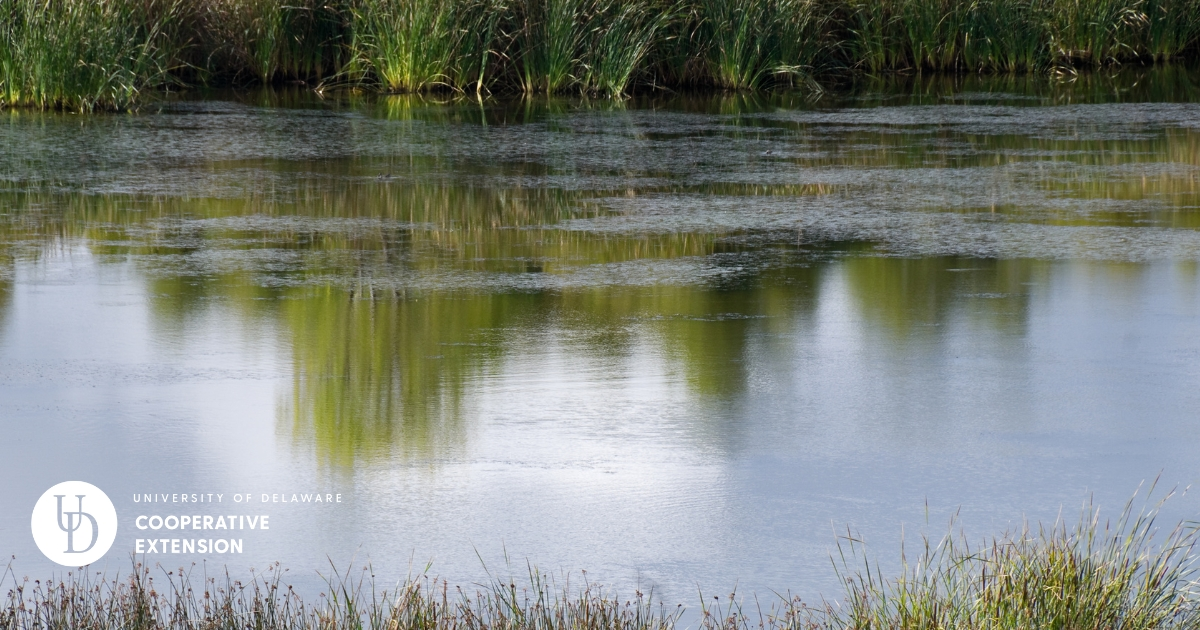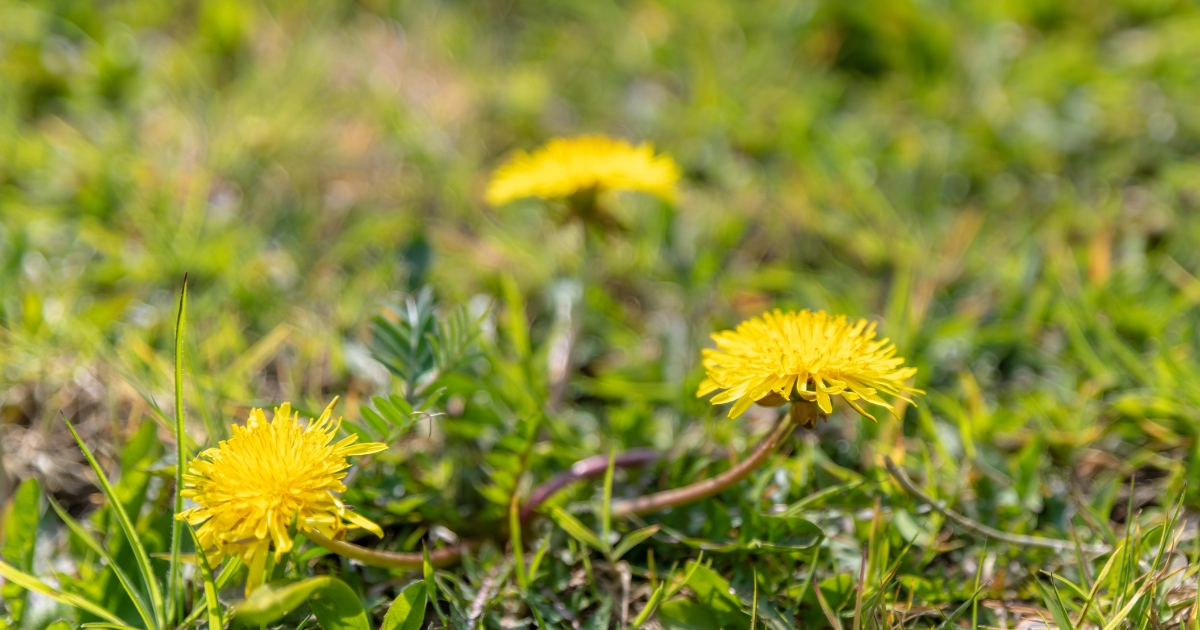
Lawn and Garden
- Ask Extension
- Health & Well-being
-
Agricultural Programs
- Agribusiness
- Animal Science
- Beginning Farmer Program
- Commercial Crops
- Commericial Horticulture
- Delaware Soil Testing Program
- Disease Management
- Farm Vitality and Health Project
- Irrigation
- Nutrient Management
-
Insect Pest Management
- Insect Trapping Program
- IPM Hot Topics
- Commercial Field Crop Insect Management
- Commercial Field Crop Disease Management
- Commercial Fruit & Vegetable Crop Pest Management
- EIPM Implementation Projects
- Pollinators
- Research and Extension Demonstration Results
- Brown Marmorated Stink Bug (BMSB) Management, Research, and Resources
- Publications
- Pesticide Safety Education Program
- UD Plant Diagnostic Clinic
- Variety Trials
- Weed Science
- Certified Crop Advisor Program
- Poultry Biosecurity
- 4-H
-
Horticulture
- Climate Variability and Change
- Delaware Soil Testing Program
- Forestry
- Lawn and Garden
- Master Gardeners
- Master Naturalist Program
-
Nutrient Management
- Nutrient Management Certification
- Continuing Education for Nutrient Management
- Nutrient Management Planning Resources
- Commercial Nutrient Handler Resources
- Poultry Litter and Manure Management
- Turf Management
- Agriculture Notebook
- Horticulture Handbook
- Agriculture & Horticulture Handbooks
- Crop Production
- Soil Fertility
- Delaware Climate Change Coordination Initiative (DECCCI)
- Salt Impacted Agricultural Lands
UD Cooperative Extension offers a plethora of lawn and garden resources, programs, events and more! Learn how to design and build a garden anywhere, grow plants successfully and reap the many benefits of gardening at home.
Popular lawn and garden topics
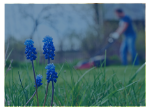
New to Delaware?
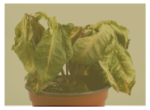
Plant Diagnostics
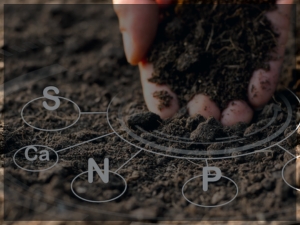
Soil Testing Program
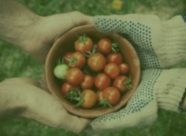
Vegetable Gardening
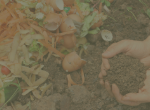
Backyard Composting
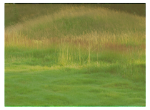
Sustainable Landscapes
Gardener Helpline
Master Gardeners are able to provide information and help on a wide variety of gardening topics including: lawns, vegetable gardens, perennial gardens, shrubs and insects. The helpline is a free and valuable gardening resource available to Delaware residents year round.
New Castle County
(302) 831-8862
Kent County
(302) 730-4000
Sussex County
(302) 831-3389
Resources by topic
Select a topic below to view additional information and available resources!
Lawns
The benefits of a healthy, attractive lawn are many and diverse. Lawns prevent erosion, provide cooling, reduce dust and mud, remove pollutants from the environment, reduce glare, absorb carbon dioxide and produce oxygen. Lawns provide a safe, comfortable space for many athletic and social activities. Areas of lawn, whether large or small, help to humanize the urban environment. Lawns provide the carpet upon which other plants are located and act as a unifying feature in the landscape.
While lawn may be an important part of your landscape, consider reducing your lawn area to reduce fuel consumption and emissions and improve the permeability of your property. If your lawn is small enough, you may be able to use a reel mower and eliminate the need for fuel altogether. What can the land be other than lawn? Planted landscape beds will look great but are expensive to install. Depending on the size of your lawn, consider allowing some lawn to become a managed meadow and allow the rest to grow into the forest.
Related Fact Sheets
All Results
Sorry, no results found.
-
BUYING AND INSTALLING CERTIFIED SOD
Like a house built on sand, your beautiful sod can be destroyed in hours by improper care at the outset. Its roots have been severed in the harvesting process and this makes it totally dependent on your tender, loving care for at least the first three weeks of its new life.
-
CHOOSING LAWN AND LANDSCAPE CARE COMPANIES
Many homeowners no longer perform the work themselves when it comes to applying fertilizer and pesticides to their lawns and landscape beds. Lawn and/or landscape companies willing to supply that service are numerous.
-
COMBATING SOIL COMPACTION
Soil texture refers to the size of soil particles, with clayey soils having the smallest particles, sandy the largest, and silty, medium. Loamy soils posses a relatively even concentration of the three particle sizes.
-
DEALING WITH DROUGHT IN THE LANDSCAPE
It is less expensive economically and environmentally to maintain landscape plants during a drought with minimal watering than to allow landscape plants to die and lose the benefits they provide.
-
DELAWARE GARDENER’S GUIDE TO LAWN AND LANDSCAPE FERTILIZERS
Fertilizers contain one or more essential plant nutrients and can be applied to landscapes to improve plant growth and quality or to correct a nutrient deficiency. There are many fertilizers available to consumers at local lawn and garden centers.
-
DELAWARE GARDENER’S GUIDE TO SOIL PH
Soil pH is a measure of soil acidity or alkalinity. On the pH scale a value of 7 is neutral, pH values less than 7 are acidic, and pH values greater than 7 are alkaline. Homeowners and gardeners are interested in soil pH because soil pH directly affects the growth and quality of many landscape plants.
-
DELAWARE GARDENING: CHALLENGE TO NEWCOMERS
Gardening in Delaware can be challenging. While the state of Delaware is small, it is comprised of two different growing environments—the piedmont and coastal plane. The piedmont covers about 5% of the land area of Delaware and exists on only the northern most corner of the state.
-
DELAWARE LIVABLE LAWNS
The goal of the Delaware Livable Lawns initiative is simple - reduce fertilizer and pesticide runoff from lawns. Did you know that the EPA considers stormwater runoff from yards, streets, parking lots and other areas to be one of the most significant sources of contamination in our country’s waters?
-
DESIGNING A SUSTAINABLE LANDSCAPE TO SERVE YOUR NEEDS
Many traditional home landscapes feature vast areas of under-utilized space, such as large turf grass lawns. Sustainable sites feature spaces for human enjoyment, considering opportunities to design outdoor rooms that suit specific needs as well as promote the health of the environment.
-
DOLLAR SPOT OF TURFGRASS
Dollar spot is an economically important disease of both cool-season and warm-season turfgrass. Due to the persistent nature of this disease, more money is spent on managing dollar spot than any other turfgrass diseases. Dollar spot reduces the aesthetic and playing quality of turfgrass.
-
FERTILIZER BASICS
Proper fertilization will enhance plant growth without polluting the environment. However, misuse of fertilizer can harm the environment and injure landscape plants by causing fertilizer burn to leaves and/or roots.
-
GREEN ROOFS
A green roof is a specially-engineered rooftop that supports plant life. Green roofs have been utilized in Europe for 30 years and are quickly gaining popularity in the United States.
-
GROUNDCOVER ALTERNATIVES TO TURF GRASS
Plants that spread over time to cover the ground are referred to as groundcovers. Usually this term denotes low-growing plants, but groundcovers can also refer to taller, spreading shrubs or trees that grow together to create a dense cover of vegetation.
-
HOW DOES YOUR LAWN AND LANDSCAPE CARE IMPACT WATER QUALITY
All living plants return some of this water back into the atmosphere through transpiration. Some groundwater also returns to the surface by flowing down grade to fill a pond, supply a stream or just bubble as a spring. Certain soils allow groundwater to infiltrate deeper into the soil and fill aquifers and deep wells.
-
HOW TO TAKE A SOIL SAMPLE?
Soil tests such as those conducted by the University of Delaware Soil Testing Laboratory will help you to develop and maintain more productive soil by providing more information about the fertility status of your soil. This helps you to select the proper lining and fertilization program so that you can obtain optimal growth of lawn, garden and ornamental plants.
-
IDENTIFYING NUTRIENT DEFICIENCIES IN ORNAMENTAL PLANT
Healthy plant growth and reproduction requires 17 nutrients. Of these, carbon (C), oxygen (O) and hydrogen (H) are derived mainly from the atmosphere and water. Soil minerals and/or soil organic matter are the main source of the remaining essential nutrients.
-
LAWN MANAGEMENT FOR WATER CONSERVATION
When designing a landscape, consider alternatives to turf. Use attractive, low-maintenance ground covers, tree and shrub plantings and water-permeable paving. A major benefit of turf is that it will take traffic. Take advantage of that and install turf where it will be used as a play area.
-
LIVABLE LAWNS - MANAGING A HEALTHY LAWN
The benefits of a healthy, attractive lawn are many and diverse. Lawns prevent erosion, provide cooling, reduce dust and mud, remove pollutants from the environment, absorb CO2 and produce 02 Lawns provide a safe, comfortable surface for many athletic and social activities. Areas of lawn, whether large or small, help bring green to the urban environment.
-
LIVABLE PLANTS FOR THE HOME LANDSCAPE
This brochure provides plant suggestions that can help gardeners create diverse landscape plantings with native and non-invasive exotic plants.
-
LIVEABLE ECOSYTEMS: A MODEL FOR SUBURBIA
What is a suburban livable ecosystem? It’s a landscape that takes advantage of natural processes while providing tangible benefits to its owner.
-
Liming Materials and Management
Soil acidity, often measured as pH, plays a crucial role in plant health and overall soil productivity. Imagine the soil as a complex ecosystem that provides essential resources for plant growth. Just as humans thrive within a comfortable temperature range, plants have specific pH preferences for optimal development.
-
NATIVE PLANTS FOR DELAWARE LANDSCAPES
Native plants are indigenous to a particular region and provide an essential foundation to support wildlife habitats for native insects and birds. Well-adapted to the local habitat, native plants grow using less water and fewer pesticide applications growing with minimum maintenance.
-
Native Hydrangeas for Delaware
Both oakleaf and smooth hydrangeas evolved in and along the woodland landscape. They prefer moisture-retentive, slightly acidic soil high in organic matter. They perform well in full sun. Both species offer full-size and dwarf sizes.
-
PLANNING A VEGETABLE GARDEN
A well-planned vegetable garden provides an economical and continuous supply of fresh, nutritious vegetables throughout the season. An urban gardener with a fairly small plot can expect to raise a substantial amount of fresh vegetables from a good garden.
-
PLANT INSTALLATION
Be sure to research the planting site’s soil chemistry, soil type, and drainage. Choose a tree or shrub compatible with your site and select an appropriate time of year to plant.
-
PLANTS FOR A LIVABLE DELAWARE
This series of brochures were developed to educate Delawareans about the problem of invasive plants in the landscape.
-
PREVENTING EROSION
A crucial role of sustainable sites is to reduce erosion, the physical wear of soil and surface rocks by water and wind. Eroded soil, called sediment, is the number one pollutant of our waterways.
-
PRUNING EVERGREENS
Pruning is an important maintenance practice. Although necessary, pruning can be kept to a minimum by the wise use and proper placement of plant materials in the landscape. Evergreen plants can be divided into two broad categories: (1) Narrowleaf (needled) evergreens such as pines, junipers, yews, and (2) Broadleaf evergreens like rhododendrons, hollies, boxwood.
-
PRUNING WOODY PLANTS
Good pruning is necessary to preserve the general attractiveness of your landscape and to keep your ornamental plants healthy. Although forest trees grow quite well with only nature’s pruning, landscape trees require a higher level of care to maintain their safety and aesthetics.
-
RECYCLING LEAVES
What organic material is full of nutrients, essential for the natural processes of soil rejuvenation, and arrives absolutely free of cost to millions of homeowners every autumn? You guessed it— the colorful liberated leaves of deciduous trees. Recycling leaves offers a great alternative to the environmental and economic expense of removing this resource from your property.
-
SUSTAINABLE LANDSCAPE MATERIALS AND PRACTICES
A sustainable site incorporates renewable, local, and low-energy input landscape materials and avoids materials, products, and practices that are harmful to the environment.
-
Supporting Biodiversity in the Garden
Sustainable sites support biodiversity, defined as the variety of life forms within a given ecosystem, biome, or the entire earth. In your backyard, you can provide a diversity of vegetation that serves as food and habitat to attract and support a variety of local wildlife.
-
TURFGRASS
Color, drought tolerance, disease and insect resistance are just a few of the many factors to consider when selecting turfgrass. Decide which features are important to you, then speak with a turf specialist to select the best options for your unique situation.
-
TURFGRASS MADNESS: REASONS TO REDUCE THE LAWN IN YOUR LANDSCAPE
Frequent and often costly maintenance is needed to keep turf grass looking its best. During peak growing months, a single lawn may require mowing more than once a week. During periods of drought, irrigation may be required to keep a lawn from going dormant. Yearly fertilizer is usually recommended for encouraging lush growth.
-
TURFGRASS SELECTIONS FOR DELAWARE
Turfgrasses are divided into two categories based on their climate adaptation. Cool-season grasses grow best in the spring and fall, with optimum growth when the temperature is between 60 and 75 degrees Fahrenheit. Warm-season grasses grow best in the summer, with optimum growth at 80-90 degrees Fahrenheit.
-
Vegetable Garden Basics
Press a small amount of soil in your palm, if it crumbles and breaks into small clumps, it has the right moisture. Till the garden soil with a rotary tiller (for larger sites) or shovel or pitchfork (for smaller sites); be sure to break up the shovel slices and large clumps.
-
WEED CONTROL IN TURF
Your lawn may grow more than the beautiful grass you intended. It may also grow weeds, which prevent your lawn from looking its best. In addition to reducing the aesthetics of your lawn, weeds compete with the desired turfgrass for water, nutrients, and light. If you don’t control weeds, your lawn will deteriorate over time.
-
YARD WASTE AND COMPOSTING
Leave grass clippings on the lawn -If you mow frequently enough (one of the best ways to improve lawn health is to mow frequently), the clippings will just sift into the lawn. They also provide a great source of nitrogen as they decompose, reducing the fertilizer requirement for your lawn by one-third.
- 1
- 2
- 3
- 4
- 5
- 6
- 7
- >>
Plant selection and design
In today’s rapidly urbanizing environment, we have a unique opportunity, if not a duty, to create livable landscapes that are attractive, easily managed, and provide a rich compliment of plants to support diverse ecosystems. Many traditional home landscapes feature vast areas of under-utilized space. Use these resources to help you select plants carefully, design and create a landscape that is personalized, functional, and sustainable, that works for both you and our environment.
Plants for a Livable Delaware Series – This series of brochures were developed to educate Delawareans about the problem of invasive plants in the landscape. Plants on the Delaware Invasive Species List that are still bought and sold in the nursery and landscape industry are highlighted in “Plants for a Livable Delaware” and at least 10 alternative plants are suggested to replace the popular invasive plant found in many home landscapes. Control recommendations for removing troublesome invasive plants are covered in “Controlling Backyard Invaders.” In “Livable Plants for the Home Landscape,” plant combinations are suggested that fill specific landscape niches, such as forest edges, sunny slopes and small garden spaces. Finally, “Livable Ecosystems: A Model for Suburbia” shows how to plant and manage rain gardens, meadows, forests and other landscape plantings that provide valuable ecosystem services.
Related Fact Sheets
All Results
Sorry, no results found.
-
CARING FOR POINSETTIAS
Popular for red flower-like bracts, poinsettias are great additions to holiday decor! There are new cultivars that are compact, or have unique colors such as pink, yellow and orange (Thanksgiving poinsettias?).
-
CHECKLIST FOR PLANT REMOVAL DECISIONS
During construction or landscaping, you may need to make decisions about existing plants on your property—should they stay or should they go? Sustainable sites promote preservation of healthy, mature specimens that offer benefits such as erosion control and wildlife habitat and do not pose a threat to human safety or the natural environment.
-
CONTROLLING BACKYARD INVADERS
Invasive plants quickly overwhelm and displace existing native plants by reducing the availability of light, water, nutrients and space. They have few, if any, natural controls to keep them in check. Ecologists now rank invasion by exotic plants, animals, and pathogens second only to habitat loss as a major threat to local biodiversity.
-
DELAWARE CHRISTMAS TREES
This season, many people are shopping for a perfect cut tree or live tree to decorate their homes. Our local Christmas tree growers face many challenges to growing a perfect tree, an expensive and time-consuming process. A Christmas tree takes 8 to 10 years to grow to a good size, and there are many hurdles along the way.
-
DELAWARE GARDENING: CHALLENGE TO NEWCOMERS
Gardening in Delaware can be challenging. While the state of Delaware is small, it is comprised of two different growing environments—the piedmont and coastal plane. The piedmont covers about 5% of the land area of Delaware and exists on only the northern most corner of the state.
-
DESIGNING A SUSTAINABLE LANDSCAPE TO SERVE YOUR NEEDS
Many traditional home landscapes feature vast areas of under-utilized space, such as large turf grass lawns. Sustainable sites feature spaces for human enjoyment, considering opportunities to design outdoor rooms that suit specific needs as well as promote the health of the environment.
-
GREEN ROOFS
A green roof is a specially-engineered rooftop that supports plant life. Green roofs have been utilized in Europe for 30 years and are quickly gaining popularity in the United States.
-
GROUNDCOVER ALTERNATIVES TO TURF GRASS
Plants that spread over time to cover the ground are referred to as groundcovers. Usually this term denotes low-growing plants, but groundcovers can also refer to taller, spreading shrubs or trees that grow together to create a dense cover of vegetation.
-
HUMAN BENEFITS OF GREEN SPACES
Interaction with gardens and natural spaces offers a variety of mental, physical and social benefits for humans, ranging from stress reduction, quicker healing, and mitigation of Attention Deficit Disorder in children to decreasing crime and air pollution.
-
Harvesting Water
Harvesting water involves capturing rainwater, grey-water, and wastewater on your property and recycling it on site, either for irrigation or to recharge groundwater supplies. Implementing this water conservation strategy provides a myriad of environmental benefits.
-
LIVABLE PLANTS FOR THE HOME LANDSCAPE
This brochure provides plant suggestions that can help gardeners create diverse landscape plantings with native and non-invasive exotic plants.
-
LIVEABLE ECOSYTEMS: A MODEL FOR SUBURBIA
What is a suburban livable ecosystem? It’s a landscape that takes advantage of natural processes while providing tangible benefits to its owner.
-
MULBERRY WEED (FATOUA VILLOSA)
Mulberry Weed or hairy crabweed (Fatoua villosa) (Thunberg) Nakai is an invasive exotic Asian species from the Mulberry family (Moraceae). First reported in Louisiana in 1964 by J.W.
-
NATIVE PLANTS FOR DELAWARE LANDSCAPES
Native plants are indigenous to a particular region and provide an essential foundation to support wildlife habitats for native insects and birds. Well-adapted to the local habitat, native plants grow using less water and fewer pesticide applications growing with minimum maintenance.
-
Native Hydrangeas for Delaware
Both oakleaf and smooth hydrangeas evolved in and along the woodland landscape. They prefer moisture-retentive, slightly acidic soil high in organic matter. They perform well in full sun. Both species offer full-size and dwarf sizes.
-
PLANNING A VEGETABLE GARDEN
A well-planned vegetable garden provides an economical and continuous supply of fresh, nutritious vegetables throughout the season. An urban gardener with a fairly small plot can expect to raise a substantial amount of fresh vegetables from a good garden.
-
PLANT INSTALLATION
Be sure to research the planting site’s soil chemistry, soil type, and drainage. Choose a tree or shrub compatible with your site and select an appropriate time of year to plant.
-
PLANT SELECTION FOR WATER CONSERVATION
Plant selection is one of the most important factors in designing a successful drought-tolerant landscape. Along with concern about plant size, texture, color and so on, we must be concerned about how a plant will perform from an ecological and horticultural standpoint.
-
PLANTS FOR A LIVABLE DELAWARE
This series of brochures were developed to educate Delawareans about the problem of invasive plants in the landscape.
-
PRUNING WOODY PLANTS
Good pruning is necessary to preserve the general attractiveness of your landscape and to keep your ornamental plants healthy. Although forest trees grow quite well with only nature’s pruning, landscape trees require a higher level of care to maintain their safety and aesthetics.
-
PURPLE LOOSESTRIFE
PURPLE LOOSESTRIFE is an herbaceous perennial plant characterized by a four-sided stem and long terminal spikes, each of which are surrounded by dense clusters of pink to magenta flowers. Each flower has 5 to 7 narrow, wrinkled petals.
-
Pollinators
What Pollinators Do For Us
Pollinators are critical to our food production system
More than 100 U.S.-grown crops rely on pollinators
The Honey Bee is our primary pollinator
-
Rain Garden
Rain gardens, sometimes called bio-retention areas, are shallow depressions in the landscape that capture stormwater and allow it to gradually percolate into the soil. Planted with moisture-loving plants that help filter out pollutants, rain gardens provide an attractive way to reduce the impact of stormwater on the environment.
-
Raised Bed Gardening
A raised bed permits plant roots to develop in soil held above water-logged, potentially contaminated, or compacted sites. You can easily incorporate compost and other organic material to ensure good drainage.
-
Supporting Biodiversity in the Garden
Sustainable sites support biodiversity, defined as the variety of life forms within a given ecosystem, biome, or the entire earth. In your backyard, you can provide a diversity of vegetation that serves as food and habitat to attract and support a variety of local wildlife.
-
THE "NEW" COMPANION PLANTING: ADDING DIVERSITY TO THE GARDEN
Do tomatoes love basil but hate brussels sprouts? Traditional companion planting, which involves planting different types of plants together or in close proximity, makes many such statements, often based on little more than folklore.
-
TREES FOR DELAWARE
Trees are important to people. Research shows that access to nature plays a significant role in life satisfaction. The most preferred scenes are ones in which nature is dominant, where there is a smooth ground texture and where trees help define the depth of the scene.
-
VEGETABLE GARDENING BASICS
Plan and put your garden on paper first and record any planting changes. If this is not the first time gardening in this spot, use last year’s garden plan as a guide to place this year’s crops.
-
Vegetable Garden Basics
Press a small amount of soil in your palm, if it crumbles and breaks into small clumps, it has the right moisture. Till the garden soil with a rotary tiller (for larger sites) or shovel or pitchfork (for smaller sites); be sure to break up the shovel slices and large clumps.
- 1
- 2
- 3
- 4
- 5
- 6
- 7
- >>
Pruning
There are many reasons for pruning. Plants are pruned to maintain health and vigor, modify form and size, maintain an attractive plant and to modify flowering or fruiting.
Plant health is improved with the removal of diseased, injured, dying or dead wood. Dead wood can harbor or provide an entry point for insects and diseases. Dead or diseased limbs can generally be pruned at anytime.
Plants are most easily maintained in their natural form. Taking a few moments to locate a tree or shrub in the “right place” where it can grow and be left in it’s natural form only takes a little planning prior to planting.
There is not a single “best time of the year” to prune. Timing is determined by the type of plant, plant species, reason’s for pruning and the effect desired. In general, most trees can be pruned at anytime except when they are leafing out in the spring or when they are losing their leaves in the fall.
Related Fact Sheets
All Results
Sorry, no results found.
-
BUYING AND INSTALLING CERTIFIED SOD
Like a house built on sand, your beautiful sod can be destroyed in hours by improper care at the outset. Its roots have been severed in the harvesting process and this makes it totally dependent on your tender, loving care for at least the first three weeks of its new life.
-
CHOOSING LAWN AND LANDSCAPE CARE COMPANIES
Many homeowners no longer perform the work themselves when it comes to applying fertilizer and pesticides to their lawns and landscape beds. Lawn and/or landscape companies willing to supply that service are numerous.
-
COMBATING SOIL COMPACTION
Soil texture refers to the size of soil particles, with clayey soils having the smallest particles, sandy the largest, and silty, medium. Loamy soils posses a relatively even concentration of the three particle sizes.
-
DEALING WITH DROUGHT IN THE LANDSCAPE
It is less expensive economically and environmentally to maintain landscape plants during a drought with minimal watering than to allow landscape plants to die and lose the benefits they provide.
-
DELAWARE GARDENER’S GUIDE TO LAWN AND LANDSCAPE FERTILIZERS
Fertilizers contain one or more essential plant nutrients and can be applied to landscapes to improve plant growth and quality or to correct a nutrient deficiency. There are many fertilizers available to consumers at local lawn and garden centers.
-
DELAWARE GARDENER’S GUIDE TO SOIL PH
Soil pH is a measure of soil acidity or alkalinity. On the pH scale a value of 7 is neutral, pH values less than 7 are acidic, and pH values greater than 7 are alkaline. Homeowners and gardeners are interested in soil pH because soil pH directly affects the growth and quality of many landscape plants.
-
DELAWARE GARDENING: CHALLENGE TO NEWCOMERS
Gardening in Delaware can be challenging. While the state of Delaware is small, it is comprised of two different growing environments—the piedmont and coastal plane. The piedmont covers about 5% of the land area of Delaware and exists on only the northern most corner of the state.
-
DELAWARE LIVABLE LAWNS
The goal of the Delaware Livable Lawns initiative is simple - reduce fertilizer and pesticide runoff from lawns. Did you know that the EPA considers stormwater runoff from yards, streets, parking lots and other areas to be one of the most significant sources of contamination in our country’s waters?
-
DESIGNING A SUSTAINABLE LANDSCAPE TO SERVE YOUR NEEDS
Many traditional home landscapes feature vast areas of under-utilized space, such as large turf grass lawns. Sustainable sites feature spaces for human enjoyment, considering opportunities to design outdoor rooms that suit specific needs as well as promote the health of the environment.
-
DOLLAR SPOT OF TURFGRASS
Dollar spot is an economically important disease of both cool-season and warm-season turfgrass. Due to the persistent nature of this disease, more money is spent on managing dollar spot than any other turfgrass diseases. Dollar spot reduces the aesthetic and playing quality of turfgrass.
-
FERTILIZER BASICS
Proper fertilization will enhance plant growth without polluting the environment. However, misuse of fertilizer can harm the environment and injure landscape plants by causing fertilizer burn to leaves and/or roots.
-
GREEN ROOFS
A green roof is a specially-engineered rooftop that supports plant life. Green roofs have been utilized in Europe for 30 years and are quickly gaining popularity in the United States.
-
GROUNDCOVER ALTERNATIVES TO TURF GRASS
Plants that spread over time to cover the ground are referred to as groundcovers. Usually this term denotes low-growing plants, but groundcovers can also refer to taller, spreading shrubs or trees that grow together to create a dense cover of vegetation.
-
HOW DOES YOUR LAWN AND LANDSCAPE CARE IMPACT WATER QUALITY
All living plants return some of this water back into the atmosphere through transpiration. Some groundwater also returns to the surface by flowing down grade to fill a pond, supply a stream or just bubble as a spring. Certain soils allow groundwater to infiltrate deeper into the soil and fill aquifers and deep wells.
-
HOW TO TAKE A SOIL SAMPLE?
Soil tests such as those conducted by the University of Delaware Soil Testing Laboratory will help you to develop and maintain more productive soil by providing more information about the fertility status of your soil. This helps you to select the proper lining and fertilization program so that you can obtain optimal growth of lawn, garden and ornamental plants.
-
IDENTIFYING NUTRIENT DEFICIENCIES IN ORNAMENTAL PLANT
Healthy plant growth and reproduction requires 17 nutrients. Of these, carbon (C), oxygen (O) and hydrogen (H) are derived mainly from the atmosphere and water. Soil minerals and/or soil organic matter are the main source of the remaining essential nutrients.
-
LAWN MANAGEMENT FOR WATER CONSERVATION
When designing a landscape, consider alternatives to turf. Use attractive, low-maintenance ground covers, tree and shrub plantings and water-permeable paving. A major benefit of turf is that it will take traffic. Take advantage of that and install turf where it will be used as a play area.
-
LIVABLE LAWNS - MANAGING A HEALTHY LAWN
The benefits of a healthy, attractive lawn are many and diverse. Lawns prevent erosion, provide cooling, reduce dust and mud, remove pollutants from the environment, absorb CO2 and produce 02 Lawns provide a safe, comfortable surface for many athletic and social activities. Areas of lawn, whether large or small, help bring green to the urban environment.
-
LIVABLE PLANTS FOR THE HOME LANDSCAPE
This brochure provides plant suggestions that can help gardeners create diverse landscape plantings with native and non-invasive exotic plants.
-
LIVEABLE ECOSYTEMS: A MODEL FOR SUBURBIA
What is a suburban livable ecosystem? It’s a landscape that takes advantage of natural processes while providing tangible benefits to its owner.
-
Liming Materials and Management
Soil acidity, often measured as pH, plays a crucial role in plant health and overall soil productivity. Imagine the soil as a complex ecosystem that provides essential resources for plant growth. Just as humans thrive within a comfortable temperature range, plants have specific pH preferences for optimal development.
-
NATIVE PLANTS FOR DELAWARE LANDSCAPES
Native plants are indigenous to a particular region and provide an essential foundation to support wildlife habitats for native insects and birds. Well-adapted to the local habitat, native plants grow using less water and fewer pesticide applications growing with minimum maintenance.
-
Native Hydrangeas for Delaware
Both oakleaf and smooth hydrangeas evolved in and along the woodland landscape. They prefer moisture-retentive, slightly acidic soil high in organic matter. They perform well in full sun. Both species offer full-size and dwarf sizes.
-
PLANNING A VEGETABLE GARDEN
A well-planned vegetable garden provides an economical and continuous supply of fresh, nutritious vegetables throughout the season. An urban gardener with a fairly small plot can expect to raise a substantial amount of fresh vegetables from a good garden.
-
PLANT INSTALLATION
Be sure to research the planting site’s soil chemistry, soil type, and drainage. Choose a tree or shrub compatible with your site and select an appropriate time of year to plant.
-
PLANTS FOR A LIVABLE DELAWARE
This series of brochures were developed to educate Delawareans about the problem of invasive plants in the landscape.
-
PREVENTING EROSION
A crucial role of sustainable sites is to reduce erosion, the physical wear of soil and surface rocks by water and wind. Eroded soil, called sediment, is the number one pollutant of our waterways.
-
PRUNING EVERGREENS
Pruning is an important maintenance practice. Although necessary, pruning can be kept to a minimum by the wise use and proper placement of plant materials in the landscape. Evergreen plants can be divided into two broad categories: (1) Narrowleaf (needled) evergreens such as pines, junipers, yews, and (2) Broadleaf evergreens like rhododendrons, hollies, boxwood.
-
PRUNING WOODY PLANTS
Good pruning is necessary to preserve the general attractiveness of your landscape and to keep your ornamental plants healthy. Although forest trees grow quite well with only nature’s pruning, landscape trees require a higher level of care to maintain their safety and aesthetics.
-
RECYCLING LEAVES
What organic material is full of nutrients, essential for the natural processes of soil rejuvenation, and arrives absolutely free of cost to millions of homeowners every autumn? You guessed it— the colorful liberated leaves of deciduous trees. Recycling leaves offers a great alternative to the environmental and economic expense of removing this resource from your property.
-
SUSTAINABLE LANDSCAPE MATERIALS AND PRACTICES
A sustainable site incorporates renewable, local, and low-energy input landscape materials and avoids materials, products, and practices that are harmful to the environment.
-
Supporting Biodiversity in the Garden
Sustainable sites support biodiversity, defined as the variety of life forms within a given ecosystem, biome, or the entire earth. In your backyard, you can provide a diversity of vegetation that serves as food and habitat to attract and support a variety of local wildlife.
-
TURFGRASS
Color, drought tolerance, disease and insect resistance are just a few of the many factors to consider when selecting turfgrass. Decide which features are important to you, then speak with a turf specialist to select the best options for your unique situation.
-
TURFGRASS MADNESS: REASONS TO REDUCE THE LAWN IN YOUR LANDSCAPE
Frequent and often costly maintenance is needed to keep turf grass looking its best. During peak growing months, a single lawn may require mowing more than once a week. During periods of drought, irrigation may be required to keep a lawn from going dormant. Yearly fertilizer is usually recommended for encouraging lush growth.
-
TURFGRASS SELECTIONS FOR DELAWARE
Turfgrasses are divided into two categories based on their climate adaptation. Cool-season grasses grow best in the spring and fall, with optimum growth when the temperature is between 60 and 75 degrees Fahrenheit. Warm-season grasses grow best in the summer, with optimum growth at 80-90 degrees Fahrenheit.
-
Vegetable Garden Basics
Press a small amount of soil in your palm, if it crumbles and breaks into small clumps, it has the right moisture. Till the garden soil with a rotary tiller (for larger sites) or shovel or pitchfork (for smaller sites); be sure to break up the shovel slices and large clumps.
-
WEED CONTROL IN TURF
Your lawn may grow more than the beautiful grass you intended. It may also grow weeds, which prevent your lawn from looking its best. In addition to reducing the aesthetics of your lawn, weeds compete with the desired turfgrass for water, nutrients, and light. If you don’t control weeds, your lawn will deteriorate over time.
-
YARD WASTE AND COMPOSTING
Leave grass clippings on the lawn -If you mow frequently enough (one of the best ways to improve lawn health is to mow frequently), the clippings will just sift into the lawn. They also provide a great source of nitrogen as they decompose, reducing the fertilizer requirement for your lawn by one-third.
- 1
- 2
- 3
- 4
- 5
- 6
- 7
- >>
Related Fact Sheets
All Results
Sorry, no results found.
- 1
Vegetable gardening can be a great way to stay active and eat healthy!
Related Fact Sheets
All Results
Sorry, no results found.
-
ASH RUST
Ash rust, caused by the rust fungus Puccinia sparganioides, is a disease which infects white and green ash in Delaware. Black ash is also reported as a host where it occurs. Leaves, petioles and green twigs are infected. Ash rust, like many rust diseases, needs two different hosts to complete its complicated life cycle. The alternate host for ash rust is marsh and cord grass (Spartina spp.and Distichlis spicata) which is found in coastal areas.
-
Adjusting Nitrogen Rate Recommendations For Agronomic, Forage/Hay, and Vegetable Crops in Delaware
Nutrient recommendations for most essential elements are based upon soil test calibration studies. These calibration studies relate the likelihood of a profitable plant response to nutrient addition with the nutrient concentration in the soil as measured by a soil test. However, nitrogen (N) is not included in routine soil analysis because it is not possible to test soils in advance of planting and accurately predict the need for N fertilization.
-
Arugula
- Eruca sativa, Arugula
- Brassicaceae family (mustards)
- Sunlight: full sun. Light shade may help slow bolting.
- Soil conditions: rich, well-drained soil.
-
BASIL DOWNY MILDEW
DOWNY MILDEW ON BASIL is caused by an Oomycete pathogen that only goes to basil, but can be devastating. Symptoms include leaf yellowing, followed by dark lesions, and leaves of this popular herb become unusable. Spores are produced on the undersides of leaves, but can be confused with other fungi, dust and potting material.
-
BEANS
BEANS: General information- Phaseolus vulgaris, Beans, Fabaceae family, full sun, well-drained, fertile soil.
-
BEEFSTEAK TOMATOES
BEEFSTEAK TOMATOES: General information- Solanum lycopersicum, Tomato Solanaceae family. Sunlight: full sun. Soil conditions: well-drained, fertile soil, high in organic matter. Tomatoes come in both determinate (bush) varieties and indeterminate (climbing) varieties.
-
BEETS
BEETS: General information- Beta vulgaris, Amaranthaceae family, full sun, fertile, evenly moist soil, free of rocks. Beets need cool temperatures to germinate and grow.
-
BROCCOLI
BROCCOLI: General information- Brassica oleracea var. botrytis, Brassicaceae family, full sun. Can tolerate light shade but will slow maturity. Requires well-drained, fertile soil high in organic matter. Needs plentiful, consistent moisture.
-
BRUSSEL SPROUTS
BRUSSEL SPROUTS: General information- Brassica oleracea var. gemmifera, Brassicaceae family, full sun, consistently moist, fertile soil. Can be harvested as stalks or as sprouts.
-
Basil
BASIL: General information- Ocimum basilicum, Lamiaceae family, full sun, well-drained soil, high in organic matter. Grows well in a container. Annual
-
CABBAGE
CABBAGE: General information- Brassica oleracea var. capitata, Brassicaceae family, full sun. Can tolerate light shade but will slow maturity. Light shade can be beneficial in warm weather. Prefers well-drained, fertile soil, high in organic matter.
-
CARROTS
CARROTS: General information- Daucus carota var. sativus, Umbelliferae family, full sun. Will tolerate very light shade. Good quality roots require plentiful moisture, well-drained soil that is deep, loose, free of stones and high in organic matter.
-
CAULIFLOWER
CAULIFLOWER: General information- Brassica oleracea var. botrytis, Cauliflower, Brassicaceae family, full sun. Light shade. Can tolerate light shade but will slow maturity. Requires well-drained soil. Prefers fertile soil high in organic matter. Needs plentiful, consistent moisture.
-
CHERRY TOMATOES
CHERRY TOMATOES: General information- Solanum lycopersicum, TomatoSolanaceae family. Sunlight: full sun. Soil conditions: well-drained, fertile soil, high in organic matter. Tomatoes come in both determinate (bush) varieties and indeterminate (climbing) varieties.
-
CHIVES
CHIVES: General information- Allium schoenoprasum, Amaryllidaeae family, sun and part shade, well-drained soil, rich in organic matter. Grows well in a container. Perennial.
-
CILANTRO
CILANTRO: General information- Coriandrum sativum, Apiaceae family, full to part sun, loamy, well-drained soil. Cilantro (leaves) Coriander (seeds). Grows well in a container. Annual.
-
COLLARDS
Collards: General information- Brassica oleracea var. acephala, Brassicaceae family, full sun. Prefers full sun in spring but can benefit from light shade during hot weather. Requires well-drained soil. Prefers well-drained, fertile soil high in organic matter.
-
CONSIDER A VEGETABLE GARDEN THIS YEAR
How much time do you have to plant, weed and harvest in your garden? A small garden is best for beginners. Go bigger as your skills and time increase. Do you have a sunny spot? Most vegetables require 6 to 8 hours of sunlight. Vegetables prefer loose, well drained soil; rich in organic matter (compost).
-
CUCUMBER
CUCUMBER: General information- Cucumis sativus, Cucurbitaceae family, full sun, well-drained, fertile soil, high in organic matter.. Vining and bush varieties. Bush varieties grow well in a container.
-
Canning Fruits
Fruits, acidified tomatoes, pickled products, and fruit spreads may be processed safely in a boiling-water bath.
-
Canning Vegetables
In the interest of food safety, vegetables must be processed in a pressure canner. Pressure for processing ranges between 5 pounds pressure to 15 pounds pressure, depending on the type of canner and food being processed. Processing time varies according to specific vegetable and size container.
-
DILL
DILL: General information- Anethum graveolens, Dill, Apiaceae family, full sun. Grows best in loamy, well drained soil but can grow in poor soil. Grows well in a container. Annual
-
DOWNY MILDEW ON LIMA BEAN
Downy mildew of lima bean, caused by the oomycete, Phytophthora phaseoli, is a common disease in Delaware production areas. Proper identification and management of the disease is critical for protecting lima bean yields. This publication will review how to correctly identify the disease, describe its lifecycle, and outline management options for growers.
-
EGGPLANT
- Scientific Name: Solanum melongena
- Family: Solanaceae
- Warm season
- Planting Window:
- Start seeds under lights indoors in mid-March for transplanting
- Scientific Name: Solanum melongena
-
HEIRLOOM TOMATOES
HEIRLOOM TOMATOES: General information- Solanum lycopersicum, Tomato Solanaceae family, Sunlight: full sun. Soil conditions: well-drained, fertile soil, high in organic matter. Tomatoes come in both determinate (bush) varieties and indeterminate (climbing) varieties.
-
HOME ORCHARD PRODUCTION – APPLE, PEAR, AND STONE FRUIT DISEASE MANAGEMENT
While it is tempting to plant fruit trees and not apply chemical control measures, it is often impractical, and the resulting fruit crop may be disappointing or not result in any harvestable fruit.
-
HUMAN BENEFITS OF GREEN SPACES
Interaction with gardens and natural spaces offers a variety of mental, physical and social benefits for humans, ranging from stress reduction, quicker healing, and mitigation of Attention Deficit Disorder in children to decreasing crime and air pollution.
-
INSECTICIDES FOR APHID CONTROL ON VEGETABLES
Insecticide efficacy rankings based on consensus of Northeast, Mid-Atlantic, and Southern entomologists.
-
KALE
KALE: General information- Brassica oleracea var. acephala, Brassicaceae family, full sun to part shade. Prefers full sun in spring and fall, but can benefit from light shade during hot weather. Prefers well-drained, fertile soil high in organic matter. Needs plentiful, consistent moisture.
-
KOHLRABI
KOHLRABI: General information- Brassica oleracea var. gongylodes(Kohlrabi) Brassicaceae Family, full sun. Tolerates light shade. Prefers well-drained, fertile soil high in organic matter.
-
LAVENDER
LAVENDER: General information- Lavandula angustifolia, Lamiaceae family, full sun, low fertility, well-drained soil. Grows well in a container. Perennial
-
LEAF LETTUCE
- Scientific Name: Lactuca sativa
- Family: Asteraceae
- Cool season
- Planting Window:
- Spring: mid-March to late April
-
LEAF SPOT DISEASES IN GARDEN TOMATOES
Foliar leaf spot diseases and blights of tomato plants are common problems for tomato growers in Delaware and the Mid-Atlantic States. Pathogens survive in plant debris or weed hosts, and are favored by humid weather and moderate temperatures.
-
LEEKS
LEEKS: General information- Allium ampeloprasum, Allium family, full sun, well drained soil, high in organic matter. Best grown as a transplant. Blanch with soil to increase white shanks.
-
LETTUCE
LETTUCE: General information- Lactuca saliva, Asteraceae family, full sun but can tolerate some shade, especially in the summer, moist, well-drained soil. Butterhead, Crisphead, Romaine, Looseleaf varieties.
-
LIMA BEANS
LIMA BEANS: General information- Phaseolus lunatus, Lima Bean, Fabaceae family, full sun. Soil conditions: loose, evenly moist, well drained soil. Bush and pole varieties.
-
MELON
MELON: General information- Cucumis melo, Melon, Cucurbitaceae family. Sunlight: full sun. Soil conditions: fertile, well-drained soil.Can be grown on a trellis.
-
MINT
MINT: General information- Mentha sp., Mint, Lamiaceae family, Sunlight: full sun to part shade. Soil conditions: rich, moist, well-drained soil. Grows well in a container. Perennial, wide spreading, can become invasive.
-
MULBERRY WEED (FATOUA VILLOSA)
Mulberry Weed or hairy crabweed (Fatoua villosa) (Thunberg) Nakai is an invasive exotic Asian species from the Mulberry family (Moraceae). First reported in Louisiana in 1964 by J.W.
-
NON-CHEMICAL PEST CONTROL OPTIONS FOR MANAGING INSECT PESTS ON BRASSICAS
July and August in the vegetable garden typically bring bountiful harvests of colorful vegetables. These are also the months when insect pests can really make their presence known, with plant and fruit damage becoming increasingly noticeable.
-
NON-CHEMICAL PEST CONTROL OPTIONS FOR MANAGING INSECT PESTS ON CUCURBITS
July and August in the vegetable garden typically bring bountiful harvests of colorful vegetables. These are also the months when insect pests can really make their presence known, with plant and fruit damage becoming increasingly noticeable.
-
NON-CHEMICAL PEST CONTROL OPTIONS FOR MANAGING INSECT PESTS ON SOLANACEOUS PLANTS
July and August in the vegetable garden typically bring bountiful harvests of colorful vegetables. These are also the months when insect pests can really make their presence known, with plant and fruit damage becoming increasingly noticeable.
-
Native Hydrangeas for Delaware
Both oakleaf and smooth hydrangeas evolved in and along the woodland landscape. They prefer moisture-retentive, slightly acidic soil high in organic matter. They perform well in full sun. Both species offer full-size and dwarf sizes.
-
ONION
Onion:
- Scientific Name: Allium cepa
- Family: Alliaceae, Amaryllidaceae
- Cool season
- Planting Window: mid-March to mid-April
- pH = 5.5-7.0
- Scientific Name: Allium cepa
-
ONIONS
ONIONS: General information- Allium cepa, Onion, Amaryllidaceae family, Sunlight: full sun. Soil conditions: Well-drained, fertile soil. Can be planted from seeds, sets, and transplants. Onion bulbing is triggered by day length. Short Day varieties form bulbs when day length reaches 10 hours.
-
OREGANO
OREGANO: General information- Origanum vulgare, Oregano, Lamiaceae family, Sunlight: full sun. Soil conditions: light, moderately fertile, well-drained soil. Can thrive in areas with tough growing conditions. Grows well in a container. Perennial
-
PARSLEY
PARSLEY: General information- Petroselinum crispum, Parsley, Apiaceae family, Sunlight: Full sun. Soil conditions: well-drained soil, high in organic matter. Grows well in a container. Biennial
-
PASTE TOMATOES
PASTE TOMATOES: General information- Solanum lycopersicum, Tomato, Solanaceae family. Sunlight: full sun. Soil conditions: well-drained, fertile soil, high in organic matter. Tomatoes come in both determinate (bush) varieties and indeterminate (climbing) varieties.
-
PEAS
PEAS: General information- Pisum sativum (Peas) Fabaceae Family (Legume) Sunlight: full sun. Soil conditions: fertile, well drained soil. Can tolerate light frost. Bush and vining varieties.
-
PEPPERS
PEPPERS: General information- Capsicum annuum, Pepper, Solanaceae family, Sunlight: Full sun. Soil conditions: well-drained fertile soil. Bell (pictured here), sweet, and hot varieties.
-
PERMEABLE VS. IMPERMEABLE SURFACES
Permeable surfaces (also known as porous or pervious surfaces) allow water to percolate into the soil to filter out pollutants and recharge the water table. Impermeable/impervious surfaces are solid surfaces that don’t allow water to penetrate, forcing it to run off.
-
PLANNING A VEGETABLE GARDEN
A well-planned vegetable garden provides an economical and continuous supply of fresh, nutritious vegetables throughout the season. An urban gardener with a fairly small plot can expect to raise a substantial amount of fresh vegetables from a good garden.
-
POTATOES
POTATOES: General information- Solanum tuberosum, Potato, Solanaceae family, Sunlight: full sun. Soil conditions: prefers well-drained, light, deep, loose soil, high in organic matter.
-
Plant a Row for the Hungry
Plant-A-Row for the Hungry (PAR) is a people-helping-people program.
-
RADISH
RADISH: General information- Raphanus sativus (Radish) Brassicaceae family, Sunlight: full sun to part shade. Soil Conditions: requires well-drained soil. Needs consistent moisture. Grows well in container.
-
RADISHES
Radishes:
- cientific Name: Raphanus sativus
- Family: Brassica
- Cool season
- Planting Window:
- Spring: mid-March to mid-April
- Fall: mid-August to mid-September
- cientific Name: Raphanus sativus
-
ROSEMARY
ROSEMARY: General information- Salvia rosmarinus, Rosemary, Lamiaceae family. Sunlight: full sun.Soil conditions: loose, well-drained soil. Grows well in a container. Perennial
-
Raised Bed Gardening
A raised bed permits plant roots to develop in soil held above water-logged, potentially contaminated, or compacted sites. You can easily incorporate compost and other organic material to ensure good drainage.
-
SAGE
SAGE: General information- Salvia offiinalis, Sage, Lamiaceae family. Sunlight: full sun. Soil conditions: sandy, loamy, well-drained soil. Grows well in a container. Perennial
-
SLICER TOMATOES
SLICER TOMATOES: General information- Solanum lycopersicum, Tomato Solanaceae family. Sunlight: full sun. Soil conditions: well-drained, fertile soil, high in organic matter. Tomatoes come in both determinate (bush) varieties and indeterminate (climbing) varieties.
-
SUMMER SQUASH
Summer Squash: General information- Cucurbita pepo, Summer Squash, Cucurbitaceae family, Sunlight: full sun. Soil Conditions: requires well-drained soil, high fertility. Grows well in container.
-
SWEET POTATOES
SWEET POTATOES: General information- pomoea batatas, Sweet Potato, Convolvulaceae family. Sunlight: full sun. Soil conditions: well-drained, loose soil. Grown from slips.
-
SWISS CHARD
SWISS CHARD: General Information- Swiss Chard: Beta vulgaris var. cicla (Chenopodiaceae) Sunlight: full Sun to part shade. Soil conditions: requires well-drained soil. Prefers deep, loose, fertile soil, high in organic matter. Harvest outer leaves, avoiding center crown, for continued production.
-
Supporting Biodiversity in the Garden
Sustainable sites support biodiversity, defined as the variety of life forms within a given ecosystem, biome, or the entire earth. In your backyard, you can provide a diversity of vegetation that serves as food and habitat to attract and support a variety of local wildlife.
-
THE "NEW" COMPANION PLANTING: ADDING DIVERSITY TO THE GARDEN
Do tomatoes love basil but hate brussels sprouts? Traditional companion planting, which involves planting different types of plants together or in close proximity, makes many such statements, often based on little more than folklore.
-
THYME
THYME: General information- Thymus vulgaris, Thyme, Lamiaceae family Sunlight: full sun. Soil conditions: light, well-drained soil. Grows well in a container. Perennial
-
TOMATO FACTS AND RECIPES
Skin should appear deep, bright red (except heirloom tomatoes have different colors), without blemishes or bruises or discoloration. Feel: dense, firm, but not too hard; and without any soft spots. Smell: should have a strong, sweet, earthy odor by the stem.
-
TOMATOES
Tomatoes:
- Scientific Name: Lycopersicon lycopersicum
- Family: Solanaceae
- Warm season
- Planting Window:
- Start seeds indoors, under lights in mid-March 8 weeks prior to transplanting around mid-May
- Scientific Name: Lycopersicon lycopersicum
-
TURNIPS
TURNIPS: General information- Brassica rapa, Turnip, Brasssicaceae family (Mustards) Sunlight: full sun. Can tolerate some shade. Soil Conditions: loose, fertile soil with good drainage. Roots and leaves can be eaten.
-
TWO SPOTTED SPIDER MITE
The twospotted spider mite (TSSM) is a plant-feeding mite that is an extremely widespread pest affecting nearly all crop plants (over 1000 plant species). TSSM is very small in size and requires magnification to see clearly.
-
VEGETABLE GARDENING BASICS
Plan and put your garden on paper first and record any planting changes. If this is not the first time gardening in this spot, use last year’s garden plan as a guide to place this year’s crops.
-
Vegetable Garden Basics
Press a small amount of soil in your palm, if it crumbles and breaks into small clumps, it has the right moisture. Till the garden soil with a rotary tiller (for larger sites) or shovel or pitchfork (for smaller sites); be sure to break up the shovel slices and large clumps.
-
WATERMELON
WATERMELON: General information- Citrullus lanatus, Watermelon, Cucurbitaceae family. Sunlight: full sun. Soil conditions: well drained, fertile soil. Heat loving, vining plant.
-
WINTER SQUASH
WINTER SQUASH: General information - Cucurbita maxima, Winter Squash, Cucurbitaceae Family, Sunlight: full sun. Soil Conditions: requires well-drained soil, high fertility.
-
YARD WASTE AND COMPOSTING
Leave grass clippings on the lawn -If you mow frequently enough (one of the best ways to improve lawn health is to mow frequently), the clippings will just sift into the lawn. They also provide a great source of nitrogen as they decompose, reducing the fertilizer requirement for your lawn by one-third.
- 1
- 2
- 3
- 4
- 5
- 6
- 7
- >>
Get creative with what you grow and eat!
- Interplant traditional vegetable plants in your garden with a variety of drought-tolerant, aromatic, and useful herbs.
- Plant vegetables and fruit to add color and liveliness to your garden; consider brightly colored Swiss chard or dark colored beet greens.
- Add richness and diversity with non-traditional edible plant parts such as nasturtium and pansy flowers.
- Select ornamental plants for your garden that are attractive, low-maintenance, and well-suited to Delaware, but also have the added benefit of producing food like the edible fruit of paw-paw, blueberry, or serviceberry.
Related Fact Sheets
All Results
Sorry, no results found.
-
Arugula
- Eruca sativa, Arugula
- Brassicaceae family (mustards)
- Sunlight: full sun. Light shade may help slow bolting.
- Soil conditions: rich, well-drained soil.
-
BEANS
BEANS: General information- Phaseolus vulgaris, Beans, Fabaceae family, full sun, well-drained, fertile soil.
-
BEEFSTEAK TOMATOES
BEEFSTEAK TOMATOES: General information- Solanum lycopersicum, Tomato Solanaceae family. Sunlight: full sun. Soil conditions: well-drained, fertile soil, high in organic matter. Tomatoes come in both determinate (bush) varieties and indeterminate (climbing) varieties.
-
BEETS
BEETS: General information- Beta vulgaris, Amaranthaceae family, full sun, fertile, evenly moist soil, free of rocks. Beets need cool temperatures to germinate and grow.
-
BROCCOLI
BROCCOLI: General information- Brassica oleracea var. botrytis, Brassicaceae family, full sun. Can tolerate light shade but will slow maturity. Requires well-drained, fertile soil high in organic matter. Needs plentiful, consistent moisture.
-
BRUSSEL SPROUTS
BRUSSEL SPROUTS: General information- Brassica oleracea var. gemmifera, Brassicaceae family, full sun, consistently moist, fertile soil. Can be harvested as stalks or as sprouts.
-
Basil
BASIL: General information- Ocimum basilicum, Lamiaceae family, full sun, well-drained soil, high in organic matter. Grows well in a container. Annual
-
CABBAGE
CABBAGE: General information- Brassica oleracea var. capitata, Brassicaceae family, full sun. Can tolerate light shade but will slow maturity. Light shade can be beneficial in warm weather. Prefers well-drained, fertile soil, high in organic matter.
-
CARROTS
CARROTS: General information- Daucus carota var. sativus, Umbelliferae family, full sun. Will tolerate very light shade. Good quality roots require plentiful moisture, well-drained soil that is deep, loose, free of stones and high in organic matter.
-
CAULIFLOWER
CAULIFLOWER: General information- Brassica oleracea var. botrytis, Cauliflower, Brassicaceae family, full sun. Light shade. Can tolerate light shade but will slow maturity. Requires well-drained soil. Prefers fertile soil high in organic matter. Needs plentiful, consistent moisture.
-
CHERRY TOMATOES
CHERRY TOMATOES: General information- Solanum lycopersicum, TomatoSolanaceae family. Sunlight: full sun. Soil conditions: well-drained, fertile soil, high in organic matter. Tomatoes come in both determinate (bush) varieties and indeterminate (climbing) varieties.
-
CHIVES
CHIVES: General information- Allium schoenoprasum, Amaryllidaeae family, sun and part shade, well-drained soil, rich in organic matter. Grows well in a container. Perennial.
-
CILANTRO
CILANTRO: General information- Coriandrum sativum, Apiaceae family, full to part sun, loamy, well-drained soil. Cilantro (leaves) Coriander (seeds). Grows well in a container. Annual.
-
COLLARDS
Collards: General information- Brassica oleracea var. acephala, Brassicaceae family, full sun. Prefers full sun in spring but can benefit from light shade during hot weather. Requires well-drained soil. Prefers well-drained, fertile soil high in organic matter.
-
CONSIDER A VEGETABLE GARDEN THIS YEAR
How much time do you have to plant, weed and harvest in your garden? A small garden is best for beginners. Go bigger as your skills and time increase. Do you have a sunny spot? Most vegetables require 6 to 8 hours of sunlight. Vegetables prefer loose, well drained soil; rich in organic matter (compost).
-
CUCUMBER
CUCUMBER: General information- Cucumis sativus, Cucurbitaceae family, full sun, well-drained, fertile soil, high in organic matter.. Vining and bush varieties. Bush varieties grow well in a container.
-
DILL
DILL: General information- Anethum graveolens, Dill, Apiaceae family, full sun. Grows best in loamy, well drained soil but can grow in poor soil. Grows well in a container. Annual
-
EGGPLANT
- Scientific Name: Solanum melongena
- Family: Solanaceae
- Warm season
- Planting Window:
- Start seeds under lights indoors in mid-March for transplanting
- Scientific Name: Solanum melongena
-
HEIRLOOM TOMATOES
HEIRLOOM TOMATOES: General information- Solanum lycopersicum, Tomato Solanaceae family, Sunlight: full sun. Soil conditions: well-drained, fertile soil, high in organic matter. Tomatoes come in both determinate (bush) varieties and indeterminate (climbing) varieties.
-
KALE
KALE: General information- Brassica oleracea var. acephala, Brassicaceae family, full sun to part shade. Prefers full sun in spring and fall, but can benefit from light shade during hot weather. Prefers well-drained, fertile soil high in organic matter. Needs plentiful, consistent moisture.
-
KOHLRABI
KOHLRABI: General information- Brassica oleracea var. gongylodes(Kohlrabi) Brassicaceae Family, full sun. Tolerates light shade. Prefers well-drained, fertile soil high in organic matter.
-
LAVENDER
LAVENDER: General information- Lavandula angustifolia, Lamiaceae family, full sun, low fertility, well-drained soil. Grows well in a container. Perennial
-
LEAF LETTUCE
- Scientific Name: Lactuca sativa
- Family: Asteraceae
- Cool season
- Planting Window:
- Spring: mid-March to late April
-
LEEKS
LEEKS: General information- Allium ampeloprasum, Allium family, full sun, well drained soil, high in organic matter. Best grown as a transplant. Blanch with soil to increase white shanks.
-
LETTUCE
LETTUCE: General information- Lactuca saliva, Asteraceae family, full sun but can tolerate some shade, especially in the summer, moist, well-drained soil. Butterhead, Crisphead, Romaine, Looseleaf varieties.
-
LIMA BEANS
LIMA BEANS: General information- Phaseolus lunatus, Lima Bean, Fabaceae family, full sun. Soil conditions: loose, evenly moist, well drained soil. Bush and pole varieties.
-
MELON
MELON: General information- Cucumis melo, Melon, Cucurbitaceae family. Sunlight: full sun. Soil conditions: fertile, well-drained soil.Can be grown on a trellis.
-
MINT
MINT: General information- Mentha sp., Mint, Lamiaceae family, Sunlight: full sun to part shade. Soil conditions: rich, moist, well-drained soil. Grows well in a container. Perennial, wide spreading, can become invasive.
-
ONION
Onion:
- Scientific Name: Allium cepa
- Family: Alliaceae, Amaryllidaceae
- Cool season
- Planting Window: mid-March to mid-April
- pH = 5.5-7.0
- Scientific Name: Allium cepa
-
ONIONS
ONIONS: General information- Allium cepa, Onion, Amaryllidaceae family, Sunlight: full sun. Soil conditions: Well-drained, fertile soil. Can be planted from seeds, sets, and transplants. Onion bulbing is triggered by day length. Short Day varieties form bulbs when day length reaches 10 hours.
-
OREGANO
OREGANO: General information- Origanum vulgare, Oregano, Lamiaceae family, Sunlight: full sun. Soil conditions: light, moderately fertile, well-drained soil. Can thrive in areas with tough growing conditions. Grows well in a container. Perennial
-
PARSLEY
PARSLEY: General information- Petroselinum crispum, Parsley, Apiaceae family, Sunlight: Full sun. Soil conditions: well-drained soil, high in organic matter. Grows well in a container. Biennial
-
PASTE TOMATOES
PASTE TOMATOES: General information- Solanum lycopersicum, Tomato, Solanaceae family. Sunlight: full sun. Soil conditions: well-drained, fertile soil, high in organic matter. Tomatoes come in both determinate (bush) varieties and indeterminate (climbing) varieties.
-
PEAS
PEAS: General information- Pisum sativum (Peas) Fabaceae Family (Legume) Sunlight: full sun. Soil conditions: fertile, well drained soil. Can tolerate light frost. Bush and vining varieties.
-
PEPPERS
PEPPERS: General information- Capsicum annuum, Pepper, Solanaceae family, Sunlight: Full sun. Soil conditions: well-drained fertile soil. Bell (pictured here), sweet, and hot varieties.
-
PLANNING A VEGETABLE GARDEN
A well-planned vegetable garden provides an economical and continuous supply of fresh, nutritious vegetables throughout the season. An urban gardener with a fairly small plot can expect to raise a substantial amount of fresh vegetables from a good garden.
-
POTATOES
POTATOES: General information- Solanum tuberosum, Potato, Solanaceae family, Sunlight: full sun. Soil conditions: prefers well-drained, light, deep, loose soil, high in organic matter.
-
RADISH
RADISH: General information- Raphanus sativus (Radish) Brassicaceae family, Sunlight: full sun to part shade. Soil Conditions: requires well-drained soil. Needs consistent moisture. Grows well in container.
-
RADISHES
Radishes:
- cientific Name: Raphanus sativus
- Family: Brassica
- Cool season
- Planting Window:
- Spring: mid-March to mid-April
- Fall: mid-August to mid-September
- cientific Name: Raphanus sativus
-
ROSEMARY
ROSEMARY: General information- Salvia rosmarinus, Rosemary, Lamiaceae family. Sunlight: full sun.Soil conditions: loose, well-drained soil. Grows well in a container. Perennial
-
SAGE
SAGE: General information- Salvia offiinalis, Sage, Lamiaceae family. Sunlight: full sun. Soil conditions: sandy, loamy, well-drained soil. Grows well in a container. Perennial
-
SLICER TOMATOES
SLICER TOMATOES: General information- Solanum lycopersicum, Tomato Solanaceae family. Sunlight: full sun. Soil conditions: well-drained, fertile soil, high in organic matter. Tomatoes come in both determinate (bush) varieties and indeterminate (climbing) varieties.
-
SUMMER SQUASH
Summer Squash: General information- Cucurbita pepo, Summer Squash, Cucurbitaceae family, Sunlight: full sun. Soil Conditions: requires well-drained soil, high fertility. Grows well in container.
-
SWEET POTATOES
SWEET POTATOES: General information- pomoea batatas, Sweet Potato, Convolvulaceae family. Sunlight: full sun. Soil conditions: well-drained, loose soil. Grown from slips.
-
SWISS CHARD
SWISS CHARD: General Information- Swiss Chard: Beta vulgaris var. cicla (Chenopodiaceae) Sunlight: full Sun to part shade. Soil conditions: requires well-drained soil. Prefers deep, loose, fertile soil, high in organic matter. Harvest outer leaves, avoiding center crown, for continued production.
-
Supporting Biodiversity in the Garden
Sustainable sites support biodiversity, defined as the variety of life forms within a given ecosystem, biome, or the entire earth. In your backyard, you can provide a diversity of vegetation that serves as food and habitat to attract and support a variety of local wildlife.
-
THYME
THYME: General information- Thymus vulgaris, Thyme, Lamiaceae family Sunlight: full sun. Soil conditions: light, well-drained soil. Grows well in a container. Perennial
-
TOMATO FACTS AND RECIPES
Skin should appear deep, bright red (except heirloom tomatoes have different colors), without blemishes or bruises or discoloration. Feel: dense, firm, but not too hard; and without any soft spots. Smell: should have a strong, sweet, earthy odor by the stem.
-
TOMATOES
Tomatoes:
- Scientific Name: Lycopersicon lycopersicum
- Family: Solanaceae
- Warm season
- Planting Window:
- Start seeds indoors, under lights in mid-March 8 weeks prior to transplanting around mid-May
- Scientific Name: Lycopersicon lycopersicum
-
TURNIPS
TURNIPS: General information- Brassica rapa, Turnip, Brasssicaceae family (Mustards) Sunlight: full sun. Can tolerate some shade. Soil Conditions: loose, fertile soil with good drainage. Roots and leaves can be eaten.
-
VEGETABLE GARDENING BASICS
Plan and put your garden on paper first and record any planting changes. If this is not the first time gardening in this spot, use last year’s garden plan as a guide to place this year’s crops.
-
Vegetable Garden Basics
Press a small amount of soil in your palm, if it crumbles and breaks into small clumps, it has the right moisture. Till the garden soil with a rotary tiller (for larger sites) or shovel or pitchfork (for smaller sites); be sure to break up the shovel slices and large clumps.
-
WATERMELON
WATERMELON: General information- Citrullus lanatus, Watermelon, Cucurbitaceae family. Sunlight: full sun. Soil conditions: well drained, fertile soil. Heat loving, vining plant.
-
WINTER SQUASH
WINTER SQUASH: General information - Cucurbita maxima, Winter Squash, Cucurbitaceae Family, Sunlight: full sun. Soil Conditions: requires well-drained soil, high fertility.
- 1
- 2
- 3
- 4
- 5
- 6
- 7
- >>
Lawns
The benefits of a healthy, attractive lawn are many and diverse. Lawns prevent erosion, provide cooling, reduce dust and mud, remove pollutants from the environment, reduce glare, absorb carbon dioxide and produce oxygen. Lawns provide a safe, comfortable space for many athletic and social activities. Areas of lawn, whether large or small, help to humanize the urban environment. Lawns provide the carpet upon which other plants are located and act as a unifying feature in the landscape.
While lawn may be an important part of your landscape, consider reducing your lawn area to reduce fuel consumption and emissions and improve the permeability of your property. If your lawn is small enough, you may be able to use a reel mower and eliminate the need for fuel altogether. What can the land be other than lawn? Planted landscape beds will look great but are expensive to install. Depending on the size of your lawn, consider allowing some lawn to become a managed meadow and allow the rest to grow into the forest.
Related Fact Sheets
All Results
Sorry, no results found.
-
BUYING AND INSTALLING CERTIFIED SOD
Like a house built on sand, your beautiful sod can be destroyed in hours by improper care at the outset. Its roots have been severed in the harvesting process and this makes it totally dependent on your tender, loving care for at least the first three weeks of its new life.
-
CHOOSING LAWN AND LANDSCAPE CARE COMPANIES
Many homeowners no longer perform the work themselves when it comes to applying fertilizer and pesticides to their lawns and landscape beds. Lawn and/or landscape companies willing to supply that service are numerous.
-
COMBATING SOIL COMPACTION
Soil texture refers to the size of soil particles, with clayey soils having the smallest particles, sandy the largest, and silty, medium. Loamy soils posses a relatively even concentration of the three particle sizes.
-
DEALING WITH DROUGHT IN THE LANDSCAPE
It is less expensive economically and environmentally to maintain landscape plants during a drought with minimal watering than to allow landscape plants to die and lose the benefits they provide.
-
DELAWARE GARDENER’S GUIDE TO LAWN AND LANDSCAPE FERTILIZERS
Fertilizers contain one or more essential plant nutrients and can be applied to landscapes to improve plant growth and quality or to correct a nutrient deficiency. There are many fertilizers available to consumers at local lawn and garden centers.
-
DELAWARE GARDENER’S GUIDE TO SOIL PH
Soil pH is a measure of soil acidity or alkalinity. On the pH scale a value of 7 is neutral, pH values less than 7 are acidic, and pH values greater than 7 are alkaline. Homeowners and gardeners are interested in soil pH because soil pH directly affects the growth and quality of many landscape plants.
-
DELAWARE GARDENING: CHALLENGE TO NEWCOMERS
Gardening in Delaware can be challenging. While the state of Delaware is small, it is comprised of two different growing environments—the piedmont and coastal plane. The piedmont covers about 5% of the land area of Delaware and exists on only the northern most corner of the state.
-
DELAWARE LIVABLE LAWNS
The goal of the Delaware Livable Lawns initiative is simple - reduce fertilizer and pesticide runoff from lawns. Did you know that the EPA considers stormwater runoff from yards, streets, parking lots and other areas to be one of the most significant sources of contamination in our country’s waters?
-
DESIGNING A SUSTAINABLE LANDSCAPE TO SERVE YOUR NEEDS
Many traditional home landscapes feature vast areas of under-utilized space, such as large turf grass lawns. Sustainable sites feature spaces for human enjoyment, considering opportunities to design outdoor rooms that suit specific needs as well as promote the health of the environment.
-
DOLLAR SPOT OF TURFGRASS
Dollar spot is an economically important disease of both cool-season and warm-season turfgrass. Due to the persistent nature of this disease, more money is spent on managing dollar spot than any other turfgrass diseases. Dollar spot reduces the aesthetic and playing quality of turfgrass.
-
FERTILIZER BASICS
Proper fertilization will enhance plant growth without polluting the environment. However, misuse of fertilizer can harm the environment and injure landscape plants by causing fertilizer burn to leaves and/or roots.
-
GREEN ROOFS
A green roof is a specially-engineered rooftop that supports plant life. Green roofs have been utilized in Europe for 30 years and are quickly gaining popularity in the United States.
-
GROUNDCOVER ALTERNATIVES TO TURF GRASS
Plants that spread over time to cover the ground are referred to as groundcovers. Usually this term denotes low-growing plants, but groundcovers can also refer to taller, spreading shrubs or trees that grow together to create a dense cover of vegetation.
-
HOW DOES YOUR LAWN AND LANDSCAPE CARE IMPACT WATER QUALITY
All living plants return some of this water back into the atmosphere through transpiration. Some groundwater also returns to the surface by flowing down grade to fill a pond, supply a stream or just bubble as a spring. Certain soils allow groundwater to infiltrate deeper into the soil and fill aquifers and deep wells.
-
HOW TO TAKE A SOIL SAMPLE?
Soil tests such as those conducted by the University of Delaware Soil Testing Laboratory will help you to develop and maintain more productive soil by providing more information about the fertility status of your soil. This helps you to select the proper lining and fertilization program so that you can obtain optimal growth of lawn, garden and ornamental plants.
-
IDENTIFYING NUTRIENT DEFICIENCIES IN ORNAMENTAL PLANT
Healthy plant growth and reproduction requires 17 nutrients. Of these, carbon (C), oxygen (O) and hydrogen (H) are derived mainly from the atmosphere and water. Soil minerals and/or soil organic matter are the main source of the remaining essential nutrients.
-
LAWN MANAGEMENT FOR WATER CONSERVATION
When designing a landscape, consider alternatives to turf. Use attractive, low-maintenance ground covers, tree and shrub plantings and water-permeable paving. A major benefit of turf is that it will take traffic. Take advantage of that and install turf where it will be used as a play area.
-
LIVABLE LAWNS - MANAGING A HEALTHY LAWN
The benefits of a healthy, attractive lawn are many and diverse. Lawns prevent erosion, provide cooling, reduce dust and mud, remove pollutants from the environment, absorb CO2 and produce 02 Lawns provide a safe, comfortable surface for many athletic and social activities. Areas of lawn, whether large or small, help bring green to the urban environment.
-
LIVABLE PLANTS FOR THE HOME LANDSCAPE
This brochure provides plant suggestions that can help gardeners create diverse landscape plantings with native and non-invasive exotic plants.
-
LIVEABLE ECOSYTEMS: A MODEL FOR SUBURBIA
What is a suburban livable ecosystem? It’s a landscape that takes advantage of natural processes while providing tangible benefits to its owner.
-
Liming Materials and Management
Soil acidity, often measured as pH, plays a crucial role in plant health and overall soil productivity. Imagine the soil as a complex ecosystem that provides essential resources for plant growth. Just as humans thrive within a comfortable temperature range, plants have specific pH preferences for optimal development.
-
NATIVE PLANTS FOR DELAWARE LANDSCAPES
Native plants are indigenous to a particular region and provide an essential foundation to support wildlife habitats for native insects and birds. Well-adapted to the local habitat, native plants grow using less water and fewer pesticide applications growing with minimum maintenance.
-
Native Hydrangeas for Delaware
Both oakleaf and smooth hydrangeas evolved in and along the woodland landscape. They prefer moisture-retentive, slightly acidic soil high in organic matter. They perform well in full sun. Both species offer full-size and dwarf sizes.
-
PLANNING A VEGETABLE GARDEN
A well-planned vegetable garden provides an economical and continuous supply of fresh, nutritious vegetables throughout the season. An urban gardener with a fairly small plot can expect to raise a substantial amount of fresh vegetables from a good garden.
-
PLANT INSTALLATION
Be sure to research the planting site’s soil chemistry, soil type, and drainage. Choose a tree or shrub compatible with your site and select an appropriate time of year to plant.
-
PLANTS FOR A LIVABLE DELAWARE
This series of brochures were developed to educate Delawareans about the problem of invasive plants in the landscape.
-
PREVENTING EROSION
A crucial role of sustainable sites is to reduce erosion, the physical wear of soil and surface rocks by water and wind. Eroded soil, called sediment, is the number one pollutant of our waterways.
-
PRUNING EVERGREENS
Pruning is an important maintenance practice. Although necessary, pruning can be kept to a minimum by the wise use and proper placement of plant materials in the landscape. Evergreen plants can be divided into two broad categories: (1) Narrowleaf (needled) evergreens such as pines, junipers, yews, and (2) Broadleaf evergreens like rhododendrons, hollies, boxwood.
-
PRUNING WOODY PLANTS
Good pruning is necessary to preserve the general attractiveness of your landscape and to keep your ornamental plants healthy. Although forest trees grow quite well with only nature’s pruning, landscape trees require a higher level of care to maintain their safety and aesthetics.
-
RECYCLING LEAVES
What organic material is full of nutrients, essential for the natural processes of soil rejuvenation, and arrives absolutely free of cost to millions of homeowners every autumn? You guessed it— the colorful liberated leaves of deciduous trees. Recycling leaves offers a great alternative to the environmental and economic expense of removing this resource from your property.
-
SUSTAINABLE LANDSCAPE MATERIALS AND PRACTICES
A sustainable site incorporates renewable, local, and low-energy input landscape materials and avoids materials, products, and practices that are harmful to the environment.
-
Supporting Biodiversity in the Garden
Sustainable sites support biodiversity, defined as the variety of life forms within a given ecosystem, biome, or the entire earth. In your backyard, you can provide a diversity of vegetation that serves as food and habitat to attract and support a variety of local wildlife.
-
TURFGRASS
Color, drought tolerance, disease and insect resistance are just a few of the many factors to consider when selecting turfgrass. Decide which features are important to you, then speak with a turf specialist to select the best options for your unique situation.
-
TURFGRASS MADNESS: REASONS TO REDUCE THE LAWN IN YOUR LANDSCAPE
Frequent and often costly maintenance is needed to keep turf grass looking its best. During peak growing months, a single lawn may require mowing more than once a week. During periods of drought, irrigation may be required to keep a lawn from going dormant. Yearly fertilizer is usually recommended for encouraging lush growth.
-
TURFGRASS SELECTIONS FOR DELAWARE
Turfgrasses are divided into two categories based on their climate adaptation. Cool-season grasses grow best in the spring and fall, with optimum growth when the temperature is between 60 and 75 degrees Fahrenheit. Warm-season grasses grow best in the summer, with optimum growth at 80-90 degrees Fahrenheit.
-
Vegetable Garden Basics
Press a small amount of soil in your palm, if it crumbles and breaks into small clumps, it has the right moisture. Till the garden soil with a rotary tiller (for larger sites) or shovel or pitchfork (for smaller sites); be sure to break up the shovel slices and large clumps.
-
WEED CONTROL IN TURF
Your lawn may grow more than the beautiful grass you intended. It may also grow weeds, which prevent your lawn from looking its best. In addition to reducing the aesthetics of your lawn, weeds compete with the desired turfgrass for water, nutrients, and light. If you don’t control weeds, your lawn will deteriorate over time.
-
YARD WASTE AND COMPOSTING
Leave grass clippings on the lawn -If you mow frequently enough (one of the best ways to improve lawn health is to mow frequently), the clippings will just sift into the lawn. They also provide a great source of nitrogen as they decompose, reducing the fertilizer requirement for your lawn by one-third.
- 1
- 2
- 3
- 4
- 5
- 6
- 7
- >>
Plant selection and design
In today’s rapidly urbanizing environment, we have a unique opportunity, if not a duty, to create livable landscapes that are attractive, easily managed, and provide a rich compliment of plants to support diverse ecosystems. Many traditional home landscapes feature vast areas of under-utilized space. Use these resources to help you select plants carefully, design and create a landscape that is personalized, functional, and sustainable, that works for both you and our environment.
Plants for a Livable Delaware Series – This series of brochures were developed to educate Delawareans about the problem of invasive plants in the landscape. Plants on the Delaware Invasive Species List that are still bought and sold in the nursery and landscape industry are highlighted in “Plants for a Livable Delaware” and at least 10 alternative plants are suggested to replace the popular invasive plant found in many home landscapes. Control recommendations for removing troublesome invasive plants are covered in “Controlling Backyard Invaders.” In “Livable Plants for the Home Landscape,” plant combinations are suggested that fill specific landscape niches, such as forest edges, sunny slopes and small garden spaces. Finally, “Livable Ecosystems: A Model for Suburbia” shows how to plant and manage rain gardens, meadows, forests and other landscape plantings that provide valuable ecosystem services.
Related Fact Sheets
All Results
Sorry, no results found.
-
CARING FOR POINSETTIAS
Popular for red flower-like bracts, poinsettias are great additions to holiday decor! There are new cultivars that are compact, or have unique colors such as pink, yellow and orange (Thanksgiving poinsettias?).
-
CHECKLIST FOR PLANT REMOVAL DECISIONS
During construction or landscaping, you may need to make decisions about existing plants on your property—should they stay or should they go? Sustainable sites promote preservation of healthy, mature specimens that offer benefits such as erosion control and wildlife habitat and do not pose a threat to human safety or the natural environment.
-
CONTROLLING BACKYARD INVADERS
Invasive plants quickly overwhelm and displace existing native plants by reducing the availability of light, water, nutrients and space. They have few, if any, natural controls to keep them in check. Ecologists now rank invasion by exotic plants, animals, and pathogens second only to habitat loss as a major threat to local biodiversity.
-
DELAWARE CHRISTMAS TREES
This season, many people are shopping for a perfect cut tree or live tree to decorate their homes. Our local Christmas tree growers face many challenges to growing a perfect tree, an expensive and time-consuming process. A Christmas tree takes 8 to 10 years to grow to a good size, and there are many hurdles along the way.
-
DELAWARE GARDENING: CHALLENGE TO NEWCOMERS
Gardening in Delaware can be challenging. While the state of Delaware is small, it is comprised of two different growing environments—the piedmont and coastal plane. The piedmont covers about 5% of the land area of Delaware and exists on only the northern most corner of the state.
-
DESIGNING A SUSTAINABLE LANDSCAPE TO SERVE YOUR NEEDS
Many traditional home landscapes feature vast areas of under-utilized space, such as large turf grass lawns. Sustainable sites feature spaces for human enjoyment, considering opportunities to design outdoor rooms that suit specific needs as well as promote the health of the environment.
-
GREEN ROOFS
A green roof is a specially-engineered rooftop that supports plant life. Green roofs have been utilized in Europe for 30 years and are quickly gaining popularity in the United States.
-
GROUNDCOVER ALTERNATIVES TO TURF GRASS
Plants that spread over time to cover the ground are referred to as groundcovers. Usually this term denotes low-growing plants, but groundcovers can also refer to taller, spreading shrubs or trees that grow together to create a dense cover of vegetation.
-
HUMAN BENEFITS OF GREEN SPACES
Interaction with gardens and natural spaces offers a variety of mental, physical and social benefits for humans, ranging from stress reduction, quicker healing, and mitigation of Attention Deficit Disorder in children to decreasing crime and air pollution.
-
Harvesting Water
Harvesting water involves capturing rainwater, grey-water, and wastewater on your property and recycling it on site, either for irrigation or to recharge groundwater supplies. Implementing this water conservation strategy provides a myriad of environmental benefits.
-
LIVABLE PLANTS FOR THE HOME LANDSCAPE
This brochure provides plant suggestions that can help gardeners create diverse landscape plantings with native and non-invasive exotic plants.
-
LIVEABLE ECOSYTEMS: A MODEL FOR SUBURBIA
What is a suburban livable ecosystem? It’s a landscape that takes advantage of natural processes while providing tangible benefits to its owner.
-
MULBERRY WEED (FATOUA VILLOSA)
Mulberry Weed or hairy crabweed (Fatoua villosa) (Thunberg) Nakai is an invasive exotic Asian species from the Mulberry family (Moraceae). First reported in Louisiana in 1964 by J.W.
-
NATIVE PLANTS FOR DELAWARE LANDSCAPES
Native plants are indigenous to a particular region and provide an essential foundation to support wildlife habitats for native insects and birds. Well-adapted to the local habitat, native plants grow using less water and fewer pesticide applications growing with minimum maintenance.
-
Native Hydrangeas for Delaware
Both oakleaf and smooth hydrangeas evolved in and along the woodland landscape. They prefer moisture-retentive, slightly acidic soil high in organic matter. They perform well in full sun. Both species offer full-size and dwarf sizes.
-
PLANNING A VEGETABLE GARDEN
A well-planned vegetable garden provides an economical and continuous supply of fresh, nutritious vegetables throughout the season. An urban gardener with a fairly small plot can expect to raise a substantial amount of fresh vegetables from a good garden.
-
PLANT INSTALLATION
Be sure to research the planting site’s soil chemistry, soil type, and drainage. Choose a tree or shrub compatible with your site and select an appropriate time of year to plant.
-
PLANT SELECTION FOR WATER CONSERVATION
Plant selection is one of the most important factors in designing a successful drought-tolerant landscape. Along with concern about plant size, texture, color and so on, we must be concerned about how a plant will perform from an ecological and horticultural standpoint.
-
PLANTS FOR A LIVABLE DELAWARE
This series of brochures were developed to educate Delawareans about the problem of invasive plants in the landscape.
-
PRUNING WOODY PLANTS
Good pruning is necessary to preserve the general attractiveness of your landscape and to keep your ornamental plants healthy. Although forest trees grow quite well with only nature’s pruning, landscape trees require a higher level of care to maintain their safety and aesthetics.
-
PURPLE LOOSESTRIFE
PURPLE LOOSESTRIFE is an herbaceous perennial plant characterized by a four-sided stem and long terminal spikes, each of which are surrounded by dense clusters of pink to magenta flowers. Each flower has 5 to 7 narrow, wrinkled petals.
-
Pollinators
What Pollinators Do For Us
Pollinators are critical to our food production system
More than 100 U.S.-grown crops rely on pollinators
The Honey Bee is our primary pollinator
-
Rain Garden
Rain gardens, sometimes called bio-retention areas, are shallow depressions in the landscape that capture stormwater and allow it to gradually percolate into the soil. Planted with moisture-loving plants that help filter out pollutants, rain gardens provide an attractive way to reduce the impact of stormwater on the environment.
-
Raised Bed Gardening
A raised bed permits plant roots to develop in soil held above water-logged, potentially contaminated, or compacted sites. You can easily incorporate compost and other organic material to ensure good drainage.
-
Supporting Biodiversity in the Garden
Sustainable sites support biodiversity, defined as the variety of life forms within a given ecosystem, biome, or the entire earth. In your backyard, you can provide a diversity of vegetation that serves as food and habitat to attract and support a variety of local wildlife.
-
THE "NEW" COMPANION PLANTING: ADDING DIVERSITY TO THE GARDEN
Do tomatoes love basil but hate brussels sprouts? Traditional companion planting, which involves planting different types of plants together or in close proximity, makes many such statements, often based on little more than folklore.
-
TREES FOR DELAWARE
Trees are important to people. Research shows that access to nature plays a significant role in life satisfaction. The most preferred scenes are ones in which nature is dominant, where there is a smooth ground texture and where trees help define the depth of the scene.
-
VEGETABLE GARDENING BASICS
Plan and put your garden on paper first and record any planting changes. If this is not the first time gardening in this spot, use last year’s garden plan as a guide to place this year’s crops.
-
Vegetable Garden Basics
Press a small amount of soil in your palm, if it crumbles and breaks into small clumps, it has the right moisture. Till the garden soil with a rotary tiller (for larger sites) or shovel or pitchfork (for smaller sites); be sure to break up the shovel slices and large clumps.
- 1
- 2
- 3
- 4
- 5
- 6
- 7
- >>
Pruning
There are many reasons for pruning. Plants are pruned to maintain health and vigor, modify form and size, maintain an attractive plant and to modify flowering or fruiting.
Plant health is improved with the removal of diseased, injured, dying or dead wood. Dead wood can harbor or provide an entry point for insects and diseases. Dead or diseased limbs can generally be pruned at anytime.
Plants are most easily maintained in their natural form. Taking a few moments to locate a tree or shrub in the “right place” where it can grow and be left in it’s natural form only takes a little planning prior to planting.
There is not a single “best time of the year” to prune. Timing is determined by the type of plant, plant species, reason’s for pruning and the effect desired. In general, most trees can be pruned at anytime except when they are leafing out in the spring or when they are losing their leaves in the fall.
Related Fact Sheets
All Results
Sorry, no results found.
-
BUYING AND INSTALLING CERTIFIED SOD
Like a house built on sand, your beautiful sod can be destroyed in hours by improper care at the outset. Its roots have been severed in the harvesting process and this makes it totally dependent on your tender, loving care for at least the first three weeks of its new life.
-
CHOOSING LAWN AND LANDSCAPE CARE COMPANIES
Many homeowners no longer perform the work themselves when it comes to applying fertilizer and pesticides to their lawns and landscape beds. Lawn and/or landscape companies willing to supply that service are numerous.
-
COMBATING SOIL COMPACTION
Soil texture refers to the size of soil particles, with clayey soils having the smallest particles, sandy the largest, and silty, medium. Loamy soils posses a relatively even concentration of the three particle sizes.
-
DEALING WITH DROUGHT IN THE LANDSCAPE
It is less expensive economically and environmentally to maintain landscape plants during a drought with minimal watering than to allow landscape plants to die and lose the benefits they provide.
-
DELAWARE GARDENER’S GUIDE TO LAWN AND LANDSCAPE FERTILIZERS
Fertilizers contain one or more essential plant nutrients and can be applied to landscapes to improve plant growth and quality or to correct a nutrient deficiency. There are many fertilizers available to consumers at local lawn and garden centers.
-
DELAWARE GARDENER’S GUIDE TO SOIL PH
Soil pH is a measure of soil acidity or alkalinity. On the pH scale a value of 7 is neutral, pH values less than 7 are acidic, and pH values greater than 7 are alkaline. Homeowners and gardeners are interested in soil pH because soil pH directly affects the growth and quality of many landscape plants.
-
DELAWARE GARDENING: CHALLENGE TO NEWCOMERS
Gardening in Delaware can be challenging. While the state of Delaware is small, it is comprised of two different growing environments—the piedmont and coastal plane. The piedmont covers about 5% of the land area of Delaware and exists on only the northern most corner of the state.
-
DELAWARE LIVABLE LAWNS
The goal of the Delaware Livable Lawns initiative is simple - reduce fertilizer and pesticide runoff from lawns. Did you know that the EPA considers stormwater runoff from yards, streets, parking lots and other areas to be one of the most significant sources of contamination in our country’s waters?
-
DESIGNING A SUSTAINABLE LANDSCAPE TO SERVE YOUR NEEDS
Many traditional home landscapes feature vast areas of under-utilized space, such as large turf grass lawns. Sustainable sites feature spaces for human enjoyment, considering opportunities to design outdoor rooms that suit specific needs as well as promote the health of the environment.
-
DOLLAR SPOT OF TURFGRASS
Dollar spot is an economically important disease of both cool-season and warm-season turfgrass. Due to the persistent nature of this disease, more money is spent on managing dollar spot than any other turfgrass diseases. Dollar spot reduces the aesthetic and playing quality of turfgrass.
-
FERTILIZER BASICS
Proper fertilization will enhance plant growth without polluting the environment. However, misuse of fertilizer can harm the environment and injure landscape plants by causing fertilizer burn to leaves and/or roots.
-
GREEN ROOFS
A green roof is a specially-engineered rooftop that supports plant life. Green roofs have been utilized in Europe for 30 years and are quickly gaining popularity in the United States.
-
GROUNDCOVER ALTERNATIVES TO TURF GRASS
Plants that spread over time to cover the ground are referred to as groundcovers. Usually this term denotes low-growing plants, but groundcovers can also refer to taller, spreading shrubs or trees that grow together to create a dense cover of vegetation.
-
HOW DOES YOUR LAWN AND LANDSCAPE CARE IMPACT WATER QUALITY
All living plants return some of this water back into the atmosphere through transpiration. Some groundwater also returns to the surface by flowing down grade to fill a pond, supply a stream or just bubble as a spring. Certain soils allow groundwater to infiltrate deeper into the soil and fill aquifers and deep wells.
-
HOW TO TAKE A SOIL SAMPLE?
Soil tests such as those conducted by the University of Delaware Soil Testing Laboratory will help you to develop and maintain more productive soil by providing more information about the fertility status of your soil. This helps you to select the proper lining and fertilization program so that you can obtain optimal growth of lawn, garden and ornamental plants.
-
IDENTIFYING NUTRIENT DEFICIENCIES IN ORNAMENTAL PLANT
Healthy plant growth and reproduction requires 17 nutrients. Of these, carbon (C), oxygen (O) and hydrogen (H) are derived mainly from the atmosphere and water. Soil minerals and/or soil organic matter are the main source of the remaining essential nutrients.
-
LAWN MANAGEMENT FOR WATER CONSERVATION
When designing a landscape, consider alternatives to turf. Use attractive, low-maintenance ground covers, tree and shrub plantings and water-permeable paving. A major benefit of turf is that it will take traffic. Take advantage of that and install turf where it will be used as a play area.
-
LIVABLE LAWNS - MANAGING A HEALTHY LAWN
The benefits of a healthy, attractive lawn are many and diverse. Lawns prevent erosion, provide cooling, reduce dust and mud, remove pollutants from the environment, absorb CO2 and produce 02 Lawns provide a safe, comfortable surface for many athletic and social activities. Areas of lawn, whether large or small, help bring green to the urban environment.
-
LIVABLE PLANTS FOR THE HOME LANDSCAPE
This brochure provides plant suggestions that can help gardeners create diverse landscape plantings with native and non-invasive exotic plants.
-
LIVEABLE ECOSYTEMS: A MODEL FOR SUBURBIA
What is a suburban livable ecosystem? It’s a landscape that takes advantage of natural processes while providing tangible benefits to its owner.
-
Liming Materials and Management
Soil acidity, often measured as pH, plays a crucial role in plant health and overall soil productivity. Imagine the soil as a complex ecosystem that provides essential resources for plant growth. Just as humans thrive within a comfortable temperature range, plants have specific pH preferences for optimal development.
-
NATIVE PLANTS FOR DELAWARE LANDSCAPES
Native plants are indigenous to a particular region and provide an essential foundation to support wildlife habitats for native insects and birds. Well-adapted to the local habitat, native plants grow using less water and fewer pesticide applications growing with minimum maintenance.
-
Native Hydrangeas for Delaware
Both oakleaf and smooth hydrangeas evolved in and along the woodland landscape. They prefer moisture-retentive, slightly acidic soil high in organic matter. They perform well in full sun. Both species offer full-size and dwarf sizes.
-
PLANNING A VEGETABLE GARDEN
A well-planned vegetable garden provides an economical and continuous supply of fresh, nutritious vegetables throughout the season. An urban gardener with a fairly small plot can expect to raise a substantial amount of fresh vegetables from a good garden.
-
PLANT INSTALLATION
Be sure to research the planting site’s soil chemistry, soil type, and drainage. Choose a tree or shrub compatible with your site and select an appropriate time of year to plant.
-
PLANTS FOR A LIVABLE DELAWARE
This series of brochures were developed to educate Delawareans about the problem of invasive plants in the landscape.
-
PREVENTING EROSION
A crucial role of sustainable sites is to reduce erosion, the physical wear of soil and surface rocks by water and wind. Eroded soil, called sediment, is the number one pollutant of our waterways.
-
PRUNING EVERGREENS
Pruning is an important maintenance practice. Although necessary, pruning can be kept to a minimum by the wise use and proper placement of plant materials in the landscape. Evergreen plants can be divided into two broad categories: (1) Narrowleaf (needled) evergreens such as pines, junipers, yews, and (2) Broadleaf evergreens like rhododendrons, hollies, boxwood.
-
PRUNING WOODY PLANTS
Good pruning is necessary to preserve the general attractiveness of your landscape and to keep your ornamental plants healthy. Although forest trees grow quite well with only nature’s pruning, landscape trees require a higher level of care to maintain their safety and aesthetics.
-
RECYCLING LEAVES
What organic material is full of nutrients, essential for the natural processes of soil rejuvenation, and arrives absolutely free of cost to millions of homeowners every autumn? You guessed it— the colorful liberated leaves of deciduous trees. Recycling leaves offers a great alternative to the environmental and economic expense of removing this resource from your property.
-
SUSTAINABLE LANDSCAPE MATERIALS AND PRACTICES
A sustainable site incorporates renewable, local, and low-energy input landscape materials and avoids materials, products, and practices that are harmful to the environment.
-
Supporting Biodiversity in the Garden
Sustainable sites support biodiversity, defined as the variety of life forms within a given ecosystem, biome, or the entire earth. In your backyard, you can provide a diversity of vegetation that serves as food and habitat to attract and support a variety of local wildlife.
-
TURFGRASS
Color, drought tolerance, disease and insect resistance are just a few of the many factors to consider when selecting turfgrass. Decide which features are important to you, then speak with a turf specialist to select the best options for your unique situation.
-
TURFGRASS MADNESS: REASONS TO REDUCE THE LAWN IN YOUR LANDSCAPE
Frequent and often costly maintenance is needed to keep turf grass looking its best. During peak growing months, a single lawn may require mowing more than once a week. During periods of drought, irrigation may be required to keep a lawn from going dormant. Yearly fertilizer is usually recommended for encouraging lush growth.
-
TURFGRASS SELECTIONS FOR DELAWARE
Turfgrasses are divided into two categories based on their climate adaptation. Cool-season grasses grow best in the spring and fall, with optimum growth when the temperature is between 60 and 75 degrees Fahrenheit. Warm-season grasses grow best in the summer, with optimum growth at 80-90 degrees Fahrenheit.
-
Vegetable Garden Basics
Press a small amount of soil in your palm, if it crumbles and breaks into small clumps, it has the right moisture. Till the garden soil with a rotary tiller (for larger sites) or shovel or pitchfork (for smaller sites); be sure to break up the shovel slices and large clumps.
-
WEED CONTROL IN TURF
Your lawn may grow more than the beautiful grass you intended. It may also grow weeds, which prevent your lawn from looking its best. In addition to reducing the aesthetics of your lawn, weeds compete with the desired turfgrass for water, nutrients, and light. If you don’t control weeds, your lawn will deteriorate over time.
-
YARD WASTE AND COMPOSTING
Leave grass clippings on the lawn -If you mow frequently enough (one of the best ways to improve lawn health is to mow frequently), the clippings will just sift into the lawn. They also provide a great source of nitrogen as they decompose, reducing the fertilizer requirement for your lawn by one-third.
- 1
- 2
- 3
- 4
- 5
- 6
- 7
- >>
Related Fact Sheets
All Results
Sorry, no results found.
- 1
Vegetable gardening can be a great way to stay active and eat healthy!
Related Fact Sheets
All Results
Sorry, no results found.
-
ASH RUST
Ash rust, caused by the rust fungus Puccinia sparganioides, is a disease which infects white and green ash in Delaware. Black ash is also reported as a host where it occurs. Leaves, petioles and green twigs are infected. Ash rust, like many rust diseases, needs two different hosts to complete its complicated life cycle. The alternate host for ash rust is marsh and cord grass (Spartina spp.and Distichlis spicata) which is found in coastal areas.
-
Adjusting Nitrogen Rate Recommendations For Agronomic, Forage/Hay, and Vegetable Crops in Delaware
Nutrient recommendations for most essential elements are based upon soil test calibration studies. These calibration studies relate the likelihood of a profitable plant response to nutrient addition with the nutrient concentration in the soil as measured by a soil test. However, nitrogen (N) is not included in routine soil analysis because it is not possible to test soils in advance of planting and accurately predict the need for N fertilization.
-
Arugula
- Eruca sativa, Arugula
- Brassicaceae family (mustards)
- Sunlight: full sun. Light shade may help slow bolting.
- Soil conditions: rich, well-drained soil.
-
BASIL DOWNY MILDEW
DOWNY MILDEW ON BASIL is caused by an Oomycete pathogen that only goes to basil, but can be devastating. Symptoms include leaf yellowing, followed by dark lesions, and leaves of this popular herb become unusable. Spores are produced on the undersides of leaves, but can be confused with other fungi, dust and potting material.
-
BEANS
BEANS: General information- Phaseolus vulgaris, Beans, Fabaceae family, full sun, well-drained, fertile soil.
-
BEEFSTEAK TOMATOES
BEEFSTEAK TOMATOES: General information- Solanum lycopersicum, Tomato Solanaceae family. Sunlight: full sun. Soil conditions: well-drained, fertile soil, high in organic matter. Tomatoes come in both determinate (bush) varieties and indeterminate (climbing) varieties.
-
BEETS
BEETS: General information- Beta vulgaris, Amaranthaceae family, full sun, fertile, evenly moist soil, free of rocks. Beets need cool temperatures to germinate and grow.
-
BROCCOLI
BROCCOLI: General information- Brassica oleracea var. botrytis, Brassicaceae family, full sun. Can tolerate light shade but will slow maturity. Requires well-drained, fertile soil high in organic matter. Needs plentiful, consistent moisture.
-
BRUSSEL SPROUTS
BRUSSEL SPROUTS: General information- Brassica oleracea var. gemmifera, Brassicaceae family, full sun, consistently moist, fertile soil. Can be harvested as stalks or as sprouts.
-
Basil
BASIL: General information- Ocimum basilicum, Lamiaceae family, full sun, well-drained soil, high in organic matter. Grows well in a container. Annual
-
CABBAGE
CABBAGE: General information- Brassica oleracea var. capitata, Brassicaceae family, full sun. Can tolerate light shade but will slow maturity. Light shade can be beneficial in warm weather. Prefers well-drained, fertile soil, high in organic matter.
-
CARROTS
CARROTS: General information- Daucus carota var. sativus, Umbelliferae family, full sun. Will tolerate very light shade. Good quality roots require plentiful moisture, well-drained soil that is deep, loose, free of stones and high in organic matter.
-
CAULIFLOWER
CAULIFLOWER: General information- Brassica oleracea var. botrytis, Cauliflower, Brassicaceae family, full sun. Light shade. Can tolerate light shade but will slow maturity. Requires well-drained soil. Prefers fertile soil high in organic matter. Needs plentiful, consistent moisture.
-
CHERRY TOMATOES
CHERRY TOMATOES: General information- Solanum lycopersicum, TomatoSolanaceae family. Sunlight: full sun. Soil conditions: well-drained, fertile soil, high in organic matter. Tomatoes come in both determinate (bush) varieties and indeterminate (climbing) varieties.
-
CHIVES
CHIVES: General information- Allium schoenoprasum, Amaryllidaeae family, sun and part shade, well-drained soil, rich in organic matter. Grows well in a container. Perennial.
-
CILANTRO
CILANTRO: General information- Coriandrum sativum, Apiaceae family, full to part sun, loamy, well-drained soil. Cilantro (leaves) Coriander (seeds). Grows well in a container. Annual.
-
COLLARDS
Collards: General information- Brassica oleracea var. acephala, Brassicaceae family, full sun. Prefers full sun in spring but can benefit from light shade during hot weather. Requires well-drained soil. Prefers well-drained, fertile soil high in organic matter.
-
CONSIDER A VEGETABLE GARDEN THIS YEAR
How much time do you have to plant, weed and harvest in your garden? A small garden is best for beginners. Go bigger as your skills and time increase. Do you have a sunny spot? Most vegetables require 6 to 8 hours of sunlight. Vegetables prefer loose, well drained soil; rich in organic matter (compost).
-
CUCUMBER
CUCUMBER: General information- Cucumis sativus, Cucurbitaceae family, full sun, well-drained, fertile soil, high in organic matter.. Vining and bush varieties. Bush varieties grow well in a container.
-
Canning Fruits
Fruits, acidified tomatoes, pickled products, and fruit spreads may be processed safely in a boiling-water bath.
-
Canning Vegetables
In the interest of food safety, vegetables must be processed in a pressure canner. Pressure for processing ranges between 5 pounds pressure to 15 pounds pressure, depending on the type of canner and food being processed. Processing time varies according to specific vegetable and size container.
-
DILL
DILL: General information- Anethum graveolens, Dill, Apiaceae family, full sun. Grows best in loamy, well drained soil but can grow in poor soil. Grows well in a container. Annual
-
DOWNY MILDEW ON LIMA BEAN
Downy mildew of lima bean, caused by the oomycete, Phytophthora phaseoli, is a common disease in Delaware production areas. Proper identification and management of the disease is critical for protecting lima bean yields. This publication will review how to correctly identify the disease, describe its lifecycle, and outline management options for growers.
-
EGGPLANT
- Scientific Name: Solanum melongena
- Family: Solanaceae
- Warm season
- Planting Window:
- Start seeds under lights indoors in mid-March for transplanting
- Scientific Name: Solanum melongena
-
HEIRLOOM TOMATOES
HEIRLOOM TOMATOES: General information- Solanum lycopersicum, Tomato Solanaceae family, Sunlight: full sun. Soil conditions: well-drained, fertile soil, high in organic matter. Tomatoes come in both determinate (bush) varieties and indeterminate (climbing) varieties.
-
HOME ORCHARD PRODUCTION – APPLE, PEAR, AND STONE FRUIT DISEASE MANAGEMENT
While it is tempting to plant fruit trees and not apply chemical control measures, it is often impractical, and the resulting fruit crop may be disappointing or not result in any harvestable fruit.
-
HUMAN BENEFITS OF GREEN SPACES
Interaction with gardens and natural spaces offers a variety of mental, physical and social benefits for humans, ranging from stress reduction, quicker healing, and mitigation of Attention Deficit Disorder in children to decreasing crime and air pollution.
-
INSECTICIDES FOR APHID CONTROL ON VEGETABLES
Insecticide efficacy rankings based on consensus of Northeast, Mid-Atlantic, and Southern entomologists.
-
KALE
KALE: General information- Brassica oleracea var. acephala, Brassicaceae family, full sun to part shade. Prefers full sun in spring and fall, but can benefit from light shade during hot weather. Prefers well-drained, fertile soil high in organic matter. Needs plentiful, consistent moisture.
-
KOHLRABI
KOHLRABI: General information- Brassica oleracea var. gongylodes(Kohlrabi) Brassicaceae Family, full sun. Tolerates light shade. Prefers well-drained, fertile soil high in organic matter.
-
LAVENDER
LAVENDER: General information- Lavandula angustifolia, Lamiaceae family, full sun, low fertility, well-drained soil. Grows well in a container. Perennial
-
LEAF LETTUCE
- Scientific Name: Lactuca sativa
- Family: Asteraceae
- Cool season
- Planting Window:
- Spring: mid-March to late April
-
LEAF SPOT DISEASES IN GARDEN TOMATOES
Foliar leaf spot diseases and blights of tomato plants are common problems for tomato growers in Delaware and the Mid-Atlantic States. Pathogens survive in plant debris or weed hosts, and are favored by humid weather and moderate temperatures.
-
LEEKS
LEEKS: General information- Allium ampeloprasum, Allium family, full sun, well drained soil, high in organic matter. Best grown as a transplant. Blanch with soil to increase white shanks.
-
LETTUCE
LETTUCE: General information- Lactuca saliva, Asteraceae family, full sun but can tolerate some shade, especially in the summer, moist, well-drained soil. Butterhead, Crisphead, Romaine, Looseleaf varieties.
-
LIMA BEANS
LIMA BEANS: General information- Phaseolus lunatus, Lima Bean, Fabaceae family, full sun. Soil conditions: loose, evenly moist, well drained soil. Bush and pole varieties.
-
MELON
MELON: General information- Cucumis melo, Melon, Cucurbitaceae family. Sunlight: full sun. Soil conditions: fertile, well-drained soil.Can be grown on a trellis.
-
MINT
MINT: General information- Mentha sp., Mint, Lamiaceae family, Sunlight: full sun to part shade. Soil conditions: rich, moist, well-drained soil. Grows well in a container. Perennial, wide spreading, can become invasive.
-
MULBERRY WEED (FATOUA VILLOSA)
Mulberry Weed or hairy crabweed (Fatoua villosa) (Thunberg) Nakai is an invasive exotic Asian species from the Mulberry family (Moraceae). First reported in Louisiana in 1964 by J.W.
-
NON-CHEMICAL PEST CONTROL OPTIONS FOR MANAGING INSECT PESTS ON BRASSICAS
July and August in the vegetable garden typically bring bountiful harvests of colorful vegetables. These are also the months when insect pests can really make their presence known, with plant and fruit damage becoming increasingly noticeable.
-
NON-CHEMICAL PEST CONTROL OPTIONS FOR MANAGING INSECT PESTS ON CUCURBITS
July and August in the vegetable garden typically bring bountiful harvests of colorful vegetables. These are also the months when insect pests can really make their presence known, with plant and fruit damage becoming increasingly noticeable.
-
NON-CHEMICAL PEST CONTROL OPTIONS FOR MANAGING INSECT PESTS ON SOLANACEOUS PLANTS
July and August in the vegetable garden typically bring bountiful harvests of colorful vegetables. These are also the months when insect pests can really make their presence known, with plant and fruit damage becoming increasingly noticeable.
-
Native Hydrangeas for Delaware
Both oakleaf and smooth hydrangeas evolved in and along the woodland landscape. They prefer moisture-retentive, slightly acidic soil high in organic matter. They perform well in full sun. Both species offer full-size and dwarf sizes.
-
ONION
Onion:
- Scientific Name: Allium cepa
- Family: Alliaceae, Amaryllidaceae
- Cool season
- Planting Window: mid-March to mid-April
- pH = 5.5-7.0
- Scientific Name: Allium cepa
-
ONIONS
ONIONS: General information- Allium cepa, Onion, Amaryllidaceae family, Sunlight: full sun. Soil conditions: Well-drained, fertile soil. Can be planted from seeds, sets, and transplants. Onion bulbing is triggered by day length. Short Day varieties form bulbs when day length reaches 10 hours.
-
OREGANO
OREGANO: General information- Origanum vulgare, Oregano, Lamiaceae family, Sunlight: full sun. Soil conditions: light, moderately fertile, well-drained soil. Can thrive in areas with tough growing conditions. Grows well in a container. Perennial
-
PARSLEY
PARSLEY: General information- Petroselinum crispum, Parsley, Apiaceae family, Sunlight: Full sun. Soil conditions: well-drained soil, high in organic matter. Grows well in a container. Biennial
-
PASTE TOMATOES
PASTE TOMATOES: General information- Solanum lycopersicum, Tomato, Solanaceae family. Sunlight: full sun. Soil conditions: well-drained, fertile soil, high in organic matter. Tomatoes come in both determinate (bush) varieties and indeterminate (climbing) varieties.
-
PEAS
PEAS: General information- Pisum sativum (Peas) Fabaceae Family (Legume) Sunlight: full sun. Soil conditions: fertile, well drained soil. Can tolerate light frost. Bush and vining varieties.
-
PEPPERS
PEPPERS: General information- Capsicum annuum, Pepper, Solanaceae family, Sunlight: Full sun. Soil conditions: well-drained fertile soil. Bell (pictured here), sweet, and hot varieties.
-
PERMEABLE VS. IMPERMEABLE SURFACES
Permeable surfaces (also known as porous or pervious surfaces) allow water to percolate into the soil to filter out pollutants and recharge the water table. Impermeable/impervious surfaces are solid surfaces that don’t allow water to penetrate, forcing it to run off.
-
PLANNING A VEGETABLE GARDEN
A well-planned vegetable garden provides an economical and continuous supply of fresh, nutritious vegetables throughout the season. An urban gardener with a fairly small plot can expect to raise a substantial amount of fresh vegetables from a good garden.
-
POTATOES
POTATOES: General information- Solanum tuberosum, Potato, Solanaceae family, Sunlight: full sun. Soil conditions: prefers well-drained, light, deep, loose soil, high in organic matter.
-
Plant a Row for the Hungry
Plant-A-Row for the Hungry (PAR) is a people-helping-people program.
-
RADISH
RADISH: General information- Raphanus sativus (Radish) Brassicaceae family, Sunlight: full sun to part shade. Soil Conditions: requires well-drained soil. Needs consistent moisture. Grows well in container.
-
RADISHES
Radishes:
- cientific Name: Raphanus sativus
- Family: Brassica
- Cool season
- Planting Window:
- Spring: mid-March to mid-April
- Fall: mid-August to mid-September
- cientific Name: Raphanus sativus
-
ROSEMARY
ROSEMARY: General information- Salvia rosmarinus, Rosemary, Lamiaceae family. Sunlight: full sun.Soil conditions: loose, well-drained soil. Grows well in a container. Perennial
-
Raised Bed Gardening
A raised bed permits plant roots to develop in soil held above water-logged, potentially contaminated, or compacted sites. You can easily incorporate compost and other organic material to ensure good drainage.
-
SAGE
SAGE: General information- Salvia offiinalis, Sage, Lamiaceae family. Sunlight: full sun. Soil conditions: sandy, loamy, well-drained soil. Grows well in a container. Perennial
-
SLICER TOMATOES
SLICER TOMATOES: General information- Solanum lycopersicum, Tomato Solanaceae family. Sunlight: full sun. Soil conditions: well-drained, fertile soil, high in organic matter. Tomatoes come in both determinate (bush) varieties and indeterminate (climbing) varieties.
-
SUMMER SQUASH
Summer Squash: General information- Cucurbita pepo, Summer Squash, Cucurbitaceae family, Sunlight: full sun. Soil Conditions: requires well-drained soil, high fertility. Grows well in container.
-
SWEET POTATOES
SWEET POTATOES: General information- pomoea batatas, Sweet Potato, Convolvulaceae family. Sunlight: full sun. Soil conditions: well-drained, loose soil. Grown from slips.
-
SWISS CHARD
SWISS CHARD: General Information- Swiss Chard: Beta vulgaris var. cicla (Chenopodiaceae) Sunlight: full Sun to part shade. Soil conditions: requires well-drained soil. Prefers deep, loose, fertile soil, high in organic matter. Harvest outer leaves, avoiding center crown, for continued production.
-
Supporting Biodiversity in the Garden
Sustainable sites support biodiversity, defined as the variety of life forms within a given ecosystem, biome, or the entire earth. In your backyard, you can provide a diversity of vegetation that serves as food and habitat to attract and support a variety of local wildlife.
-
THE "NEW" COMPANION PLANTING: ADDING DIVERSITY TO THE GARDEN
Do tomatoes love basil but hate brussels sprouts? Traditional companion planting, which involves planting different types of plants together or in close proximity, makes many such statements, often based on little more than folklore.
-
THYME
THYME: General information- Thymus vulgaris, Thyme, Lamiaceae family Sunlight: full sun. Soil conditions: light, well-drained soil. Grows well in a container. Perennial
-
TOMATO FACTS AND RECIPES
Skin should appear deep, bright red (except heirloom tomatoes have different colors), without blemishes or bruises or discoloration. Feel: dense, firm, but not too hard; and without any soft spots. Smell: should have a strong, sweet, earthy odor by the stem.
-
TOMATOES
Tomatoes:
- Scientific Name: Lycopersicon lycopersicum
- Family: Solanaceae
- Warm season
- Planting Window:
- Start seeds indoors, under lights in mid-March 8 weeks prior to transplanting around mid-May
- Scientific Name: Lycopersicon lycopersicum
-
TURNIPS
TURNIPS: General information- Brassica rapa, Turnip, Brasssicaceae family (Mustards) Sunlight: full sun. Can tolerate some shade. Soil Conditions: loose, fertile soil with good drainage. Roots and leaves can be eaten.
-
TWO SPOTTED SPIDER MITE
The twospotted spider mite (TSSM) is a plant-feeding mite that is an extremely widespread pest affecting nearly all crop plants (over 1000 plant species). TSSM is very small in size and requires magnification to see clearly.
-
VEGETABLE GARDENING BASICS
Plan and put your garden on paper first and record any planting changes. If this is not the first time gardening in this spot, use last year’s garden plan as a guide to place this year’s crops.
-
Vegetable Garden Basics
Press a small amount of soil in your palm, if it crumbles and breaks into small clumps, it has the right moisture. Till the garden soil with a rotary tiller (for larger sites) or shovel or pitchfork (for smaller sites); be sure to break up the shovel slices and large clumps.
-
WATERMELON
WATERMELON: General information- Citrullus lanatus, Watermelon, Cucurbitaceae family. Sunlight: full sun. Soil conditions: well drained, fertile soil. Heat loving, vining plant.
-
WINTER SQUASH
WINTER SQUASH: General information - Cucurbita maxima, Winter Squash, Cucurbitaceae Family, Sunlight: full sun. Soil Conditions: requires well-drained soil, high fertility.
-
YARD WASTE AND COMPOSTING
Leave grass clippings on the lawn -If you mow frequently enough (one of the best ways to improve lawn health is to mow frequently), the clippings will just sift into the lawn. They also provide a great source of nitrogen as they decompose, reducing the fertilizer requirement for your lawn by one-third.
- 1
- 2
- 3
- 4
- 5
- 6
- 7
- >>
Get creative with what you grow and eat!
- Interplant traditional vegetable plants in your garden with a variety of drought-tolerant, aromatic, and useful herbs.
- Plant vegetables and fruit to add color and liveliness to your garden; consider brightly colored Swiss chard or dark colored beet greens.
- Add richness and diversity with non-traditional edible plant parts such as nasturtium and pansy flowers.
- Select ornamental plants for your garden that are attractive, low-maintenance, and well-suited to Delaware, but also have the added benefit of producing food like the edible fruit of paw-paw, blueberry, or serviceberry.
Related Fact Sheets
All Results
Sorry, no results found.
-
Arugula
- Eruca sativa, Arugula
- Brassicaceae family (mustards)
- Sunlight: full sun. Light shade may help slow bolting.
- Soil conditions: rich, well-drained soil.
-
BEANS
BEANS: General information- Phaseolus vulgaris, Beans, Fabaceae family, full sun, well-drained, fertile soil.
-
BEEFSTEAK TOMATOES
BEEFSTEAK TOMATOES: General information- Solanum lycopersicum, Tomato Solanaceae family. Sunlight: full sun. Soil conditions: well-drained, fertile soil, high in organic matter. Tomatoes come in both determinate (bush) varieties and indeterminate (climbing) varieties.
-
BEETS
BEETS: General information- Beta vulgaris, Amaranthaceae family, full sun, fertile, evenly moist soil, free of rocks. Beets need cool temperatures to germinate and grow.
-
BROCCOLI
BROCCOLI: General information- Brassica oleracea var. botrytis, Brassicaceae family, full sun. Can tolerate light shade but will slow maturity. Requires well-drained, fertile soil high in organic matter. Needs plentiful, consistent moisture.
-
BRUSSEL SPROUTS
BRUSSEL SPROUTS: General information- Brassica oleracea var. gemmifera, Brassicaceae family, full sun, consistently moist, fertile soil. Can be harvested as stalks or as sprouts.
-
Basil
BASIL: General information- Ocimum basilicum, Lamiaceae family, full sun, well-drained soil, high in organic matter. Grows well in a container. Annual
-
CABBAGE
CABBAGE: General information- Brassica oleracea var. capitata, Brassicaceae family, full sun. Can tolerate light shade but will slow maturity. Light shade can be beneficial in warm weather. Prefers well-drained, fertile soil, high in organic matter.
-
CARROTS
CARROTS: General information- Daucus carota var. sativus, Umbelliferae family, full sun. Will tolerate very light shade. Good quality roots require plentiful moisture, well-drained soil that is deep, loose, free of stones and high in organic matter.
-
CAULIFLOWER
CAULIFLOWER: General information- Brassica oleracea var. botrytis, Cauliflower, Brassicaceae family, full sun. Light shade. Can tolerate light shade but will slow maturity. Requires well-drained soil. Prefers fertile soil high in organic matter. Needs plentiful, consistent moisture.
-
CHERRY TOMATOES
CHERRY TOMATOES: General information- Solanum lycopersicum, TomatoSolanaceae family. Sunlight: full sun. Soil conditions: well-drained, fertile soil, high in organic matter. Tomatoes come in both determinate (bush) varieties and indeterminate (climbing) varieties.
-
CHIVES
CHIVES: General information- Allium schoenoprasum, Amaryllidaeae family, sun and part shade, well-drained soil, rich in organic matter. Grows well in a container. Perennial.
-
CILANTRO
CILANTRO: General information- Coriandrum sativum, Apiaceae family, full to part sun, loamy, well-drained soil. Cilantro (leaves) Coriander (seeds). Grows well in a container. Annual.
-
COLLARDS
Collards: General information- Brassica oleracea var. acephala, Brassicaceae family, full sun. Prefers full sun in spring but can benefit from light shade during hot weather. Requires well-drained soil. Prefers well-drained, fertile soil high in organic matter.
-
CONSIDER A VEGETABLE GARDEN THIS YEAR
How much time do you have to plant, weed and harvest in your garden? A small garden is best for beginners. Go bigger as your skills and time increase. Do you have a sunny spot? Most vegetables require 6 to 8 hours of sunlight. Vegetables prefer loose, well drained soil; rich in organic matter (compost).
-
CUCUMBER
CUCUMBER: General information- Cucumis sativus, Cucurbitaceae family, full sun, well-drained, fertile soil, high in organic matter.. Vining and bush varieties. Bush varieties grow well in a container.
-
DILL
DILL: General information- Anethum graveolens, Dill, Apiaceae family, full sun. Grows best in loamy, well drained soil but can grow in poor soil. Grows well in a container. Annual
-
EGGPLANT
- Scientific Name: Solanum melongena
- Family: Solanaceae
- Warm season
- Planting Window:
- Start seeds under lights indoors in mid-March for transplanting
- Scientific Name: Solanum melongena
-
HEIRLOOM TOMATOES
HEIRLOOM TOMATOES: General information- Solanum lycopersicum, Tomato Solanaceae family, Sunlight: full sun. Soil conditions: well-drained, fertile soil, high in organic matter. Tomatoes come in both determinate (bush) varieties and indeterminate (climbing) varieties.
-
KALE
KALE: General information- Brassica oleracea var. acephala, Brassicaceae family, full sun to part shade. Prefers full sun in spring and fall, but can benefit from light shade during hot weather. Prefers well-drained, fertile soil high in organic matter. Needs plentiful, consistent moisture.
-
KOHLRABI
KOHLRABI: General information- Brassica oleracea var. gongylodes(Kohlrabi) Brassicaceae Family, full sun. Tolerates light shade. Prefers well-drained, fertile soil high in organic matter.
-
LAVENDER
LAVENDER: General information- Lavandula angustifolia, Lamiaceae family, full sun, low fertility, well-drained soil. Grows well in a container. Perennial
-
LEAF LETTUCE
- Scientific Name: Lactuca sativa
- Family: Asteraceae
- Cool season
- Planting Window:
- Spring: mid-March to late April
-
LEEKS
LEEKS: General information- Allium ampeloprasum, Allium family, full sun, well drained soil, high in organic matter. Best grown as a transplant. Blanch with soil to increase white shanks.
-
LETTUCE
LETTUCE: General information- Lactuca saliva, Asteraceae family, full sun but can tolerate some shade, especially in the summer, moist, well-drained soil. Butterhead, Crisphead, Romaine, Looseleaf varieties.
-
LIMA BEANS
LIMA BEANS: General information- Phaseolus lunatus, Lima Bean, Fabaceae family, full sun. Soil conditions: loose, evenly moist, well drained soil. Bush and pole varieties.
-
MELON
MELON: General information- Cucumis melo, Melon, Cucurbitaceae family. Sunlight: full sun. Soil conditions: fertile, well-drained soil.Can be grown on a trellis.
-
MINT
MINT: General information- Mentha sp., Mint, Lamiaceae family, Sunlight: full sun to part shade. Soil conditions: rich, moist, well-drained soil. Grows well in a container. Perennial, wide spreading, can become invasive.
-
ONION
Onion:
- Scientific Name: Allium cepa
- Family: Alliaceae, Amaryllidaceae
- Cool season
- Planting Window: mid-March to mid-April
- pH = 5.5-7.0
- Scientific Name: Allium cepa
-
ONIONS
ONIONS: General information- Allium cepa, Onion, Amaryllidaceae family, Sunlight: full sun. Soil conditions: Well-drained, fertile soil. Can be planted from seeds, sets, and transplants. Onion bulbing is triggered by day length. Short Day varieties form bulbs when day length reaches 10 hours.
-
OREGANO
OREGANO: General information- Origanum vulgare, Oregano, Lamiaceae family, Sunlight: full sun. Soil conditions: light, moderately fertile, well-drained soil. Can thrive in areas with tough growing conditions. Grows well in a container. Perennial
-
PARSLEY
PARSLEY: General information- Petroselinum crispum, Parsley, Apiaceae family, Sunlight: Full sun. Soil conditions: well-drained soil, high in organic matter. Grows well in a container. Biennial
-
PASTE TOMATOES
PASTE TOMATOES: General information- Solanum lycopersicum, Tomato, Solanaceae family. Sunlight: full sun. Soil conditions: well-drained, fertile soil, high in organic matter. Tomatoes come in both determinate (bush) varieties and indeterminate (climbing) varieties.
-
PEAS
PEAS: General information- Pisum sativum (Peas) Fabaceae Family (Legume) Sunlight: full sun. Soil conditions: fertile, well drained soil. Can tolerate light frost. Bush and vining varieties.
-
PEPPERS
PEPPERS: General information- Capsicum annuum, Pepper, Solanaceae family, Sunlight: Full sun. Soil conditions: well-drained fertile soil. Bell (pictured here), sweet, and hot varieties.
-
PLANNING A VEGETABLE GARDEN
A well-planned vegetable garden provides an economical and continuous supply of fresh, nutritious vegetables throughout the season. An urban gardener with a fairly small plot can expect to raise a substantial amount of fresh vegetables from a good garden.
-
POTATOES
POTATOES: General information- Solanum tuberosum, Potato, Solanaceae family, Sunlight: full sun. Soil conditions: prefers well-drained, light, deep, loose soil, high in organic matter.
-
RADISH
RADISH: General information- Raphanus sativus (Radish) Brassicaceae family, Sunlight: full sun to part shade. Soil Conditions: requires well-drained soil. Needs consistent moisture. Grows well in container.
-
RADISHES
Radishes:
- cientific Name: Raphanus sativus
- Family: Brassica
- Cool season
- Planting Window:
- Spring: mid-March to mid-April
- Fall: mid-August to mid-September
- cientific Name: Raphanus sativus
-
ROSEMARY
ROSEMARY: General information- Salvia rosmarinus, Rosemary, Lamiaceae family. Sunlight: full sun.Soil conditions: loose, well-drained soil. Grows well in a container. Perennial
-
SAGE
SAGE: General information- Salvia offiinalis, Sage, Lamiaceae family. Sunlight: full sun. Soil conditions: sandy, loamy, well-drained soil. Grows well in a container. Perennial
-
SLICER TOMATOES
SLICER TOMATOES: General information- Solanum lycopersicum, Tomato Solanaceae family. Sunlight: full sun. Soil conditions: well-drained, fertile soil, high in organic matter. Tomatoes come in both determinate (bush) varieties and indeterminate (climbing) varieties.
-
SUMMER SQUASH
Summer Squash: General information- Cucurbita pepo, Summer Squash, Cucurbitaceae family, Sunlight: full sun. Soil Conditions: requires well-drained soil, high fertility. Grows well in container.
-
SWEET POTATOES
SWEET POTATOES: General information- pomoea batatas, Sweet Potato, Convolvulaceae family. Sunlight: full sun. Soil conditions: well-drained, loose soil. Grown from slips.
-
SWISS CHARD
SWISS CHARD: General Information- Swiss Chard: Beta vulgaris var. cicla (Chenopodiaceae) Sunlight: full Sun to part shade. Soil conditions: requires well-drained soil. Prefers deep, loose, fertile soil, high in organic matter. Harvest outer leaves, avoiding center crown, for continued production.
-
Supporting Biodiversity in the Garden
Sustainable sites support biodiversity, defined as the variety of life forms within a given ecosystem, biome, or the entire earth. In your backyard, you can provide a diversity of vegetation that serves as food and habitat to attract and support a variety of local wildlife.
-
THYME
THYME: General information- Thymus vulgaris, Thyme, Lamiaceae family Sunlight: full sun. Soil conditions: light, well-drained soil. Grows well in a container. Perennial
-
TOMATO FACTS AND RECIPES
Skin should appear deep, bright red (except heirloom tomatoes have different colors), without blemishes or bruises or discoloration. Feel: dense, firm, but not too hard; and without any soft spots. Smell: should have a strong, sweet, earthy odor by the stem.
-
TOMATOES
Tomatoes:
- Scientific Name: Lycopersicon lycopersicum
- Family: Solanaceae
- Warm season
- Planting Window:
- Start seeds indoors, under lights in mid-March 8 weeks prior to transplanting around mid-May
- Scientific Name: Lycopersicon lycopersicum
-
TURNIPS
TURNIPS: General information- Brassica rapa, Turnip, Brasssicaceae family (Mustards) Sunlight: full sun. Can tolerate some shade. Soil Conditions: loose, fertile soil with good drainage. Roots and leaves can be eaten.
-
VEGETABLE GARDENING BASICS
Plan and put your garden on paper first and record any planting changes. If this is not the first time gardening in this spot, use last year’s garden plan as a guide to place this year’s crops.
-
Vegetable Garden Basics
Press a small amount of soil in your palm, if it crumbles and breaks into small clumps, it has the right moisture. Till the garden soil with a rotary tiller (for larger sites) or shovel or pitchfork (for smaller sites); be sure to break up the shovel slices and large clumps.
-
WATERMELON
WATERMELON: General information- Citrullus lanatus, Watermelon, Cucurbitaceae family. Sunlight: full sun. Soil conditions: well drained, fertile soil. Heat loving, vining plant.
-
WINTER SQUASH
WINTER SQUASH: General information - Cucurbita maxima, Winter Squash, Cucurbitaceae Family, Sunlight: full sun. Soil Conditions: requires well-drained soil, high fertility.
- 1
- 2
- 3
- 4
- 5
- 6
- 7
- >>
Related Fact Sheets
All Results
Sorry, no results found.
-
ADAPTING TO SEA LEVEL RISE: ECONOMIC AND ECOLOGIC ROLES FOR SEASHORE MALLOW
Although seashore mallow has application in inland saline or non-saline situations these thoughts are particularly about problems driven by climate change and sea level rise and its impact on the coastal ecotone.
-
AN OIL-SEED BIOFUEL MULTI-USE CROP GROWN WITH SALTWATER
Grow a salt-tolerant, oil-seed, multi-use crop on saline land or dry land that can be irrigated with brackish water or seawater, thus freeing fresh water and high quality soil for food and feed and bringing poor land into production.
-
APPLIED RESEARCH RESULTS ON FIELD CROP AND VEGETABLE DISEASE CONTROL
The primary purpose of this book is to provide cooperators and contributors a summary of the results of field research. Many data summaries and conclusions in chapters from this book have been submitted to the American Phytopathological Society for publication in Plant Disease Management Reports in 2015.
-
ARTILLERY FUNGUS AND OTHER THINGS THAT GROW IN MULCH
Landscape mulch usually consists of hardwood shreds or bark chips, providing cover to hold moisture and add a finished look. Wood in mulch also provides a food source for fungi that are natural decomposers, breaking down plant material and utilizing organic matter. Without fungi, dead leaves, twigs and branches would clutter forests and landscapes.
-
ASH RUST
Ash rust, caused by the rust fungus Puccinia sparganioides, is a disease which infects white and green ash in Delaware. Black ash is also reported as a host where it occurs. Leaves, petioles and green twigs are infected. Ash rust, like many rust diseases, needs two different hosts to complete its complicated life cycle. The alternate host for ash rust is marsh and cord grass (Spartina spp.and Distichlis spicata) which is found in coastal areas.
-
Adjusting Nitrogen Rate Recommendations For Agronomic, Forage/Hay, and Vegetable Crops in Delaware
Nutrient recommendations for most essential elements are based upon soil test calibration studies. These calibration studies relate the likelihood of a profitable plant response to nutrient addition with the nutrient concentration in the soil as measured by a soil test. However, nitrogen (N) is not included in routine soil analysis because it is not possible to test soils in advance of planting and accurately predict the need for N fertilization.
-
Agriculture Adapting to Climate Change
Adaptation refers to efforts to reduce the risks of climate variability and change and make a system more resilient. Adapting agriculture to climate change can better prepare farmers and producers for future conditions. One of the most critical parts of climate adaptation is having active conversations about this topic and incorporating it into decision-making. Acknowledging the importance of the situation is the first step to taking action.
-
Agriculture and Climate Change: An Overview
The changes in our climate will have direct effects on agriculture. Additionally, farms and farmers are already challenged by existing economic, environmental, and social stressors. Awareness of potential climate change impacts and mechanisms to support adaptation is critical to maintaining agricultural sustainability.
-
Artificial Intelligence and the Environment
Generative Artificial Intelligence (AI) has been pushed to improve worker productivity, enhance research, and solve problems quickly. Many people view generative AI as an accessible and easy way to find solutions, but don’t know the power required to train AI. For example, AI requires immense amounts of electricity to run, which can lead to increased carbon dioxide emissions and put pressure on electrical grids. On the other hand, it can also reduce errors and enhance decision-making. This results in the usage of Artificial Intelligence having advantages and disadvantages, with many disadvantages affecting the environment.
-
Arugula
- Eruca sativa, Arugula
- Brassicaceae family (mustards)
- Sunlight: full sun. Light shade may help slow bolting.
- Soil conditions: rich, well-drained soil.
-
Azalea Lace Bug
Adult lace bugs are typically 1/10th of an inch long and cream-colored. They have lacy wings dotted with black and brown patches or bands. The eggs are 0.02 in long and usually laid on the midrib or leaf margins of young leaves; they are covered with a dark brown adhesive material that forms a hard protective covering.
-
BACTERIAL LEAF SCORCH
Bacterial leaf scorch (BLS) of hardwood trees, shrubs, and herbaceous plants, is caused by the bacterium, Xylella fastidiosa. The small, xylem limited bacterium is carried from plant to plant by small insects such as leaf hoppers, sharpshooters, and spittlebugs.
-
BAGWORMS (LEPIDOPTERA: PSYCHIDAE)
Bagworms feed on a variety of deciduous and evergreen plants including arborvitae, juniper, spruce, pine, maples, sycamores and numerous others. Evergreen trees and shrubs cannot recover from complete defoliation; whereas deciduous trees usually develop new leaves following defoliation.
-
BASIC TIPS FOR USING THE WEB SOIL SURVEY TO RETRIEVE INFORMATION FOR NUTRIENT MANAGEMENT PLANNING
The USDA-NRCS has created the Web Soil Survey (WSS) as a clearance house for soil survey data from the Soil Survey Geographic Database (SSURGO). Currently, there are data available for almost all counties in the U.S.
-
BASIL DOWNY MILDEW
DOWNY MILDEW ON BASIL is caused by an Oomycete pathogen that only goes to basil, but can be devastating. Symptoms include leaf yellowing, followed by dark lesions, and leaves of this popular herb become unusable. Spores are produced on the undersides of leaves, but can be confused with other fungi, dust and potting material.
-
BEANS
BEANS: General information- Phaseolus vulgaris, Beans, Fabaceae family, full sun, well-drained, fertile soil.
-
BEEFSTEAK TOMATOES
BEEFSTEAK TOMATOES: General information- Solanum lycopersicum, Tomato Solanaceae family. Sunlight: full sun. Soil conditions: well-drained, fertile soil, high in organic matter. Tomatoes come in both determinate (bush) varieties and indeterminate (climbing) varieties.
-
BEETS
BEETS: General information- Beta vulgaris, Amaranthaceae family, full sun, fertile, evenly moist soil, free of rocks. Beets need cool temperatures to germinate and grow.
-
BOXWOOD BLIGHT
The fungus Calonectria pseudonaviculata (Cylindrocladium pseudonaviculatum) causes severe defoliation and death of container grown boxwoods, and dieback in in-ground plantings. Most boxwood species are susceptible, including American and English boxwood (Buxus sempervirens), little leaf boxwood (B. microphylla) and hybrids such as B. sinica.
-
BROCCOLI
BROCCOLI: General information- Brassica oleracea var. botrytis, Brassicaceae family, full sun. Can tolerate light shade but will slow maturity. Requires well-drained, fertile soil high in organic matter. Needs plentiful, consistent moisture.
-
BRUSSEL SPROUTS
BRUSSEL SPROUTS: General information- Brassica oleracea var. gemmifera, Brassicaceae family, full sun, consistently moist, fertile soil. Can be harvested as stalks or as sprouts.
-
BUYING AND INSTALLING CERTIFIED SOD
Like a house built on sand, your beautiful sod can be destroyed in hours by improper care at the outset. Its roots have been severed in the harvesting process and this makes it totally dependent on your tender, loving care for at least the first three weeks of its new life.
-
Basil
BASIL: General information- Ocimum basilicum, Lamiaceae family, full sun, well-drained soil, high in organic matter. Grows well in a container. Annual
-
CABBAGE
CABBAGE: General information- Brassica oleracea var. capitata, Brassicaceae family, full sun. Can tolerate light shade but will slow maturity. Light shade can be beneficial in warm weather. Prefers well-drained, fertile soil, high in organic matter.
-
CARING FOR POINSETTIAS
Popular for red flower-like bracts, poinsettias are great additions to holiday decor! There are new cultivars that are compact, or have unique colors such as pink, yellow and orange (Thanksgiving poinsettias?).
-
CARROTS
CARROTS: General information- Daucus carota var. sativus, Umbelliferae family, full sun. Will tolerate very light shade. Good quality roots require plentiful moisture, well-drained soil that is deep, loose, free of stones and high in organic matter.
-
CAULIFLOWER
CAULIFLOWER: General information- Brassica oleracea var. botrytis, Cauliflower, Brassicaceae family, full sun. Light shade. Can tolerate light shade but will slow maturity. Requires well-drained soil. Prefers fertile soil high in organic matter. Needs plentiful, consistent moisture.
-
CHECKLIST FOR PLANT REMOVAL DECISIONS
During construction or landscaping, you may need to make decisions about existing plants on your property—should they stay or should they go? Sustainable sites promote preservation of healthy, mature specimens that offer benefits such as erosion control and wildlife habitat and do not pose a threat to human safety or the natural environment.
-
CHERRY TOMATOES
CHERRY TOMATOES: General information- Solanum lycopersicum, TomatoSolanaceae family. Sunlight: full sun. Soil conditions: well-drained, fertile soil, high in organic matter. Tomatoes come in both determinate (bush) varieties and indeterminate (climbing) varieties.
-
CHIVES
CHIVES: General information- Allium schoenoprasum, Amaryllidaeae family, sun and part shade, well-drained soil, rich in organic matter. Grows well in a container. Perennial.
-
CHOOSING LAWN AND LANDSCAPE CARE COMPANIES
Many homeowners no longer perform the work themselves when it comes to applying fertilizer and pesticides to their lawns and landscape beds. Lawn and/or landscape companies willing to supply that service are numerous.
-
CILANTRO
CILANTRO: General information- Coriandrum sativum, Apiaceae family, full to part sun, loamy, well-drained soil. Cilantro (leaves) Coriander (seeds). Grows well in a container. Annual.
-
COLLARDS
Collards: General information- Brassica oleracea var. acephala, Brassicaceae family, full sun. Prefers full sun in spring but can benefit from light shade during hot weather. Requires well-drained soil. Prefers well-drained, fertile soil high in organic matter.
-
COMBATING SOIL COMPACTION
Soil texture refers to the size of soil particles, with clayey soils having the smallest particles, sandy the largest, and silty, medium. Loamy soils posses a relatively even concentration of the three particle sizes.
-
CONSIDER A VEGETABLE GARDEN THIS YEAR
How much time do you have to plant, weed and harvest in your garden? A small garden is best for beginners. Go bigger as your skills and time increase. Do you have a sunny spot? Most vegetables require 6 to 8 hours of sunlight. Vegetables prefer loose, well drained soil; rich in organic matter (compost).
-
CONTROLLING BACKYARD INVADERS
Invasive plants quickly overwhelm and displace existing native plants by reducing the availability of light, water, nutrients and space. They have few, if any, natural controls to keep them in check. Ecologists now rank invasion by exotic plants, animals, and pathogens second only to habitat loss as a major threat to local biodiversity.
-
CUCUMBER
CUCUMBER: General information- Cucumis sativus, Cucurbitaceae family, full sun, well-drained, fertile soil, high in organic matter.. Vining and bush varieties. Bush varieties grow well in a container.
-
Calculating the Lime Recommendation Using the Adams-Evans Buffer Method
The University of Delaware Soil Testing Lab uses the Adams-Evans buffer pH test to determine lime requirement for a field based on soil test analysis of an 8-inch composite soil sample. In this quick reference guide, we will walk through the steps for determining the lime recommendation using the Adams-Evans buffer pH.
-
Canada Goose
Canada geese (Canadian Geese) are highly recognizable waterfowl which can be identified by their black head, tail, and necks with a white chin and black bill. Their wings are a dark grey, and breast are a lighter grey or brown. Males are slightly larger than females and they range in size from two to three feet in height and weigh between seven and fourteen pounds.
-
Canning Fruits
Fruits, acidified tomatoes, pickled products, and fruit spreads may be processed safely in a boiling-water bath.
-
Canning Vegetables
In the interest of food safety, vegetables must be processed in a pressure canner. Pressure for processing ranges between 5 pounds pressure to 15 pounds pressure, depending on the type of canner and food being processed. Processing time varies according to specific vegetable and size container.
-
DEALING WITH DROUGHT IN THE LANDSCAPE
It is less expensive economically and environmentally to maintain landscape plants during a drought with minimal watering than to allow landscape plants to die and lose the benefits they provide.
-
DEFINING HIGH PHOSPHORUS SOILS IN DELAWARE
Phosphorus (P) is an essential nutrient for optimum plant growth. However, continued application of manures and fertilizers to soils has led to an accumulation of P in many Delaware soils to levels well above those needed for optimum crop growth.
-
DELAWARE CHRISTMAS TREES
This season, many people are shopping for a perfect cut tree or live tree to decorate their homes. Our local Christmas tree growers face many challenges to growing a perfect tree, an expensive and time-consuming process. A Christmas tree takes 8 to 10 years to grow to a good size, and there are many hurdles along the way.
-
DELAWARE GARDENER’S GUIDE TO LAWN AND LANDSCAPE FERTILIZERS
Fertilizers contain one or more essential plant nutrients and can be applied to landscapes to improve plant growth and quality or to correct a nutrient deficiency. There are many fertilizers available to consumers at local lawn and garden centers.
-
DELAWARE GARDENER’S GUIDE TO SOIL PH
Soil pH is a measure of soil acidity or alkalinity. On the pH scale a value of 7 is neutral, pH values less than 7 are acidic, and pH values greater than 7 are alkaline. Homeowners and gardeners are interested in soil pH because soil pH directly affects the growth and quality of many landscape plants.
-
DELAWARE GARDENING: CHALLENGE TO NEWCOMERS
Gardening in Delaware can be challenging. While the state of Delaware is small, it is comprised of two different growing environments—the piedmont and coastal plane. The piedmont covers about 5% of the land area of Delaware and exists on only the northern most corner of the state.
-
DELAWARE LIVABLE LAWNS
The goal of the Delaware Livable Lawns initiative is simple - reduce fertilizer and pesticide runoff from lawns. Did you know that the EPA considers stormwater runoff from yards, streets, parking lots and other areas to be one of the most significant sources of contamination in our country’s waters?
-
DESIGNING A SUSTAINABLE LANDSCAPE TO SERVE YOUR NEEDS
Many traditional home landscapes feature vast areas of under-utilized space, such as large turf grass lawns. Sustainable sites feature spaces for human enjoyment, considering opportunities to design outdoor rooms that suit specific needs as well as promote the health of the environment.
-
DIAGNOSING HORTICULTURAL PLANT PROBLEMS
Diagnosing horticultural plant problems is similar to being a detective. The investigator must collect and evaluate all clues, keep good notes, establish the facts, and synthesize them into a conclusion. Take adequate representative samples and keep collected samples in good condition. Have an open mind and don't assume that the current problem is the same as another similar one.
-
DILL
DILL: General information- Anethum graveolens, Dill, Apiaceae family, full sun. Grows best in loamy, well drained soil but can grow in poor soil. Grows well in a container. Annual
-
DISEASES OF TURFGRASS: IDENTIFICATION AND MANAGEMENT
Turfgrass diseases are diagnosed by identifying symptoms and signs of infection. Symptoms are the response of the plant that results from an infection by a plant disease causing organism or stress.
-
DOLLAR SPOT OF TURFGRASS
Dollar spot is an economically important disease of both cool-season and warm-season turfgrass. Due to the persistent nature of this disease, more money is spent on managing dollar spot than any other turfgrass diseases. Dollar spot reduces the aesthetic and playing quality of turfgrass.
-
DOWNY MILDEW OF IMPATIENS
Downy mildew of impatiens is a serious disease in the United States, caused by the fungus-like Oomycete, Plasmopara obducens. Originally found in Europe, impatiens downy mildew was detected in greenhouses in California in the U.S. in 2004. Downy mildew was first confirmed in Delaware on Impatiens walleriana in Kent County in August 2012.
-
DOWNY MILDEW ON LIMA BEAN
Downy mildew of lima bean, caused by the oomycete, Phytophthora phaseoli, is a common disease in Delaware production areas. Proper identification and management of the disease is critical for protecting lima bean yields. This publication will review how to correctly identify the disease, describe its lifecycle, and outline management options for growers.
-
Delmarva Soil Types and Potential Salinity Effects
Salts are compounds formed when positively charged cations such as sodium (Na⁺), calcium (Ca²⁺), magnesium (Mg²⁺) and potassium (K⁺) combine with negatively charged anions like chloride (Cl⁻), carbonate (CO₃²⁻), boron (B(OH)4-), and bicarbonate (HCO₃⁻).
-
EGGPLANT
- Scientific Name: Solanum melongena
- Family: Solanaceae
- Warm season
- Planting Window:
- Start seeds under lights indoors in mid-March for transplanting
- Scientific Name: Solanum melongena
-
Eco-Anxiety: Climate Change Impacting Youth Mental Well-Being
As the effects of climate change become more prevalent in daily life, it is getting increasingly complex to avoid the topic coming up in conversations. As a society, we can physically feel and see its adverse impacts on our environment, and often hear about them at work, school, and on the news.
-
FERTILIZER BASICS
Proper fertilization will enhance plant growth without polluting the environment. However, misuse of fertilizer can harm the environment and injure landscape plants by causing fertilizer burn to leaves and/or roots.
-
Fast Fashion and Sustainability
The discussion surrounding “fast fashion” has grown in recent years as fashion trends have been connected to global warming. Fast fashion involves clothing trends spread through social media by popular influencers and celebrities. It promotes the idea of trends beginning and ending so quickly, that consumers buy articles of clothing to wear for a short period of time.
-
GREEN ROOFS
A green roof is a specially-engineered rooftop that supports plant life. Green roofs have been utilized in Europe for 30 years and are quickly gaining popularity in the United States.
-
GROUNDCOVER ALTERNATIVES TO TURF GRASS
Plants that spread over time to cover the ground are referred to as groundcovers. Usually this term denotes low-growing plants, but groundcovers can also refer to taller, spreading shrubs or trees that grow together to create a dense cover of vegetation.
-
HEIRLOOM TOMATOES
HEIRLOOM TOMATOES: General information- Solanum lycopersicum, Tomato Solanaceae family, Sunlight: full sun. Soil conditions: well-drained, fertile soil, high in organic matter. Tomatoes come in both determinate (bush) varieties and indeterminate (climbing) varieties.
-
HOME ORCHARD PRODUCTION – APPLE, PEAR, AND STONE FRUIT DISEASE MANAGEMENT
While it is tempting to plant fruit trees and not apply chemical control measures, it is often impractical, and the resulting fruit crop may be disappointing or not result in any harvestable fruit.
-
HOW DOES YOUR LAWN AND LANDSCAPE CARE IMPACT WATER QUALITY
All living plants return some of this water back into the atmosphere through transpiration. Some groundwater also returns to the surface by flowing down grade to fill a pond, supply a stream or just bubble as a spring. Certain soils allow groundwater to infiltrate deeper into the soil and fill aquifers and deep wells.
-
HOW TO TAKE A SOIL SAMPLE?
Soil tests such as those conducted by the University of Delaware Soil Testing Laboratory will help you to develop and maintain more productive soil by providing more information about the fertility status of your soil. This helps you to select the proper lining and fertilization program so that you can obtain optimal growth of lawn, garden and ornamental plants.
-
HUMAN BENEFITS OF GREEN SPACES
Interaction with gardens and natural spaces offers a variety of mental, physical and social benefits for humans, ranging from stress reduction, quicker healing, and mitigation of Attention Deficit Disorder in children to decreasing crime and air pollution.
-
Harvesting Water
Harvesting water involves capturing rainwater, grey-water, and wastewater on your property and recycling it on site, either for irrigation or to recharge groundwater supplies. Implementing this water conservation strategy provides a myriad of environmental benefits.
-
IDENTIFYING NUTRIENT DEFICIENCIES IN ORNAMENTAL PLANT
Healthy plant growth and reproduction requires 17 nutrients. Of these, carbon (C), oxygen (O) and hydrogen (H) are derived mainly from the atmosphere and water. Soil minerals and/or soil organic matter are the main source of the remaining essential nutrients.
-
IN-HOUSE WINDROW COMPOSTING AND ITS EFFECTS ON FOODBORNE PATHOGENS
Control of foodborne pathogens at the farm is a growing concern that is being addressed in the industry. Several methods have shown varying effectiveness in reducing pathogens on the farm, one of which is in-house windrow composting.
-
INSECTICIDES FOR APHID CONTROL ON VEGETABLES
Insecticide efficacy rankings based on consensus of Northeast, Mid-Atlantic, and Southern entomologists.
-
Insect and Mite Galls
Galls are caused by the feeding or egg-laying of insects and mites. Upon feeding or egg-laying, hormones from the arthropod are released, which tell the plant to grow a protective mass, which is the “gall”. This mass then either grows around the feeding damage or surrounds the egg. Once surrounded the arthropod has the food and protection needed to mature.
-
KALE
KALE: General information- Brassica oleracea var. acephala, Brassicaceae family, full sun to part shade. Prefers full sun in spring and fall, but can benefit from light shade during hot weather. Prefers well-drained, fertile soil high in organic matter. Needs plentiful, consistent moisture.
-
KOHLRABI
KOHLRABI: General information- Brassica oleracea var. gongylodes(Kohlrabi) Brassicaceae Family, full sun. Tolerates light shade. Prefers well-drained, fertile soil high in organic matter.
-
LAVENDER
LAVENDER: General information- Lavandula angustifolia, Lamiaceae family, full sun, low fertility, well-drained soil. Grows well in a container. Perennial
-
LAWN MANAGEMENT FOR WATER CONSERVATION
When designing a landscape, consider alternatives to turf. Use attractive, low-maintenance ground covers, tree and shrub plantings and water-permeable paving. A major benefit of turf is that it will take traffic. Take advantage of that and install turf where it will be used as a play area.
-
LEAF LETTUCE
- Scientific Name: Lactuca sativa
- Family: Asteraceae
- Cool season
- Planting Window:
- Spring: mid-March to late April
-
LEAF SPOT DISEASES IN GARDEN TOMATOES
Foliar leaf spot diseases and blights of tomato plants are common problems for tomato growers in Delaware and the Mid-Atlantic States. Pathogens survive in plant debris or weed hosts, and are favored by humid weather and moderate temperatures.
-
LEEKS
LEEKS: General information- Allium ampeloprasum, Allium family, full sun, well drained soil, high in organic matter. Best grown as a transplant. Blanch with soil to increase white shanks.
-
LETTUCE
LETTUCE: General information- Lactuca saliva, Asteraceae family, full sun but can tolerate some shade, especially in the summer, moist, well-drained soil. Butterhead, Crisphead, Romaine, Looseleaf varieties.
-
LEVELING UP POULTRY BIOSECURITY: FOOTWEAR
Dedicated footwear or disposable boots for each poultry house is best for biosecurity. Disposable boots can be purchased online or at local farm supply stores.
-
LIMA BEANS
LIMA BEANS: General information- Phaseolus lunatus, Lima Bean, Fabaceae family, full sun. Soil conditions: loose, evenly moist, well drained soil. Bush and pole varieties.
-
LITTER AMENDMENTS: THEIR ROLE AND USE
The use of litter treatments has become an important tool in the management of built-up litter. Because litter treatments cover a broad range of products and functions, thefollowing discussion is limited to those whose primary function is controlling ammoniavolatilization from poultry litter.
-
LITTER MANAGEMENT CHALLENGES ON NEW POULTRY FARMS
Commercial poultry operations are required to handle poultry litter in a way that minimizes environmental impact, while also complying with State and Federal regulations. The use of permanent manure storage structures is supported by years of scientific data.
-
LIVABLE LAWNS - MANAGING A HEALTHY LAWN
The benefits of a healthy, attractive lawn are many and diverse. Lawns prevent erosion, provide cooling, reduce dust and mud, remove pollutants from the environment, absorb CO2 and produce 02 Lawns provide a safe, comfortable surface for many athletic and social activities. Areas of lawn, whether large or small, help bring green to the urban environment.
-
LIVABLE PLANTS FOR THE HOME LANDSCAPE
This brochure provides plant suggestions that can help gardeners create diverse landscape plantings with native and non-invasive exotic plants.
-
LIVEABLE ECOSYTEMS: A MODEL FOR SUBURBIA
What is a suburban livable ecosystem? It’s a landscape that takes advantage of natural processes while providing tangible benefits to its owner.
-
Liming Materials and Management
Soil acidity, often measured as pH, plays a crucial role in plant health and overall soil productivity. Imagine the soil as a complex ecosystem that provides essential resources for plant growth. Just as humans thrive within a comfortable temperature range, plants have specific pH preferences for optimal development.
-
MANAGING FALL-PLANTED COVER CROPS FOR MAXIMUM BENEFIT
Cover crops play an important role in protecting the soil and water when main crops like corn or soybean are not actively growing. The National Conservation Service promoted the use of cover crops during the Dust Bowl crisis of the 1930s, to protect soils from erosion.
-
MELON
MELON: General information- Cucumis melo, Melon, Cucurbitaceae family. Sunlight: full sun. Soil conditions: fertile, well-drained soil.Can be grown on a trellis.
-
MINT
MINT: General information- Mentha sp., Mint, Lamiaceae family, Sunlight: full sun to part shade. Soil conditions: rich, moist, well-drained soil. Grows well in a container. Perennial, wide spreading, can become invasive.
-
MULBERRY WEED (FATOUA VILLOSA)
Mulberry Weed or hairy crabweed (Fatoua villosa) (Thunberg) Nakai is an invasive exotic Asian species from the Mulberry family (Moraceae). First reported in Louisiana in 1964 by J.W.
-
Mapping With Drones: Optimal Times for Delaware
When creating maps of field crops, one goal is to estimate plant health or responses to management. To achieve consistent imagery, drone flights must account for lighting conditions. While discussions often focus on avoiding variable cloud cover by flying on clear or overcast days, the sun’s angle also plays a critical role.
-
NATIVE PLANTS FOR DELAWARE LANDSCAPES
Native plants are indigenous to a particular region and provide an essential foundation to support wildlife habitats for native insects and birds. Well-adapted to the local habitat, native plants grow using less water and fewer pesticide applications growing with minimum maintenance.
-
NITROGEN CYCLING IN AGRICULTURE
Understanding how N reacts in the landscape can help us maximize plant growth and crop yields, while minimizing harmful losses of N to the environment. This document helps agricultural producers understand how N interacts in the environment through the N cycle to guide maintenance and sustainability of agricultural crop production.
-
NITROGEN MANAGEMENT FOR CORN IN DELAWARE: THE PRE-SIDEDRESS NITRATE TEST
Unlike other nutrients, such as potassium or phosphorus, the nitrogen (N) requirement of corn cannot normally be met by N found in the soil. Consequently, most of the N needed by corn is supplied by applications of commercial fertilizers or manures unless crop rotations include legumes (e.g., alfalfa, clover, hairy vetch, soybeans), where N available from legume residues can often provide a significant percentage of corn’s N requirement.
-
NON-CHEMICAL PEST CONTROL OPTIONS FOR MANAGING INSECT PESTS ON BEANS
July and August in the vegetable garden typically bring bountiful harvests of colorful vegetables. These are also the months when insect pests can really make their presence known, with plant and fruit damage becoming increasingly noticeable.
-
NON-CHEMICAL PEST CONTROL OPTIONS FOR MANAGING INSECT PESTS ON BRASSICAS
July and August in the vegetable garden typically bring bountiful harvests of colorful vegetables. These are also the months when insect pests can really make their presence known, with plant and fruit damage becoming increasingly noticeable.
-
NON-CHEMICAL PEST CONTROL OPTIONS FOR MANAGING INSECT PESTS ON CUCURBITS
July and August in the vegetable garden typically bring bountiful harvests of colorful vegetables. These are also the months when insect pests can really make their presence known, with plant and fruit damage becoming increasingly noticeable.
-
NON-CHEMICAL PEST CONTROL OPTIONS FOR MANAGING INSECT PESTS ON SOLANACEOUS PLANTS
July and August in the vegetable garden typically bring bountiful harvests of colorful vegetables. These are also the months when insect pests can really make their presence known, with plant and fruit damage becoming increasingly noticeable.
-
NUTRIENT RECOMMENDATIONS
Nutrient recommendations are based upon soil test calibration studies that relate the probability of a profitable plant response to nutrient addition to the plant nutrient concentration in the soil as measured by a soil test.
-
Native Hydrangeas for Delaware
Both oakleaf and smooth hydrangeas evolved in and along the woodland landscape. They prefer moisture-retentive, slightly acidic soil high in organic matter. They perform well in full sun. Both species offer full-size and dwarf sizes.
-
OAK WILT
Oak wilt is a serious, fatal disease of oak trees, caused by the fungus Bretziella fagacearum, formerly Ceratocystis fagacearum. It was first detected in Wisconsin in 1944 and has spread eastward in the U.S.
-
ONION
Onion:
- Scientific Name: Allium cepa
- Family: Alliaceae, Amaryllidaceae
- Cool season
- Planting Window: mid-March to mid-April
- pH = 5.5-7.0
- Scientific Name: Allium cepa
-
ONIONS
ONIONS: General information- Allium cepa, Onion, Amaryllidaceae family, Sunlight: full sun. Soil conditions: Well-drained, fertile soil. Can be planted from seeds, sets, and transplants. Onion bulbing is triggered by day length. Short Day varieties form bulbs when day length reaches 10 hours.
-
OREGANO
OREGANO: General information- Origanum vulgare, Oregano, Lamiaceae family, Sunlight: full sun. Soil conditions: light, moderately fertile, well-drained soil. Can thrive in areas with tough growing conditions. Grows well in a container. Perennial
-
On-farm Business Planning Resources for Agriculture and Aquaculture
In June 2025, the Linking Agriculture and Aquaculture Farm Vitality and Health Forum was held to connect agriculture, aquaculture, and health care community members and to discuss the physical, psychological, and behavioral needs of Delaware's farming and aquaculture communities. During an afternoon activity, participants self-selected into groups on various topics of interest.
-
PARSLEY
PARSLEY: General information- Petroselinum crispum, Parsley, Apiaceae family, Sunlight: Full sun. Soil conditions: well-drained soil, high in organic matter. Grows well in a container. Biennial
-
PASTE TOMATOES
PASTE TOMATOES: General information- Solanum lycopersicum, Tomato, Solanaceae family. Sunlight: full sun. Soil conditions: well-drained, fertile soil, high in organic matter. Tomatoes come in both determinate (bush) varieties and indeterminate (climbing) varieties.
-
PEAS
PEAS: General information- Pisum sativum (Peas) Fabaceae Family (Legume) Sunlight: full sun. Soil conditions: fertile, well drained soil. Can tolerate light frost. Bush and vining varieties.
-
PEPPERS
PEPPERS: General information- Capsicum annuum, Pepper, Solanaceae family, Sunlight: Full sun. Soil conditions: well-drained fertile soil. Bell (pictured here), sweet, and hot varieties.
-
PERMEABLE VS. IMPERMEABLE SURFACES
Permeable surfaces (also known as porous or pervious surfaces) allow water to percolate into the soil to filter out pollutants and recharge the water table. Impermeable/impervious surfaces are solid surfaces that don’t allow water to penetrate, forcing it to run off.
-
PLANNING A VEGETABLE GARDEN
A well-planned vegetable garden provides an economical and continuous supply of fresh, nutritious vegetables throughout the season. An urban gardener with a fairly small plot can expect to raise a substantial amount of fresh vegetables from a good garden.
-
PLANT INSTALLATION
Be sure to research the planting site’s soil chemistry, soil type, and drainage. Choose a tree or shrub compatible with your site and select an appropriate time of year to plant.
-
PLANT SELECTION FOR WATER CONSERVATION
Plant selection is one of the most important factors in designing a successful drought-tolerant landscape. Along with concern about plant size, texture, color and so on, we must be concerned about how a plant will perform from an ecological and horticultural standpoint.
-
PLANTS FOR A LIVABLE DELAWARE
This series of brochures were developed to educate Delawareans about the problem of invasive plants in the landscape.
-
POTATOES
POTATOES: General information- Solanum tuberosum, Potato, Solanaceae family, Sunlight: full sun. Soil conditions: prefers well-drained, light, deep, loose soil, high in organic matter.
-
PREVENTING EROSION
A crucial role of sustainable sites is to reduce erosion, the physical wear of soil and surface rocks by water and wind. Eroded soil, called sediment, is the number one pollutant of our waterways.
-
PROVISIONAL SEASHORE MALLOW PLANTING, GROWING, AND HARVESTING PROTOCOL
Background - We’ve prepared the seed bed both by tilling and by no-till using herbicides (glyphosate and gramoxone) to kill the weeds. Where we have nonsaline soil, weeds are a problem since we do not have herbicide-ready seashore mallow.
-
PRUNING EVERGREENS
Pruning is an important maintenance practice. Although necessary, pruning can be kept to a minimum by the wise use and proper placement of plant materials in the landscape. Evergreen plants can be divided into two broad categories: (1) Narrowleaf (needled) evergreens such as pines, junipers, yews, and (2) Broadleaf evergreens like rhododendrons, hollies, boxwood.
-
PRUNING WOODY PLANTS
Good pruning is necessary to preserve the general attractiveness of your landscape and to keep your ornamental plants healthy. Although forest trees grow quite well with only nature’s pruning, landscape trees require a higher level of care to maintain their safety and aesthetics.
-
PURPLE LOOSESTRIFE
PURPLE LOOSESTRIFE is an herbaceous perennial plant characterized by a four-sided stem and long terminal spikes, each of which are surrounded by dense clusters of pink to magenta flowers. Each flower has 5 to 7 narrow, wrinkled petals.
-
Plant a Row for the Hungry
Plant-A-Row for the Hungry (PAR) is a people-helping-people program.
-
Pollinators
What Pollinators Do For Us
Pollinators are critical to our food production system
More than 100 U.S.-grown crops rely on pollinators
The Honey Bee is our primary pollinator
-
Protecting Sweet Corn From Corn Earworm
Sweet corn is one of the few crops for which insect pests drive most of the pest management program. A number of caterpillar pests attack sweet corn, infesting ears and rendering the ear and the whole planting unmarketable. In addition, caterpillars will also attack whorl stage sweet corn, and other insect pests can occasionally cause economic damage by themselves to the ears. This document focuses on the primary sweet corn pest, the corn earworm.
-
RADISH
RADISH: General information- Raphanus sativus (Radish) Brassicaceae family, Sunlight: full sun to part shade. Soil Conditions: requires well-drained soil. Needs consistent moisture. Grows well in container.
-
RADISHES
Radishes:
- cientific Name: Raphanus sativus
- Family: Brassica
- Cool season
- Planting Window:
- Spring: mid-March to mid-April
- Fall: mid-August to mid-September
- cientific Name: Raphanus sativus
-
RECOMMENDED SOIL TESTING PROCEDURES FOR THE NORTHEASTERN UNITED STATES
Northeastern Regional Publication No. 493
3rd Edition- Agricultural Experiment Stations of Connecticut, Delaware, Maine, Maryland, Massachusetts, New Hampshire, New Jersey, New York, Pennsylvania, Rhode Island, Vermont, and West Virginia. Prepared by: The Northeast Coordinating Committee for Soil Testing (NECC-1312) -
RECYCLING LEAVES
What organic material is full of nutrients, essential for the natural processes of soil rejuvenation, and arrives absolutely free of cost to millions of homeowners every autumn? You guessed it— the colorful liberated leaves of deciduous trees. Recycling leaves offers a great alternative to the environmental and economic expense of removing this resource from your property.
-
ROSE ROSETTE DISEASE
ROSE ROSETTE DISEASE (RRD) is specific to Rosa species and is caused by the rose rosette virus, which is carried by a very small eriophyid mite, or graft transmitted. The virus disease is a threat to all cultivated roses, even rose cultivars with some disease resistance to black spot, such as the Knockout Series.
-
ROSEMARY
ROSEMARY: General information- Salvia rosmarinus, Rosemary, Lamiaceae family. Sunlight: full sun.Soil conditions: loose, well-drained soil. Grows well in a container. Perennial
-
Rain Garden
Rain gardens, sometimes called bio-retention areas, are shallow depressions in the landscape that capture stormwater and allow it to gradually percolate into the soil. Planted with moisture-loving plants that help filter out pollutants, rain gardens provide an attractive way to reduce the impact of stormwater on the environment.
-
Raised Bed Gardening
A raised bed permits plant roots to develop in soil held above water-logged, potentially contaminated, or compacted sites. You can easily incorporate compost and other organic material to ensure good drainage.
-
Roseslug Sawfly
Roseslug sawflies are wasps with an immature stage that feeds on the underside of rose leaves. The immature insect looks like a caterpillar but is difficult to see because it is greenish-yellow in color. We have three species in the mid-Atlantic, and they are the bristly rose sawfly, the roseslug sawfly, and the curled rose sawfly, which is covered in bristles.
-
SAGE
SAGE: General information- Salvia offiinalis, Sage, Lamiaceae family. Sunlight: full sun. Soil conditions: sandy, loamy, well-drained soil. Grows well in a container. Perennial
-
SALT MEASUREMENTS AND SOIL CLASSIFICATIONS (SWI SERIES 2)
Soils have a natural characteristic called the cation exchange capacity (CEC) that allows them to hold (and exchange) cations (e.g., Ca+2 or Na+).
-
SANITIZING PRODUCTS AVAILABLE FOR GREENHOUSE NURSERY
This chart includes information about products and steps you can take to ensure you have a safe and clean greenhouse.
-
SELECTING PLANT DISEASE SPECIMENS
Select material showing the symptoms you see. Send several samples showing different stages of disease development. Take samples showing transition areas between healthy and diseased. Dead plants, leaves or branches are generally of little use.
-
SLICER TOMATOES
SLICER TOMATOES: General information- Solanum lycopersicum, Tomato Solanaceae family. Sunlight: full sun. Soil conditions: well-drained, fertile soil, high in organic matter. Tomatoes come in both determinate (bush) varieties and indeterminate (climbing) varieties.
-
SOILS AND SALTS (SWI SERIES #1)
Salts are natural components of soil, surface, and groundwater. They are ionic mineral compounds, which means they bonded by electrostatic attractions between cations (+ charge) and anions (- charge). Some salts, like table salt (NaCl), are highly soluble in water, while others, like the mineral CaCO3 (lime), are less soluble.
-
SUCCESSFULLY ESTABLISHING MEADOWS FROM SEED IN DELAWARE AND THE MID-ATLANTIC
Identifying and understanding the dynamics of the meadow site is crucial for success. Sites should have at least 6 hours of sun each day. Meadows can be found in a variety of soil types and are often adapted to varying levels of soil moisture, but the plants found in these conditions will differ. Select native or adapted plant species that fit the sunlight and soil moisture conditions of the site.
-
SUMMER SQUASH
Summer Squash: General information- Cucurbita pepo, Summer Squash, Cucurbitaceae family, Sunlight: full sun. Soil Conditions: requires well-drained soil, high fertility. Grows well in container.
-
SUSTAINABLE LANDSCAPE MATERIALS AND PRACTICES
A sustainable site incorporates renewable, local, and low-energy input landscape materials and avoids materials, products, and practices that are harmful to the environment.
-
SWEET POTATOES
SWEET POTATOES: General information- pomoea batatas, Sweet Potato, Convolvulaceae family. Sunlight: full sun. Soil conditions: well-drained, loose soil. Grown from slips.
-
SWISS CHARD
SWISS CHARD: General Information- Swiss Chard: Beta vulgaris var. cicla (Chenopodiaceae) Sunlight: full Sun to part shade. Soil conditions: requires well-drained soil. Prefers deep, loose, fertile soil, high in organic matter. Harvest outer leaves, avoiding center crown, for continued production.
-
Salt Effects on Crops of the Delmarva Peninsula
While plants require soluble salts as nutrients, excessive amounts—referred to as soil salinity—can negatively impact their growth. On the Delmarva Peninsula, salinity primarily originates from saline and brackish waters of adjacent water bodies, such as the Chesapeake Bay, leading to saltwater intrusion (SWI).
-
Sea Level Rise
All across the world, sea levels are expected to rise in response to climate change. However, for the state of Delaware, sea level rise is especially concerning due to the state’s flat topography, low mean elevation, and heavy reliance on large scale investments in coastal activities, like tourism and infrastructure development.
-
Summer Sustainable Activities
With the summer months in full swing, it is essential to remember the impacts our actions can have on the environment. Being more cautious with our summer activities can help improve the environment. Exploring and participating in fun and sustainable activities is a great way to get involved with improving the environment.
-
Supporting Biodiversity in the Garden
Sustainable sites support biodiversity, defined as the variety of life forms within a given ecosystem, biome, or the entire earth. In your backyard, you can provide a diversity of vegetation that serves as food and habitat to attract and support a variety of local wildlife.
-
THE "NEW" COMPANION PLANTING: ADDING DIVERSITY TO THE GARDEN
Do tomatoes love basil but hate brussels sprouts? Traditional companion planting, which involves planting different types of plants together or in close proximity, makes many such statements, often based on little more than folklore.
-
THE IMPACTS OF NITROGEN AND PHOSPHORUS FROM AGRICULTURE ON DELAWARE’S WATER QUALITY
Nitrogen (N) and phosphorus (P) are essential nutrients for all living organisms. Soil, fertilizer, and manure are all sources of N and P to growing crops. Atmospheric deposition (the air we breathe is mostly N gas) and irrigation water are also N sources. If not managed efficiently, much of the N and P applied to and present in agricultural systems can be lost to the environment.
-
THOUSAND CANKERS DISEASE OF WALNUT
Thousand cankers disease (TCD) of walnut has been detected in Maryland and Pennsylvania, so a detection is possible in Delaware this season. The disease caused by a fungus and carried by the very small walnut twig beetle may be fatal to mature walnut trees in our area.
-
THYME
THYME: General information- Thymus vulgaris, Thyme, Lamiaceae family Sunlight: full sun. Soil conditions: light, well-drained soil. Grows well in a container. Perennial
-
TOMATO FACTS AND RECIPES
Skin should appear deep, bright red (except heirloom tomatoes have different colors), without blemishes or bruises or discoloration. Feel: dense, firm, but not too hard; and without any soft spots. Smell: should have a strong, sweet, earthy odor by the stem.
-
TOMATOES
Tomatoes:
- Scientific Name: Lycopersicon lycopersicum
- Family: Solanaceae
- Warm season
- Planting Window:
- Start seeds indoors, under lights in mid-March 8 weeks prior to transplanting around mid-May
- Scientific Name: Lycopersicon lycopersicum
-
TREES FOR DELAWARE
Trees are important to people. Research shows that access to nature plays a significant role in life satisfaction. The most preferred scenes are ones in which nature is dominant, where there is a smooth ground texture and where trees help define the depth of the scene.
-
TURFGRASS
Color, drought tolerance, disease and insect resistance are just a few of the many factors to consider when selecting turfgrass. Decide which features are important to you, then speak with a turf specialist to select the best options for your unique situation.
-
TURFGRASS DISEASE: BEST MANAGEMENT PRACTICES FOR DELAWARE
In Delaware, turfgrass diseases are caused by pathogenic fungi and microbes that infect the leaves, stems, and roots of turf type grass plants. With infection, grasses may show symptoms such as leaf spots, mildew or mold, or patchy dead areas.
-
TURFGRASS MADNESS: REASONS TO REDUCE THE LAWN IN YOUR LANDSCAPE
Frequent and often costly maintenance is needed to keep turf grass looking its best. During peak growing months, a single lawn may require mowing more than once a week. During periods of drought, irrigation may be required to keep a lawn from going dormant. Yearly fertilizer is usually recommended for encouraging lush growth.
-
TURFGRASS SELECTIONS FOR DELAWARE
Turfgrasses are divided into two categories based on their climate adaptation. Cool-season grasses grow best in the spring and fall, with optimum growth when the temperature is between 60 and 75 degrees Fahrenheit. Warm-season grasses grow best in the summer, with optimum growth at 80-90 degrees Fahrenheit.
-
TURNIPS
TURNIPS: General information- Brassica rapa, Turnip, Brasssicaceae family (Mustards) Sunlight: full sun. Can tolerate some shade. Soil Conditions: loose, fertile soil with good drainage. Roots and leaves can be eaten.
-
TWO SPOTTED SPIDER MITE
The twospotted spider mite (TSSM) is a plant-feeding mite that is an extremely widespread pest affecting nearly all crop plants (over 1000 plant species). TSSM is very small in size and requires magnification to see clearly.
-
Thatch Management for Turfgrass Systems
The most sustainable and primary approach to thatch control involves slowing its formation by reducing nitrogen (N) fertilizer inputs. Both individual application and yearly N totals need to be reduced. Consider cutting N application rates by 25% (or more), year over year, until a good balance is achieved between thatch production, decomposition, and turfgrass quality.
-
The Delaware Phosphorus Site Index Technical Guidance Manual
Nutrients from point and nonpoint sources negatively affect water quality in Delaware. The nutrients of greatest concern are nitrogen (N) and phosphorus (P). Efforts to reduce nutrient enrichment of ground and surface waters are a high priority for state and federal agencies and of considerable importance to all nutrient users and nutrient generators in the state.
-
UNDERSTANDING THE REQUIREMENTS OF THE DELAWARE NUTRIENT MANAGEMENT LAW
The Delaware Nutrient Management Law was passed in 1999 in response to continued water quality issues in Delaware. The purpose of the Delaware Nutrient Management Law is to: Establish a certification program that encourages the implementation of best management practices in the generation, handling and land application of nutrients.
-
Understanding Climate Change
In order to understand climate change, one must first familiarize themselves with Earth’s climate system, which is comprised of the five following components...
-
VEGETABLE GARDENING BASICS
Plan and put your garden on paper first and record any planting changes. If this is not the first time gardening in this spot, use last year’s garden plan as a guide to place this year’s crops.
-
Vegetable Garden Basics
Press a small amount of soil in your palm, if it crumbles and breaks into small clumps, it has the right moisture. Till the garden soil with a rotary tiller (for larger sites) or shovel or pitchfork (for smaller sites); be sure to break up the shovel slices and large clumps.
-
WATERMELON
WATERMELON: General information- Citrullus lanatus, Watermelon, Cucurbitaceae family. Sunlight: full sun. Soil conditions: well drained, fertile soil. Heat loving, vining plant.
-
WATERSHEDS: UNDERSTANDING TOTAL MAXIMUM DAILY LOADS (TMDLS)
The 1972 Federal Clean Water Act (CWA) contains a series of requirements for state environmental agencies to protect and restore the quality and health of U.S. waters with the goal of achieving fishable and swimmable status. This fact sheet describes those CWA requirements and how they are implemented in Delaware.
-
WEED CONTROL IN TURF
Your lawn may grow more than the beautiful grass you intended. It may also grow weeds, which prevent your lawn from looking its best. In addition to reducing the aesthetics of your lawn, weeds compete with the desired turfgrass for water, nutrients, and light. If you don’t control weeds, your lawn will deteriorate over time.
-
WINTER SQUASH
WINTER SQUASH: General information - Cucurbita maxima, Winter Squash, Cucurbitaceae Family, Sunlight: full sun. Soil Conditions: requires well-drained soil, high fertility.
-
Water Quality Trends in Delaware and the Region
Delaware is a very well-monitored state. State and federal agencies and several environmental organizations collect and analyze water quality samples statewide. Because so much data is available, we know that many of our waters are considered impaired due to high levels of nutrients like nitrogen and phosphorus, which contribute to algal blooms and large fluctuations in dissolved oxygen levels. These conditions negatively impact the ability of aquatic life to survive and thrive in some locations.
-
Where are Saline and Sodic Soils on Delmarva?
Crop responses are often tied directly to total salts, expressed as electrical conductivity of the saturated paste extract (ECe). Different crops vary widely in their tolerance: for example, corn yield can decline at ECe levels below the 4.0 dS/m threshold typically used to classify soils as saline, while barley can tolerate nearly twice that concentration without significant yield loss.
-
YARD WASTE AND COMPOSTING
Leave grass clippings on the lawn -If you mow frequently enough (one of the best ways to improve lawn health is to mow frequently), the clippings will just sift into the lawn. They also provide a great source of nitrogen as they decompose, reducing the fertilizer requirement for your lawn by one-third.
- 1
- 2
- 3
- 4
- 5
- 6
- 7
- >>
Contact us
Contact
Extension Agent, Horticulture, Master Gardener coordinator for New Castle County
Contact
Extension Educator, Delaware State University, Master Gardener coordinator for Kent County
Contact
Extension Agent, Horticulture, Master Gardener coordinator for Sussex County
The University of Delaware is an Equal Opportunity Institution and Provider. Visit UD’s Office of Equity & Inclusion to learn more.
Additional Links
531 South College Avenue Newark, DE 19716 (302) 831-2501




